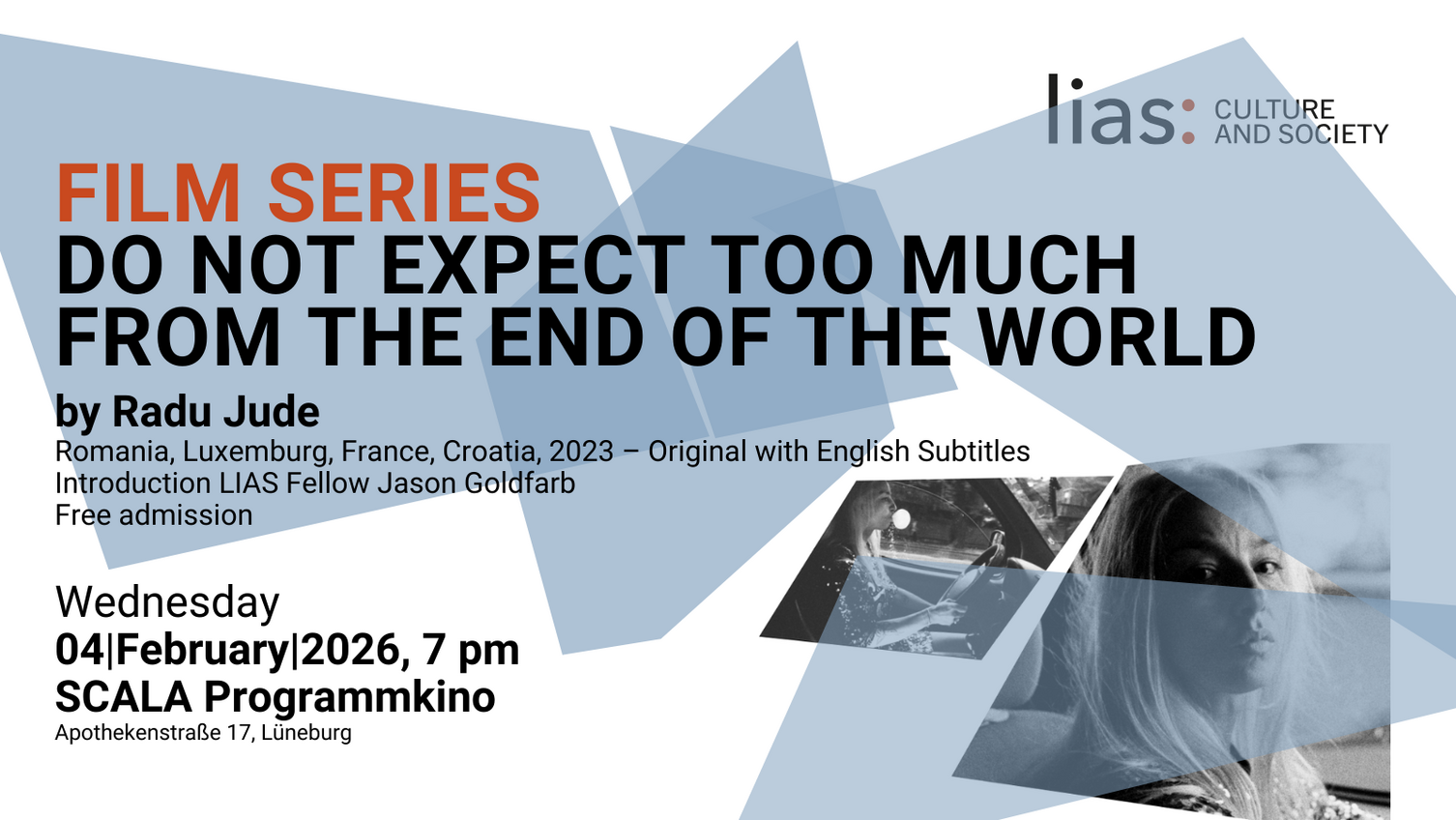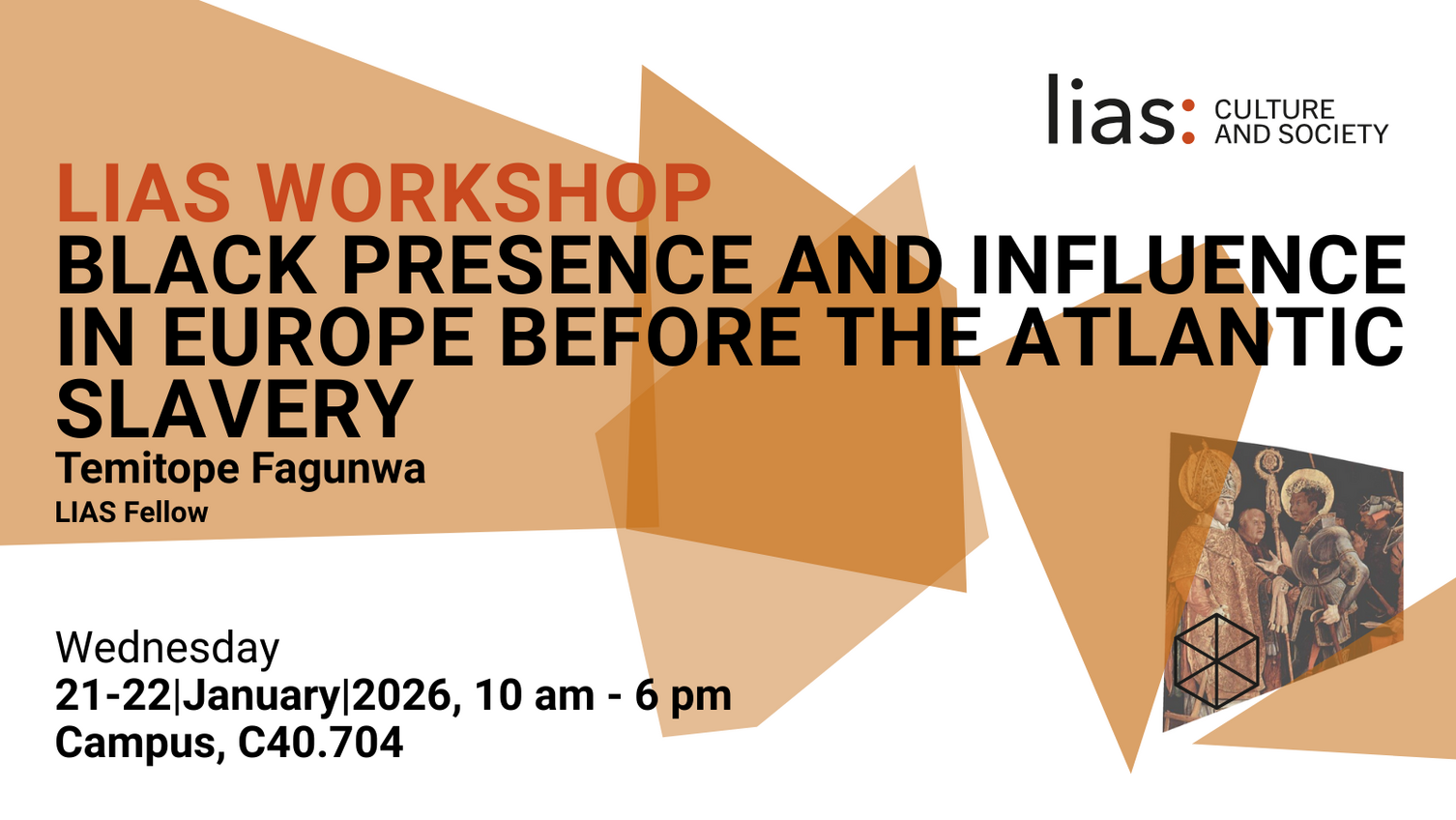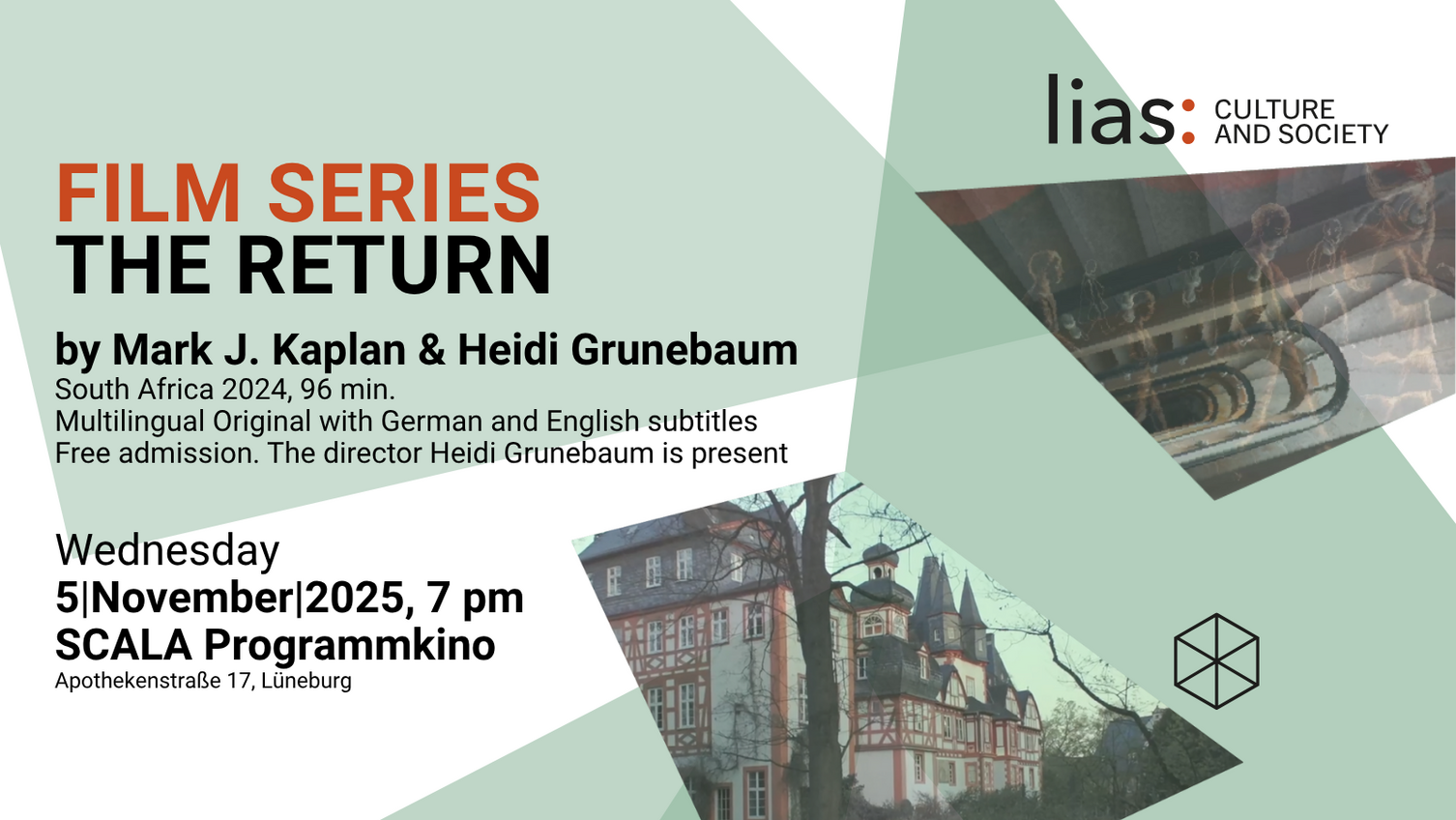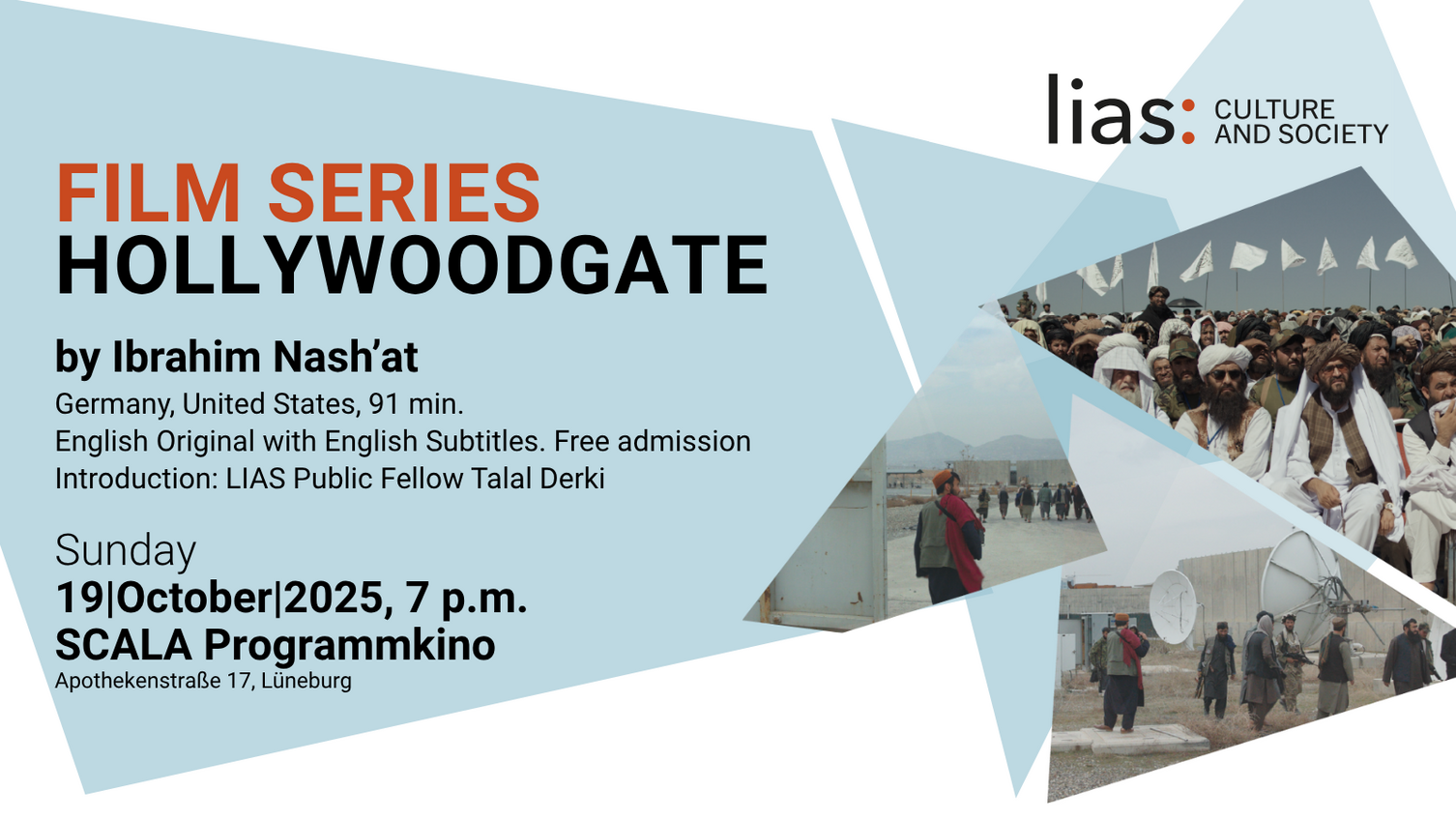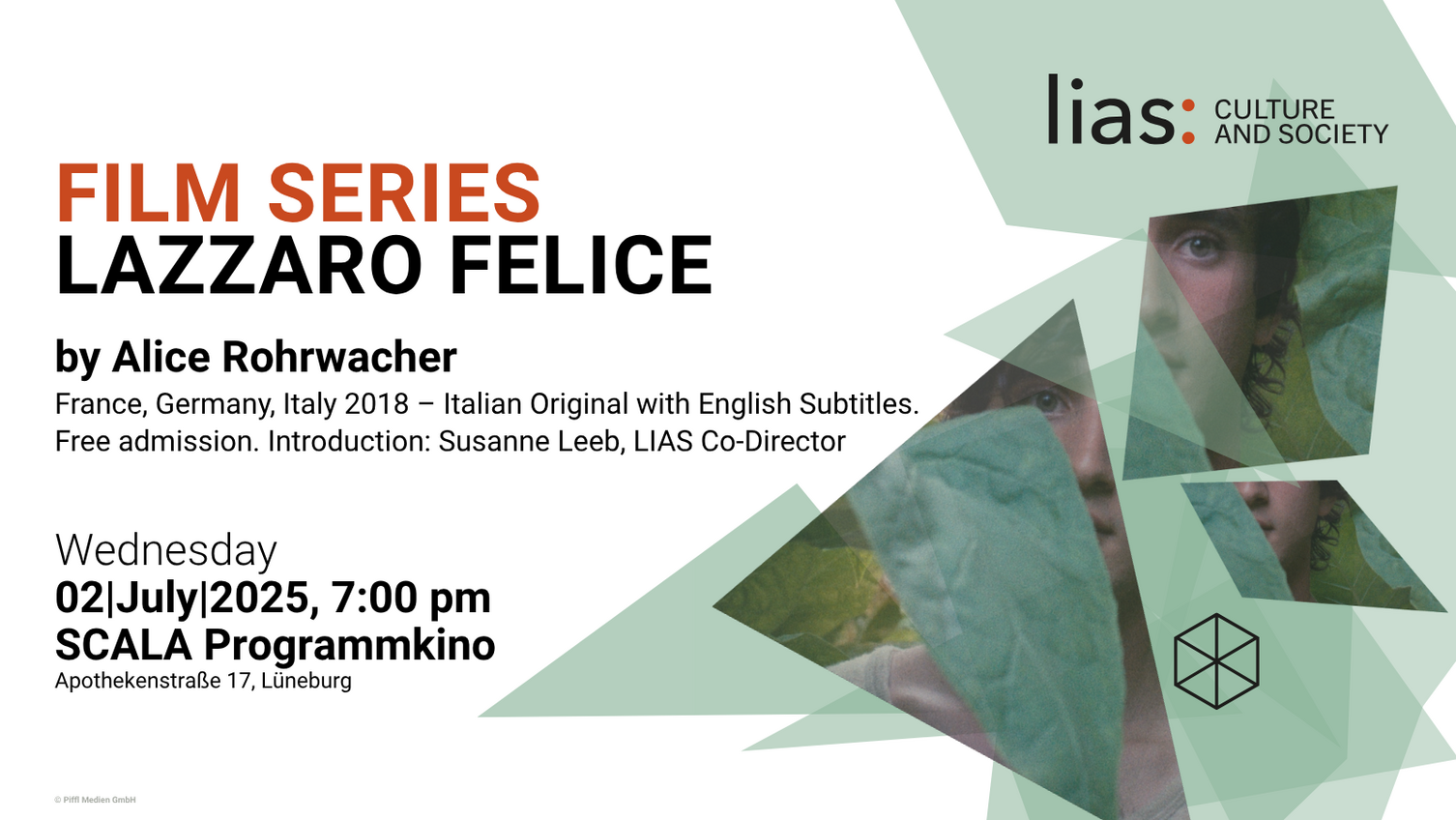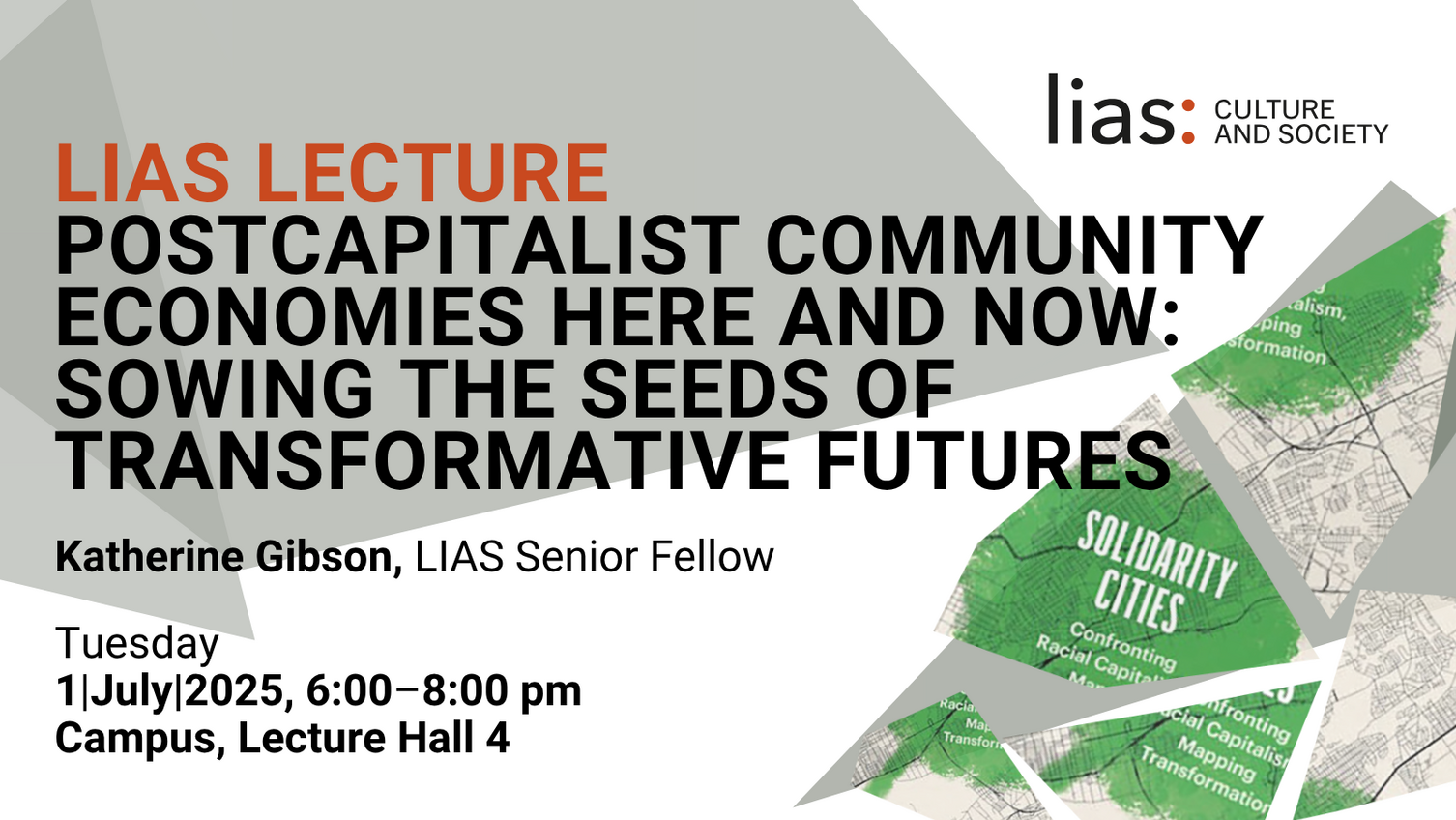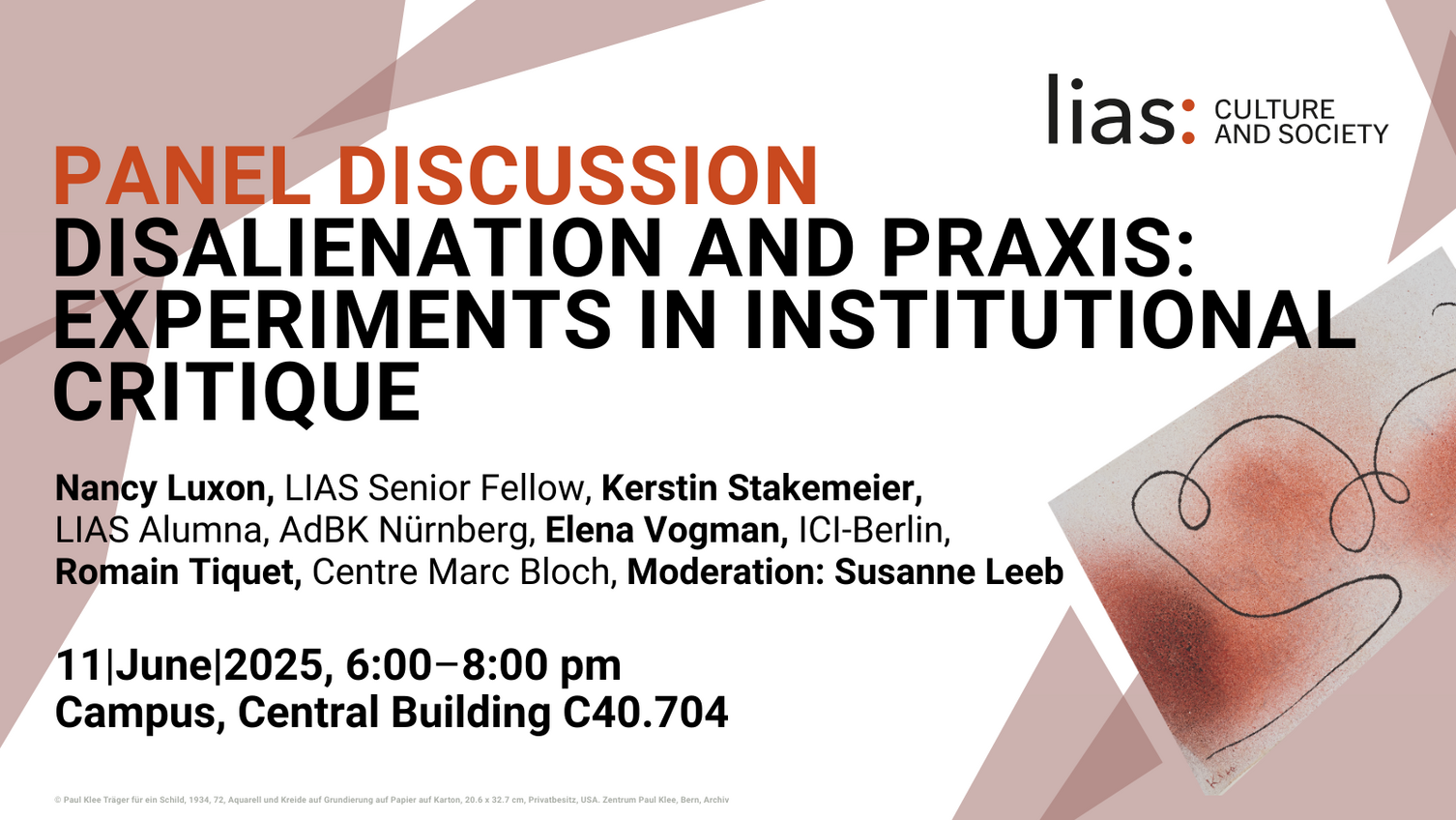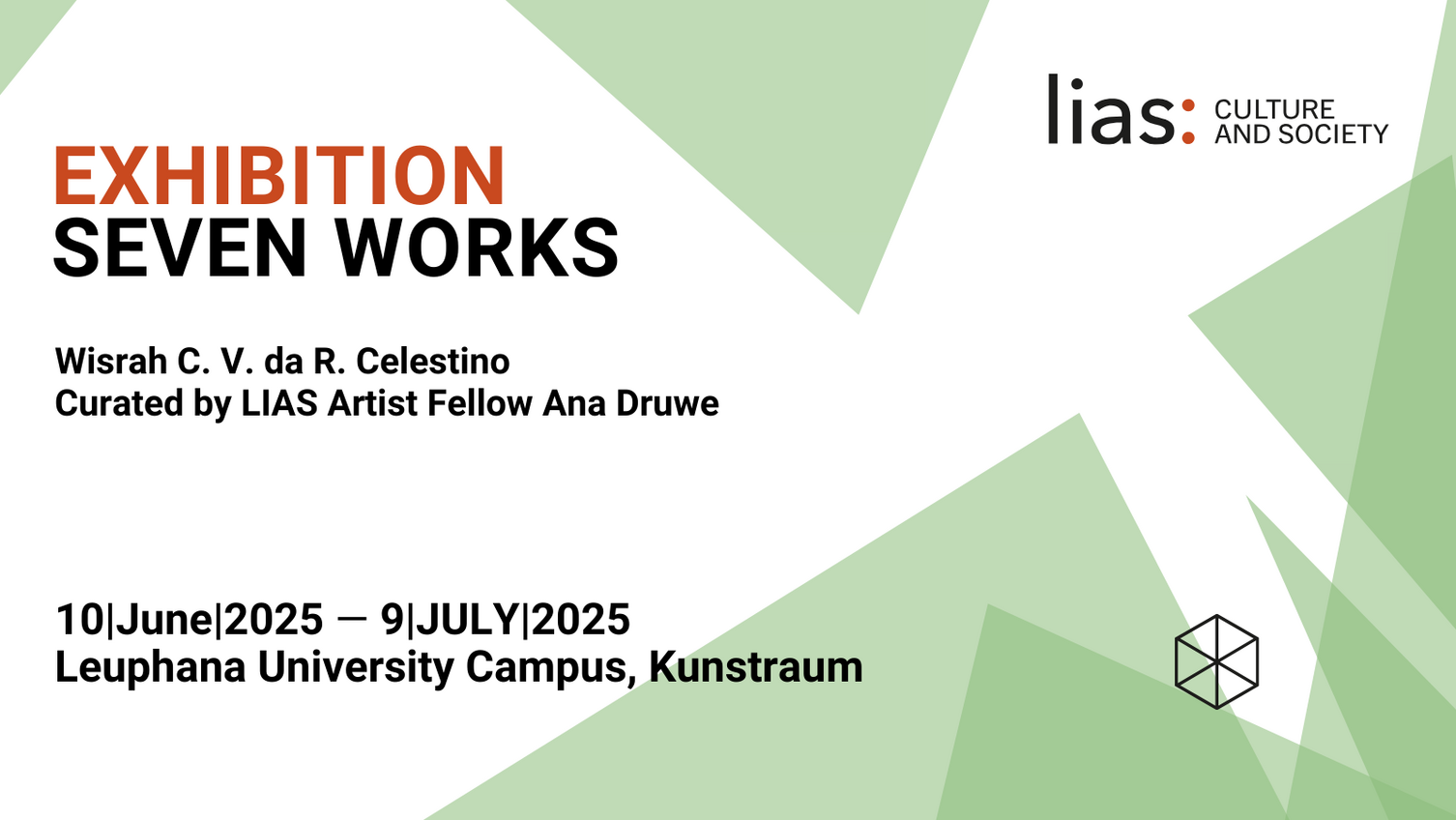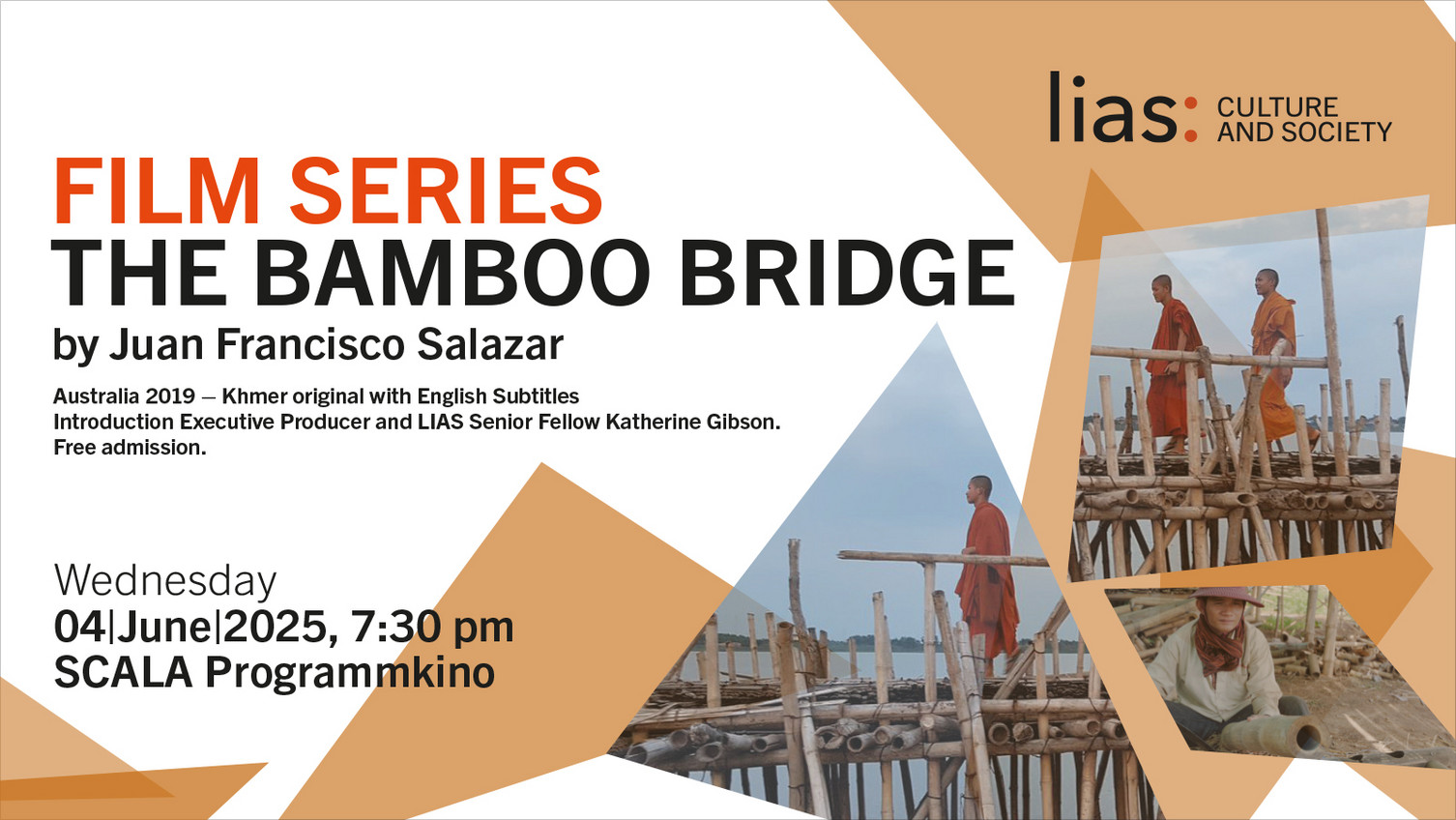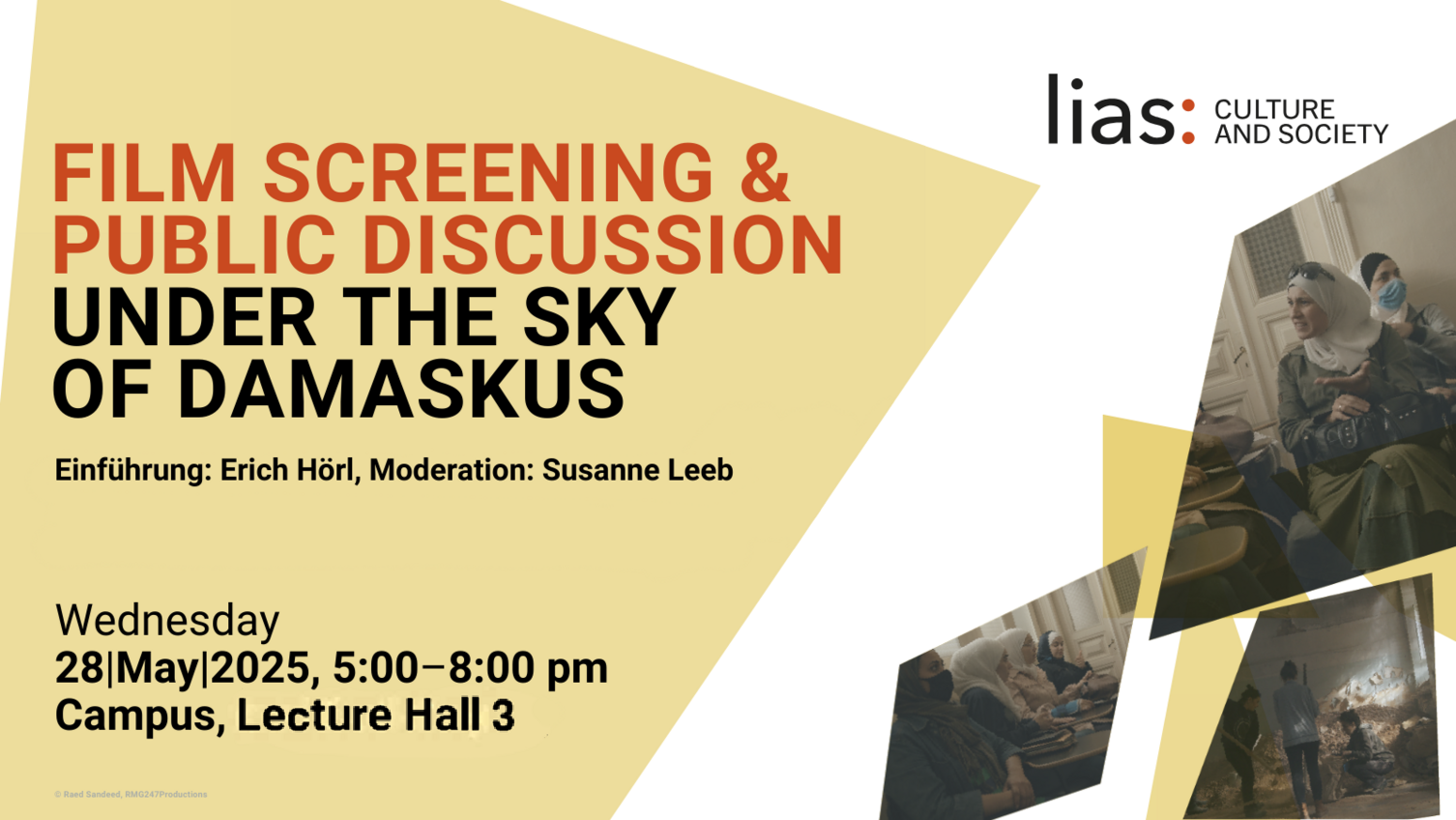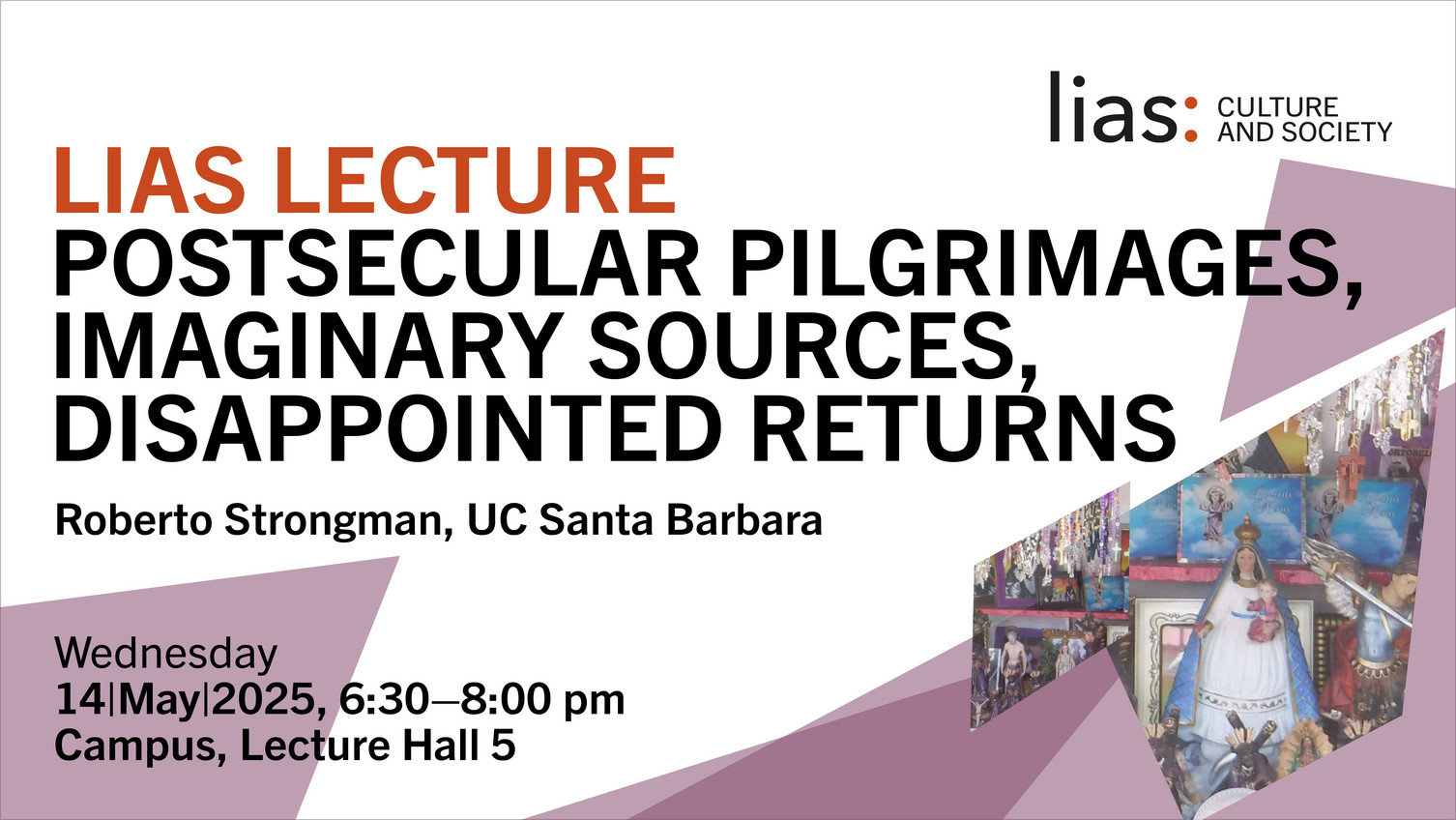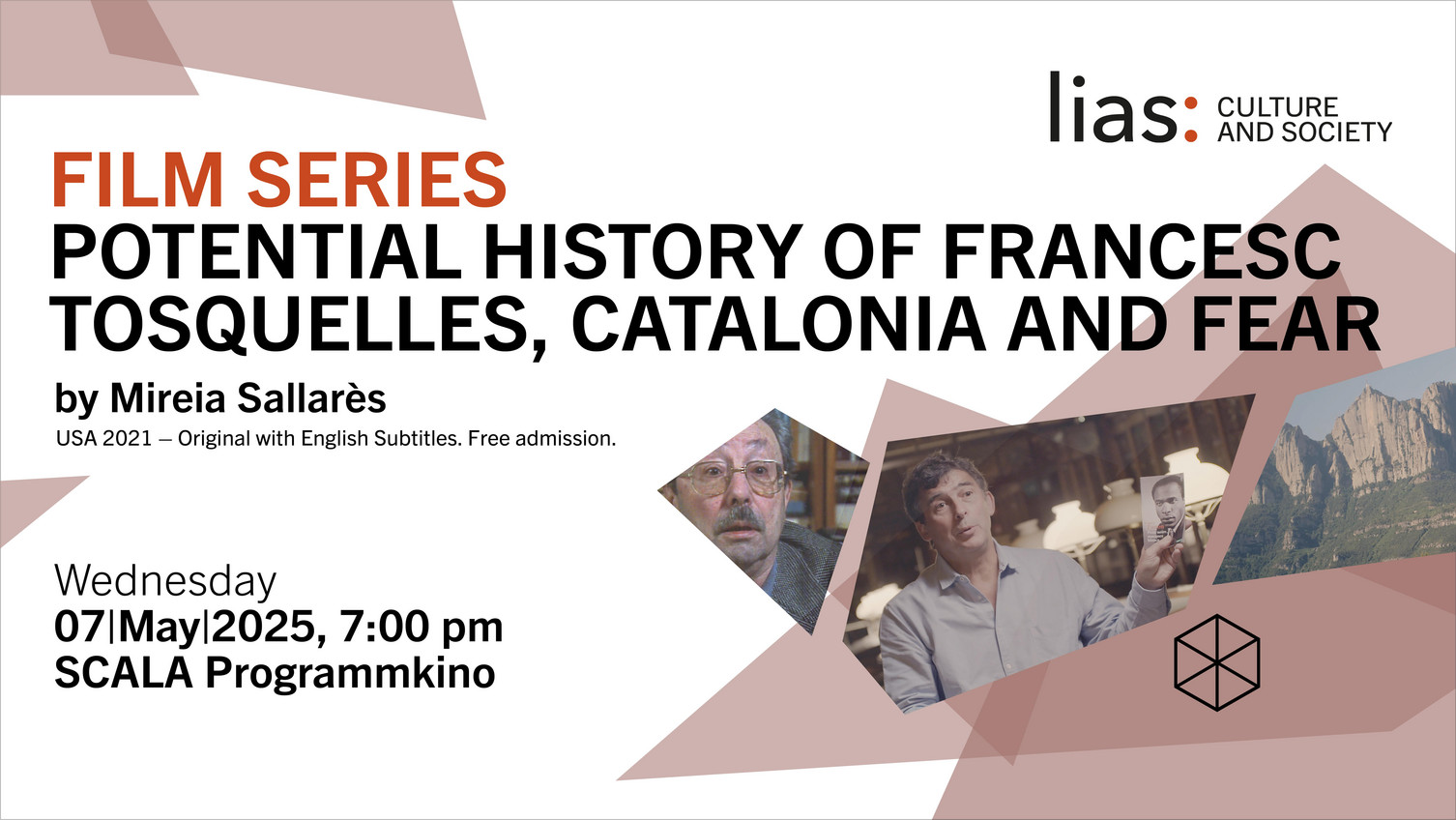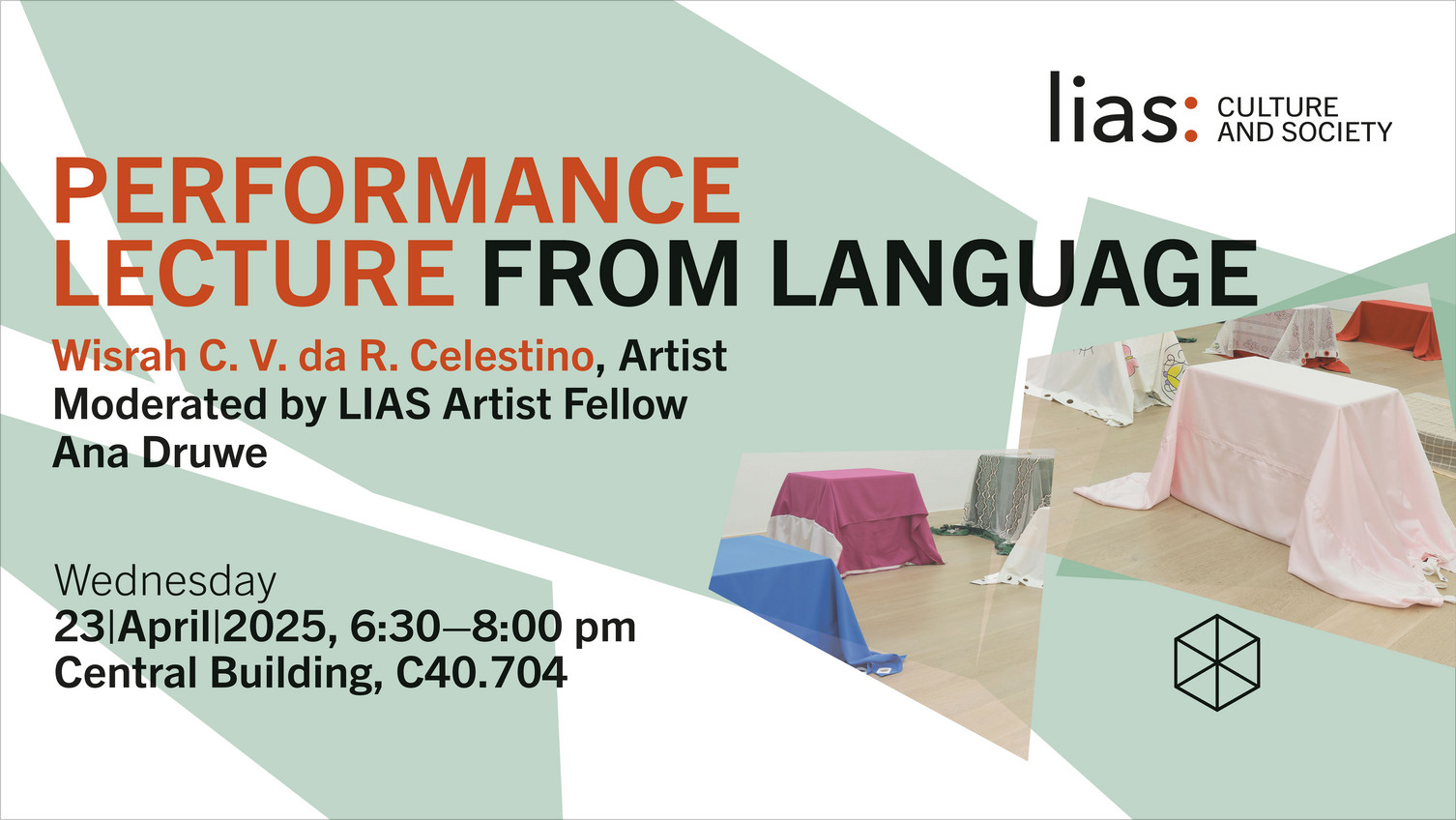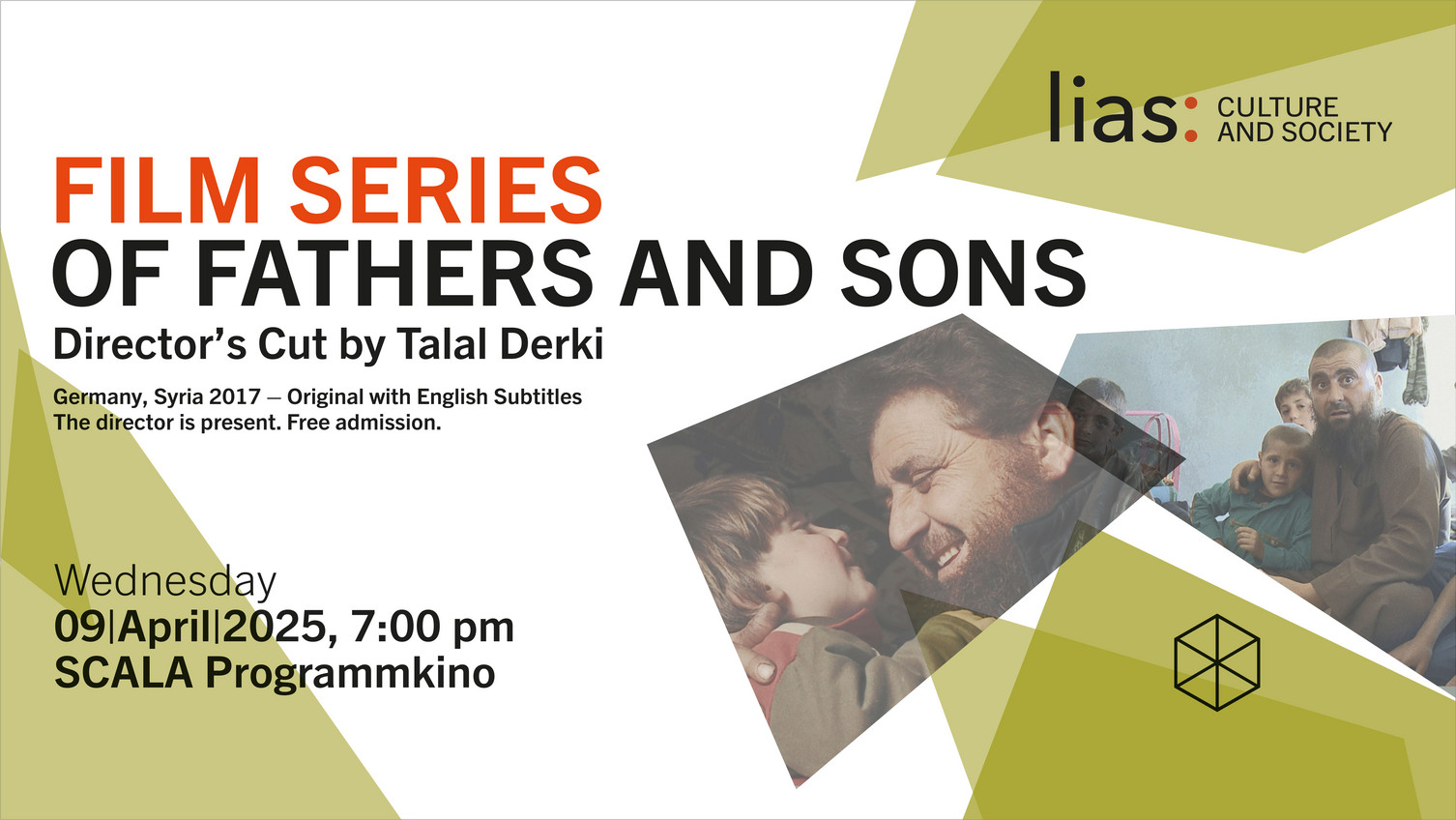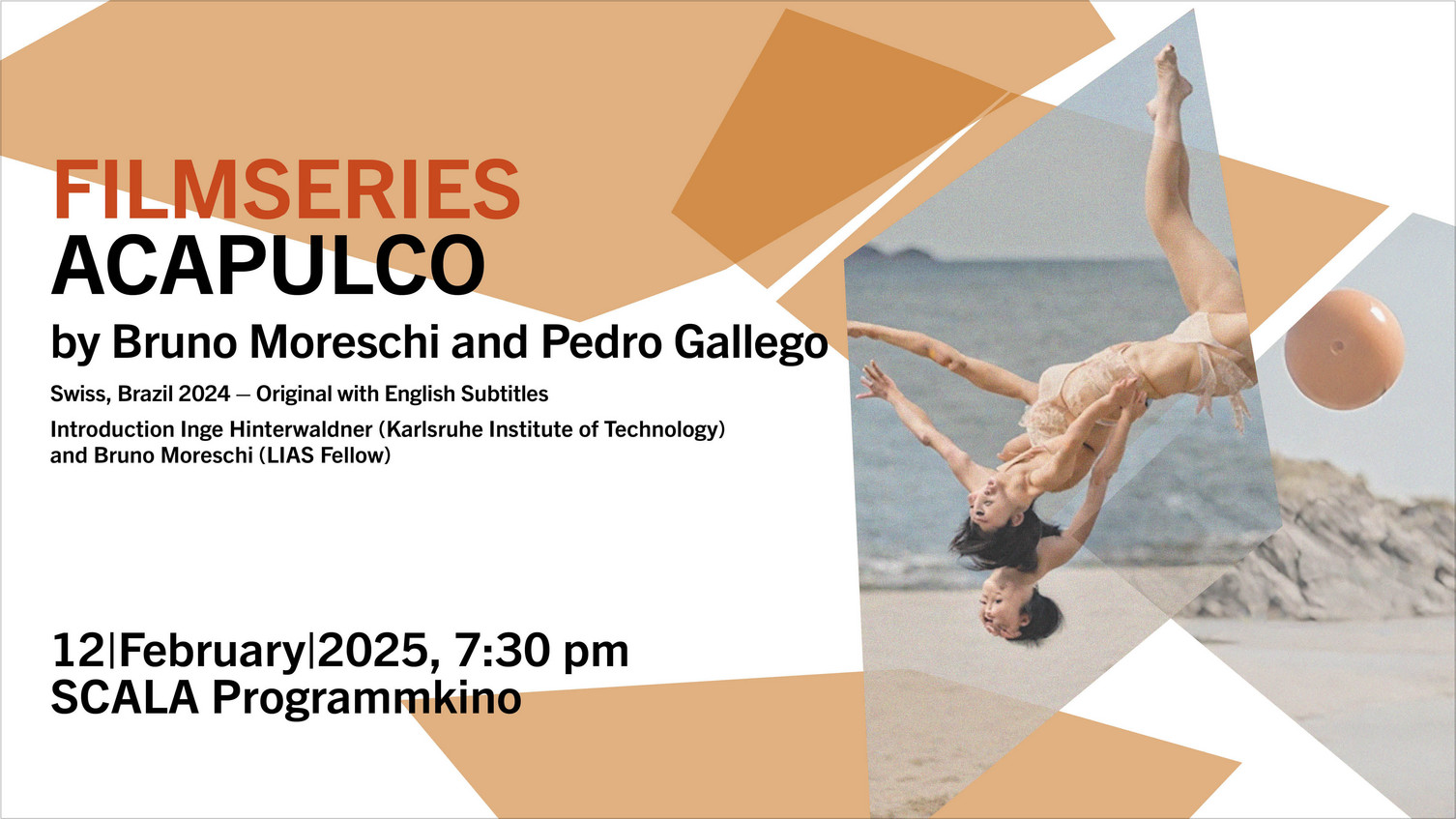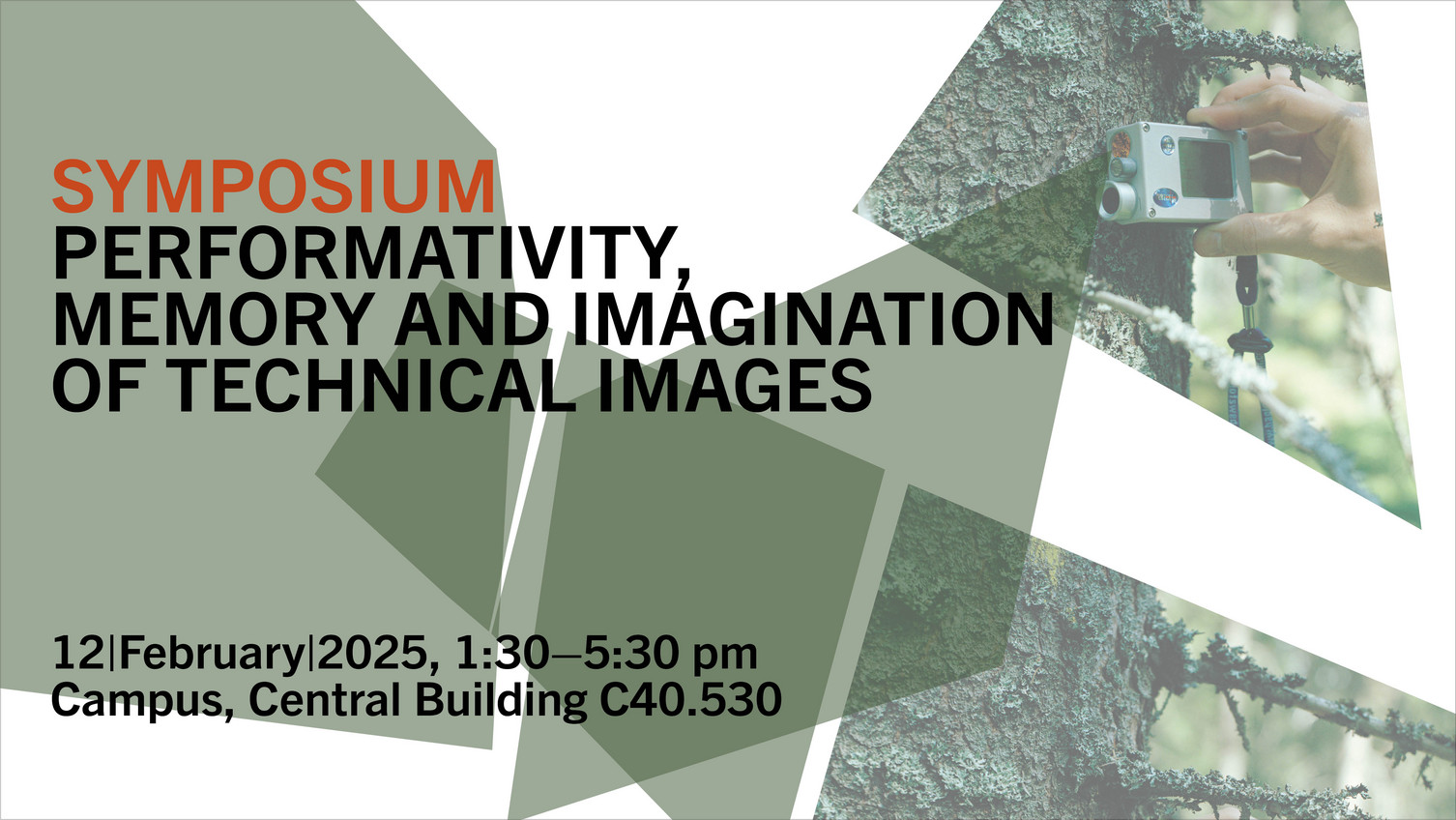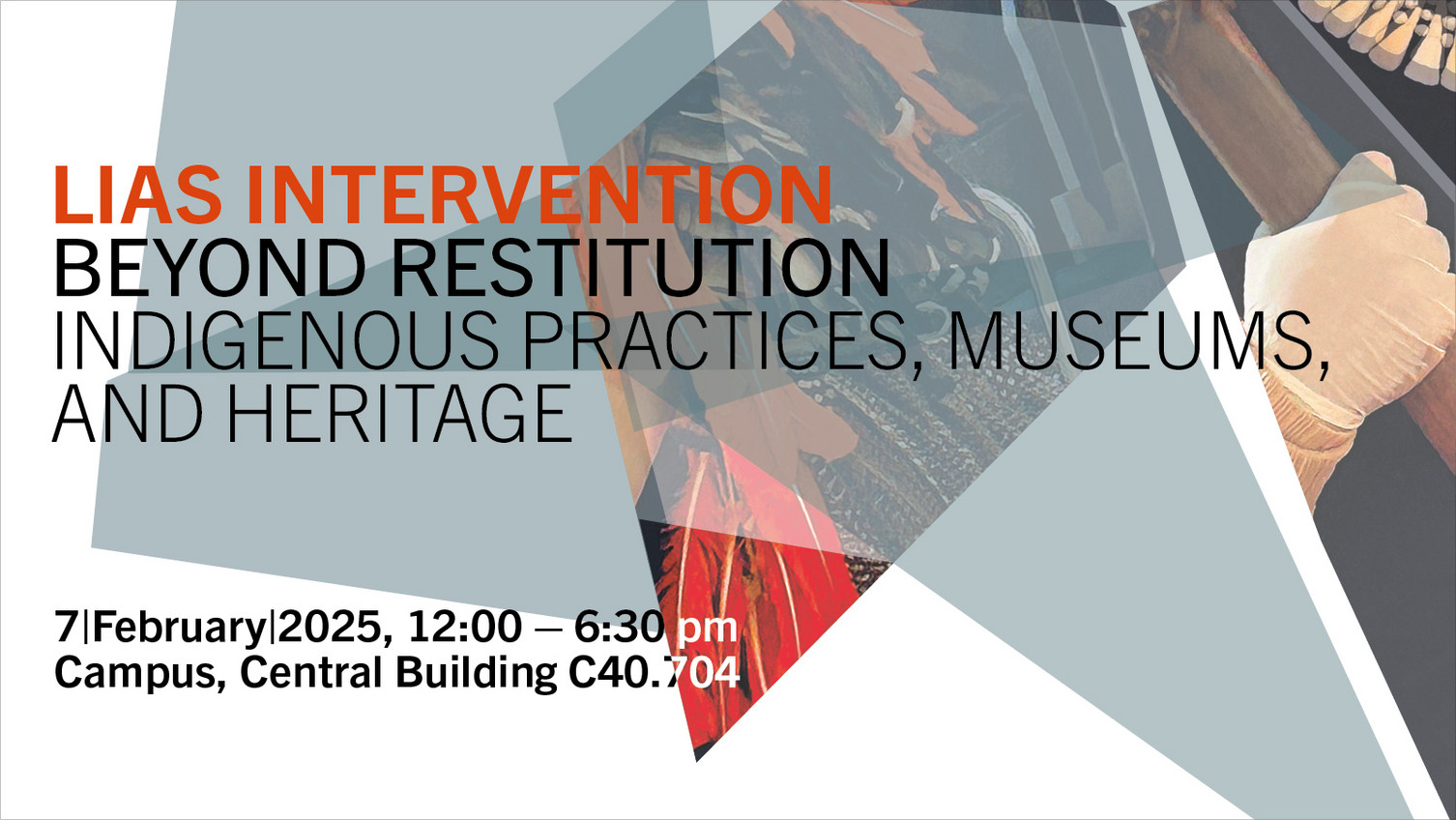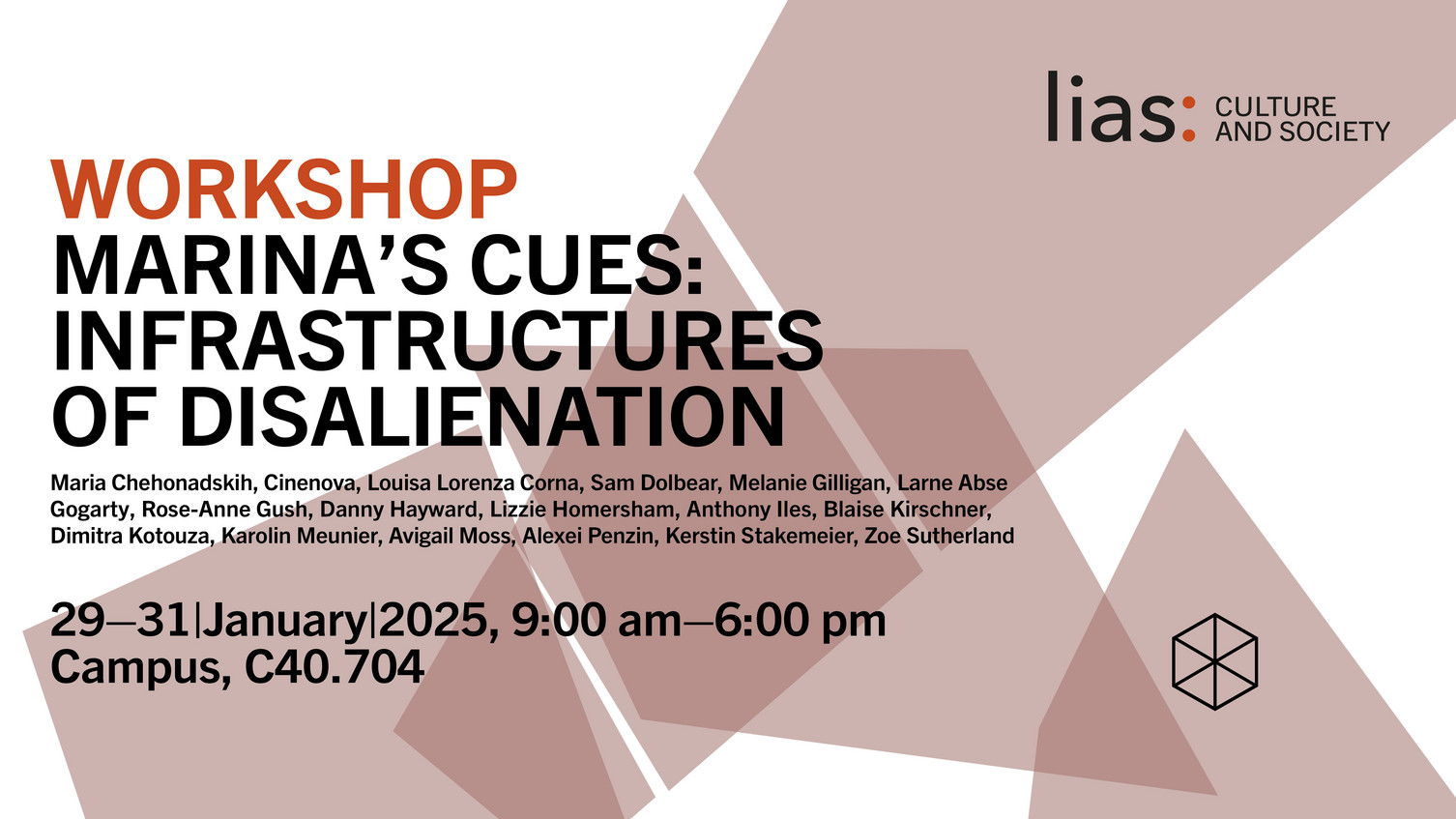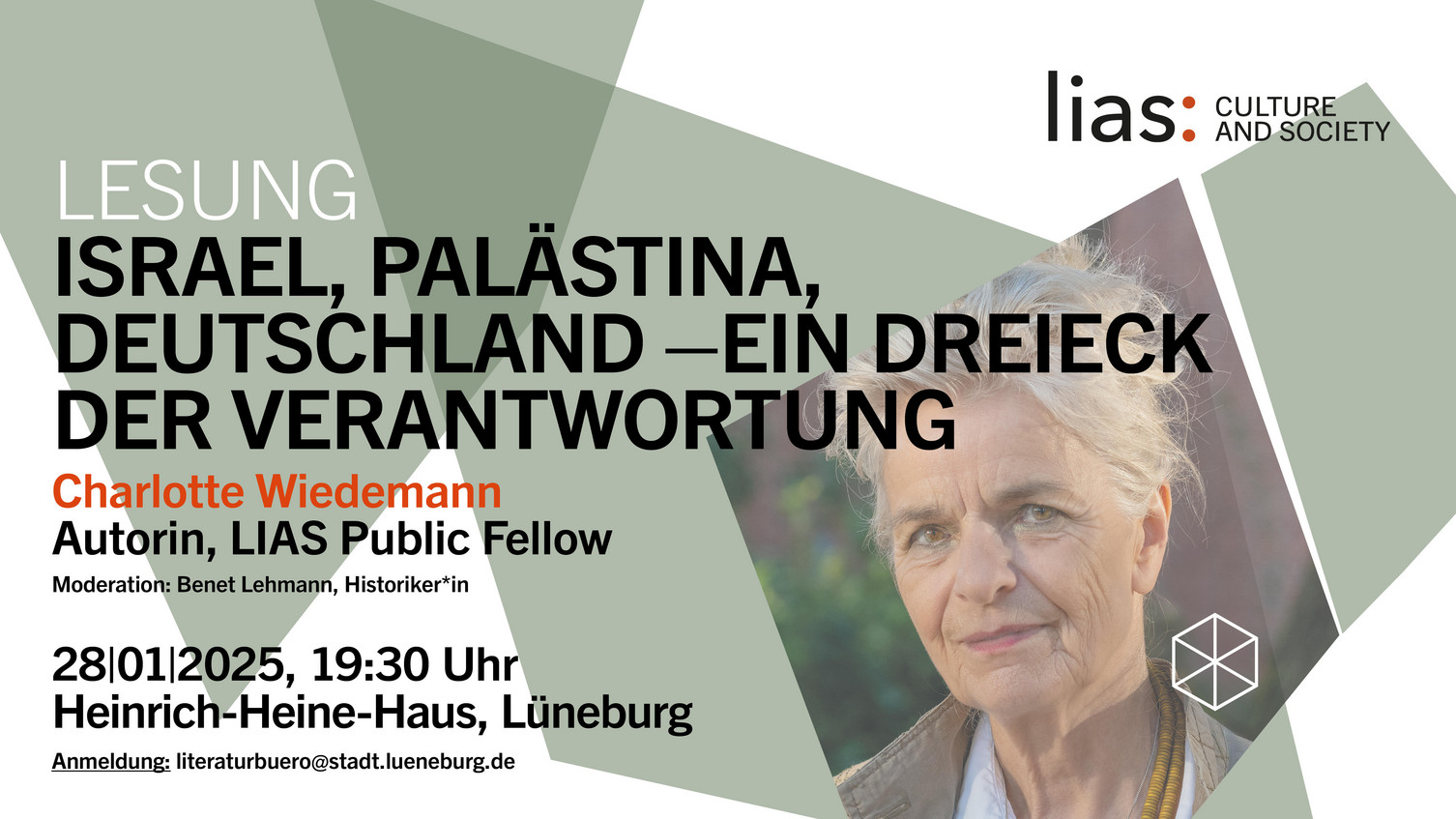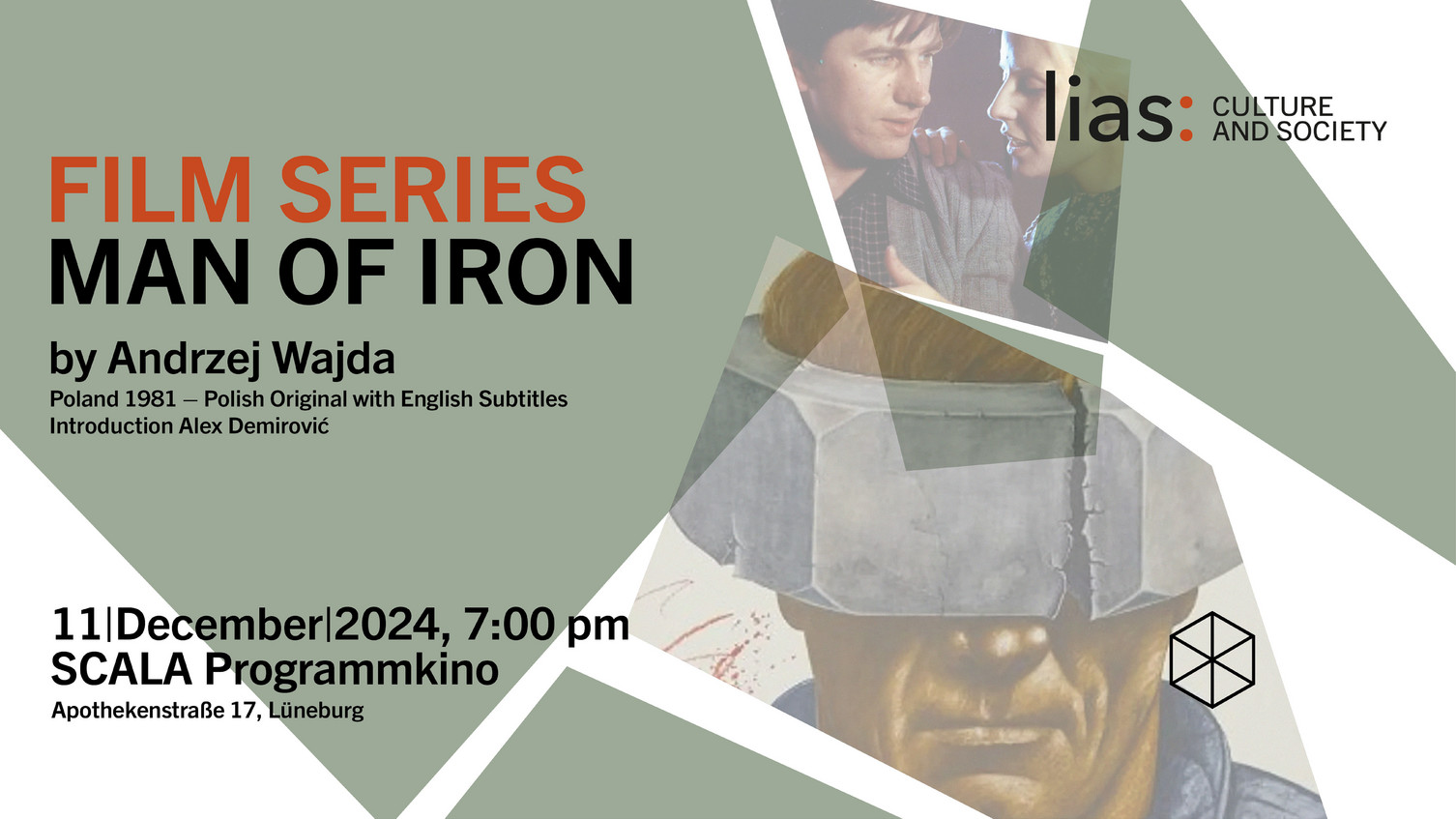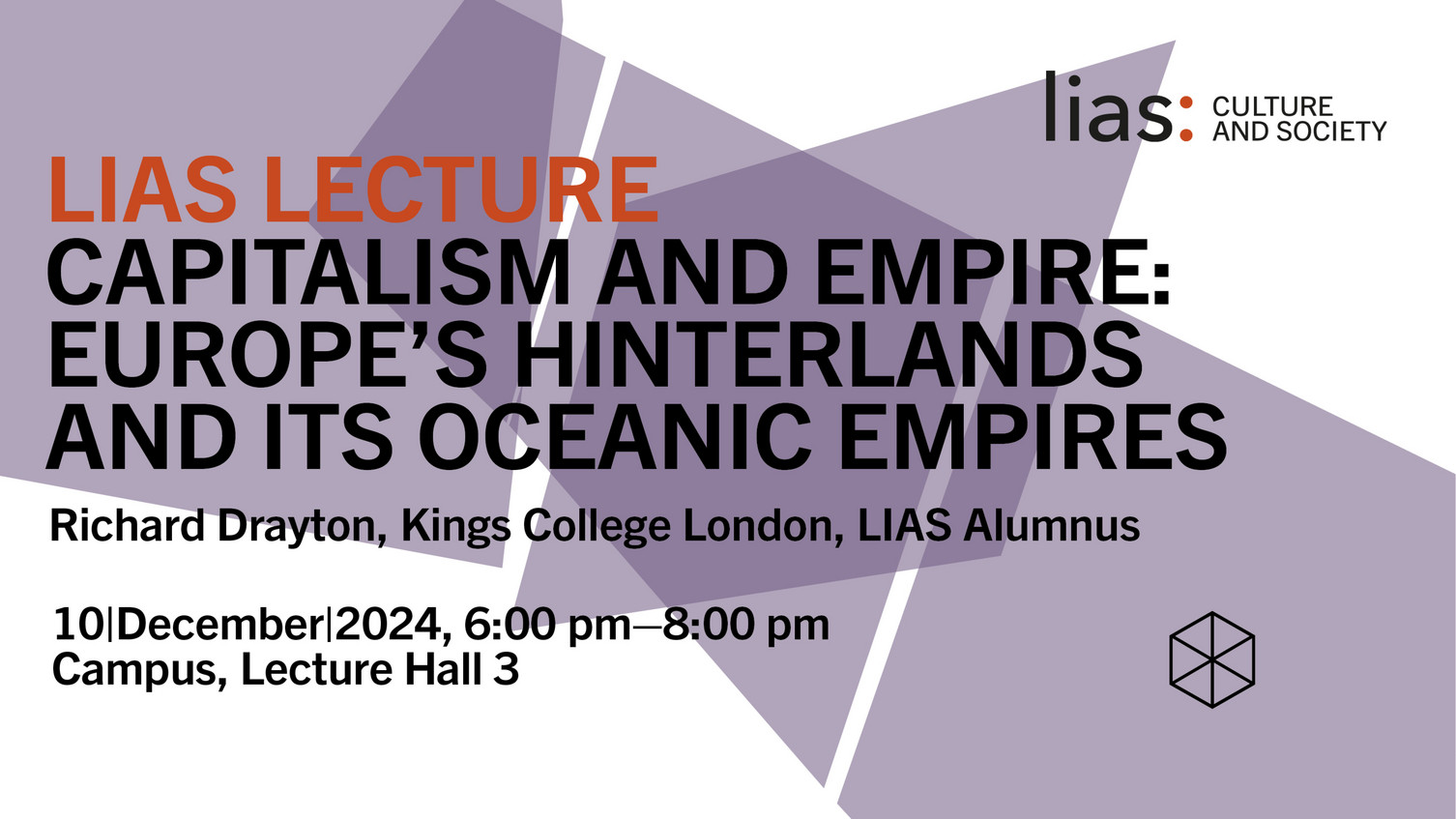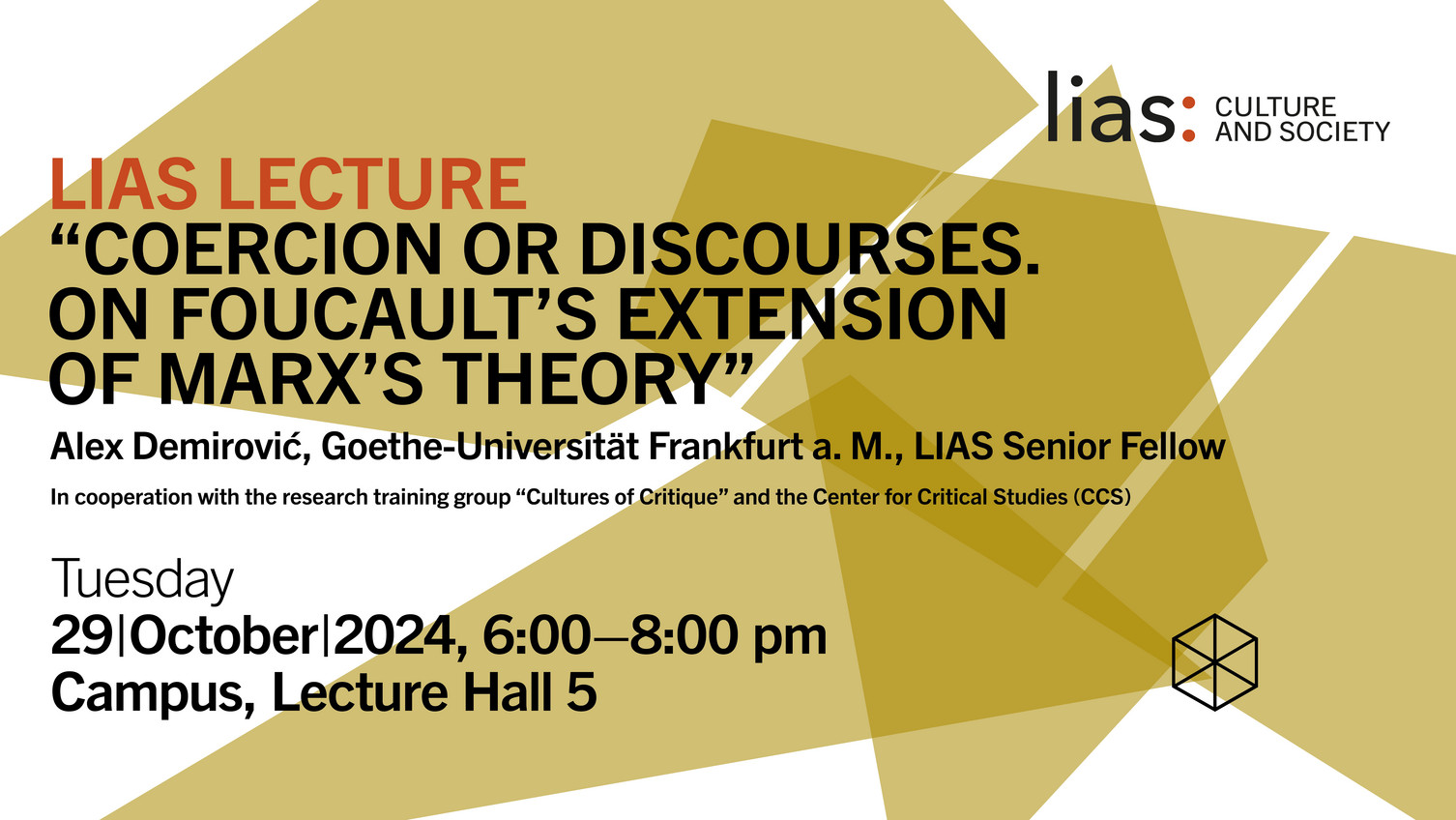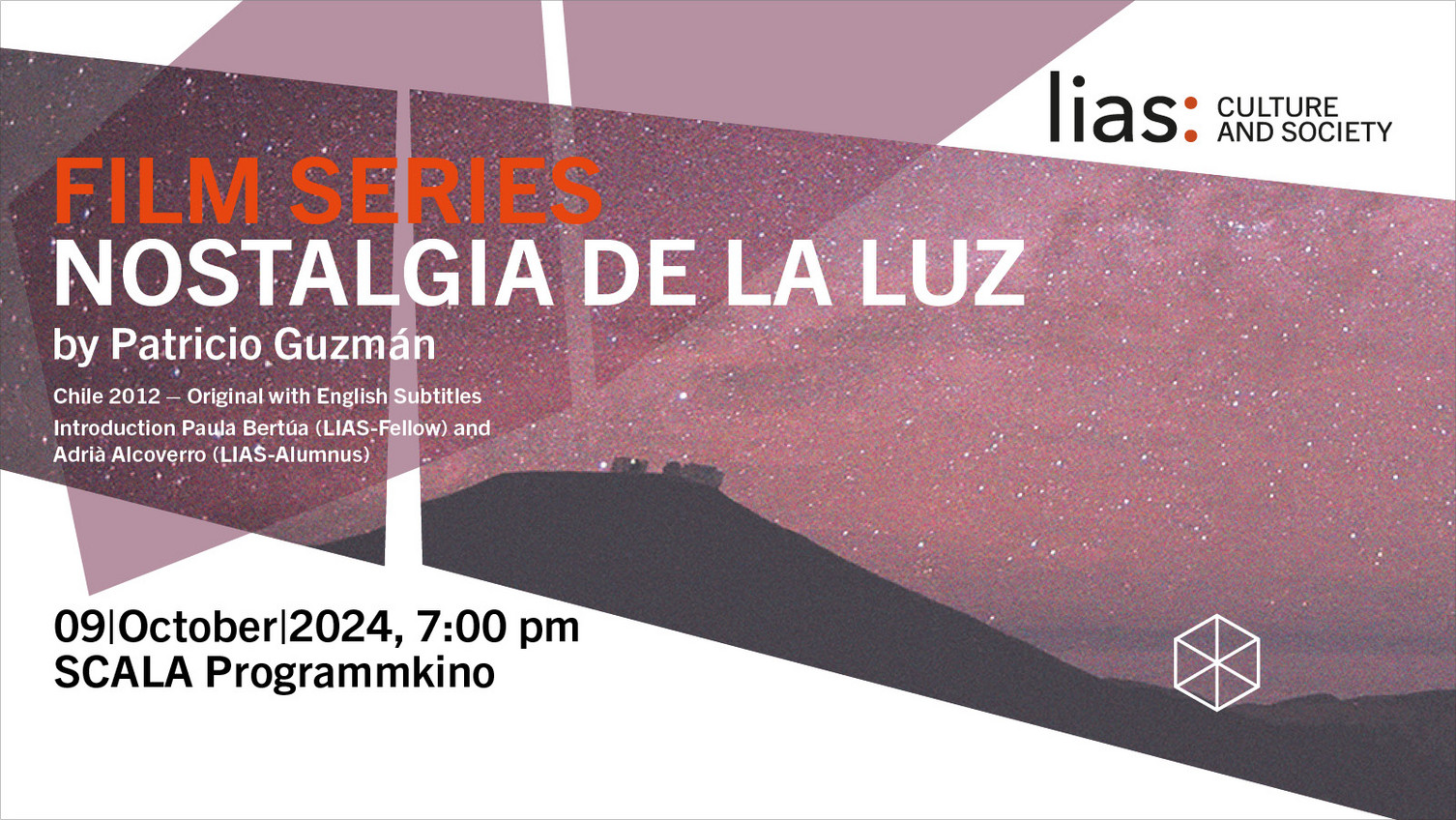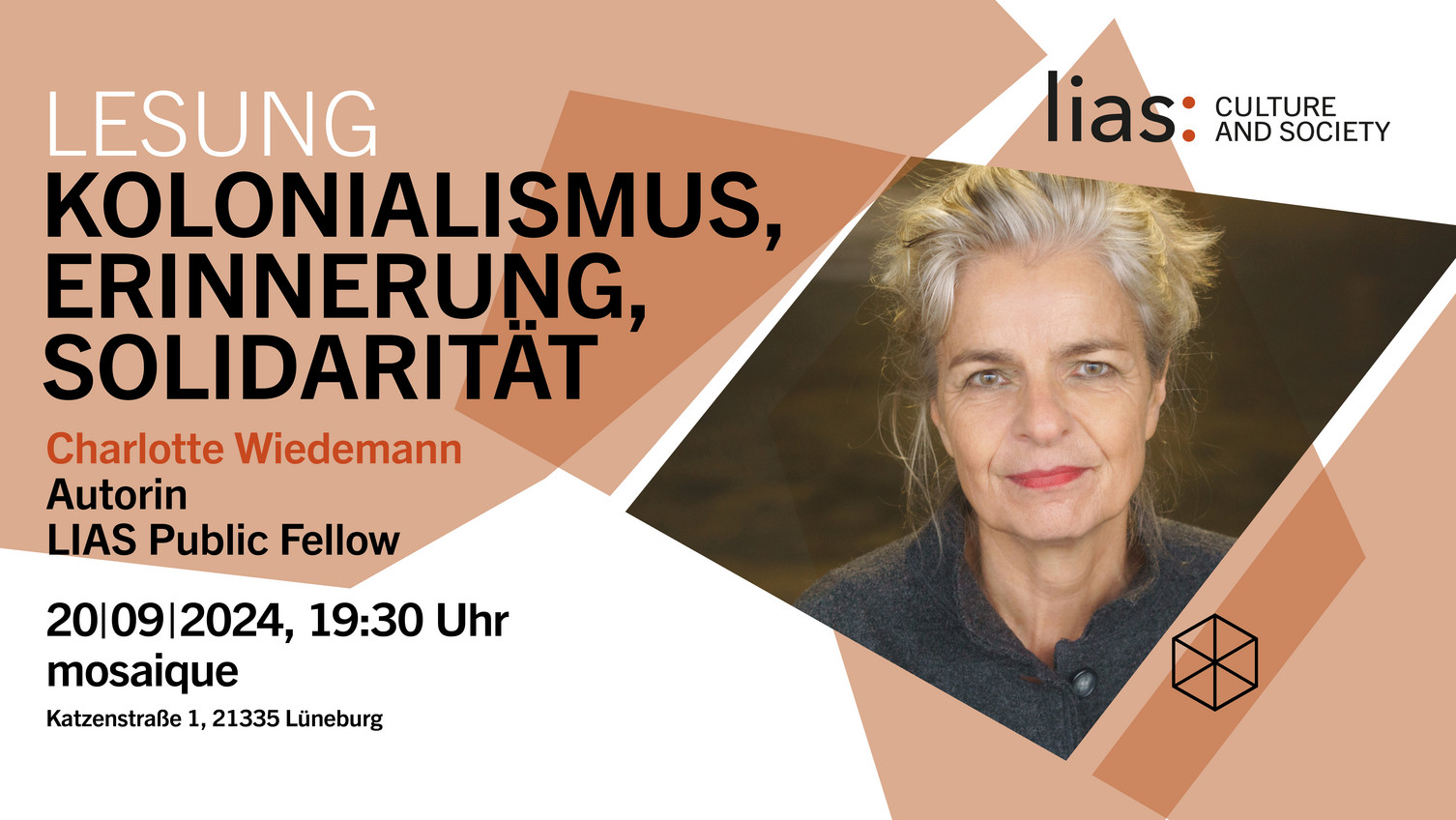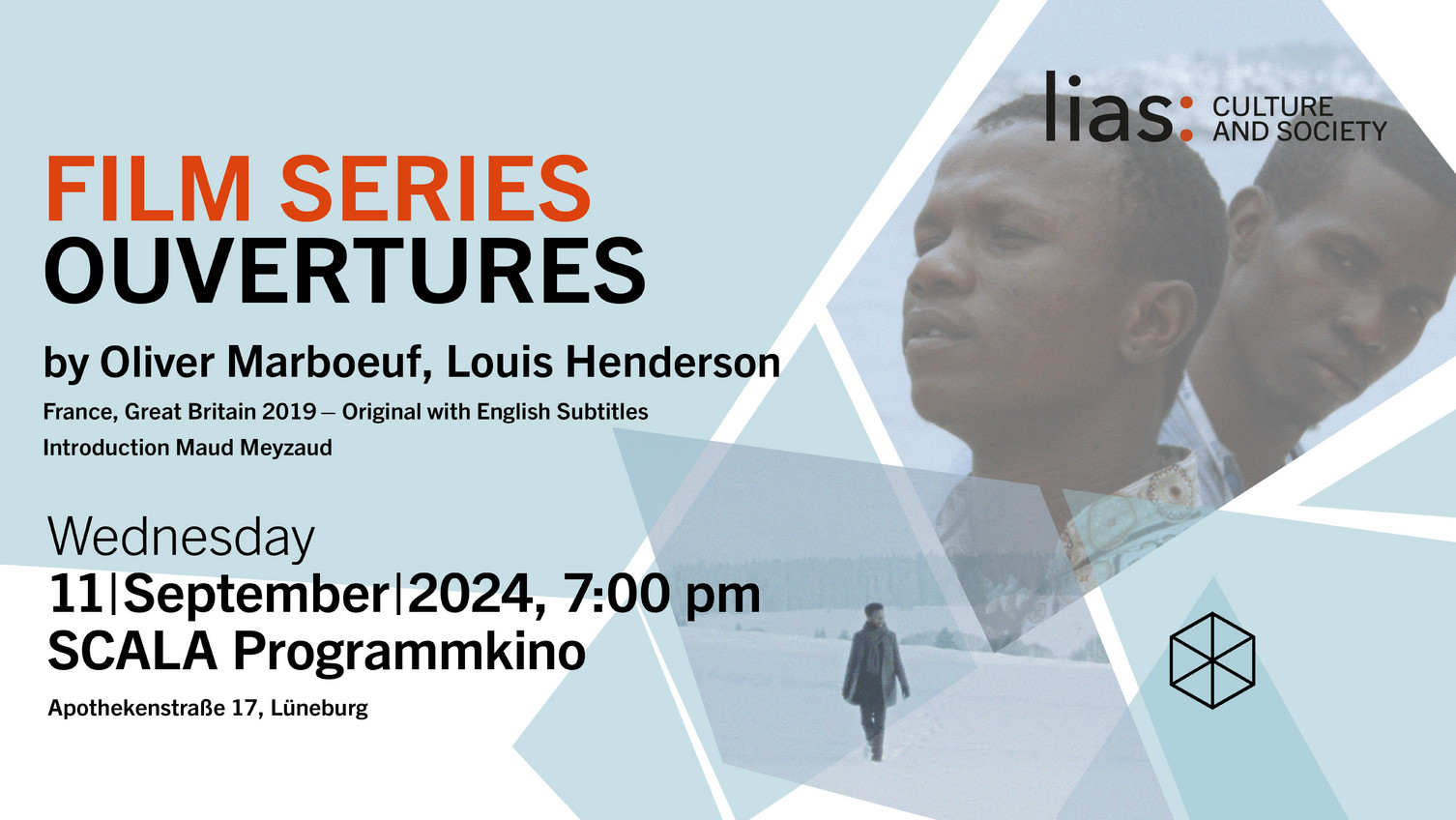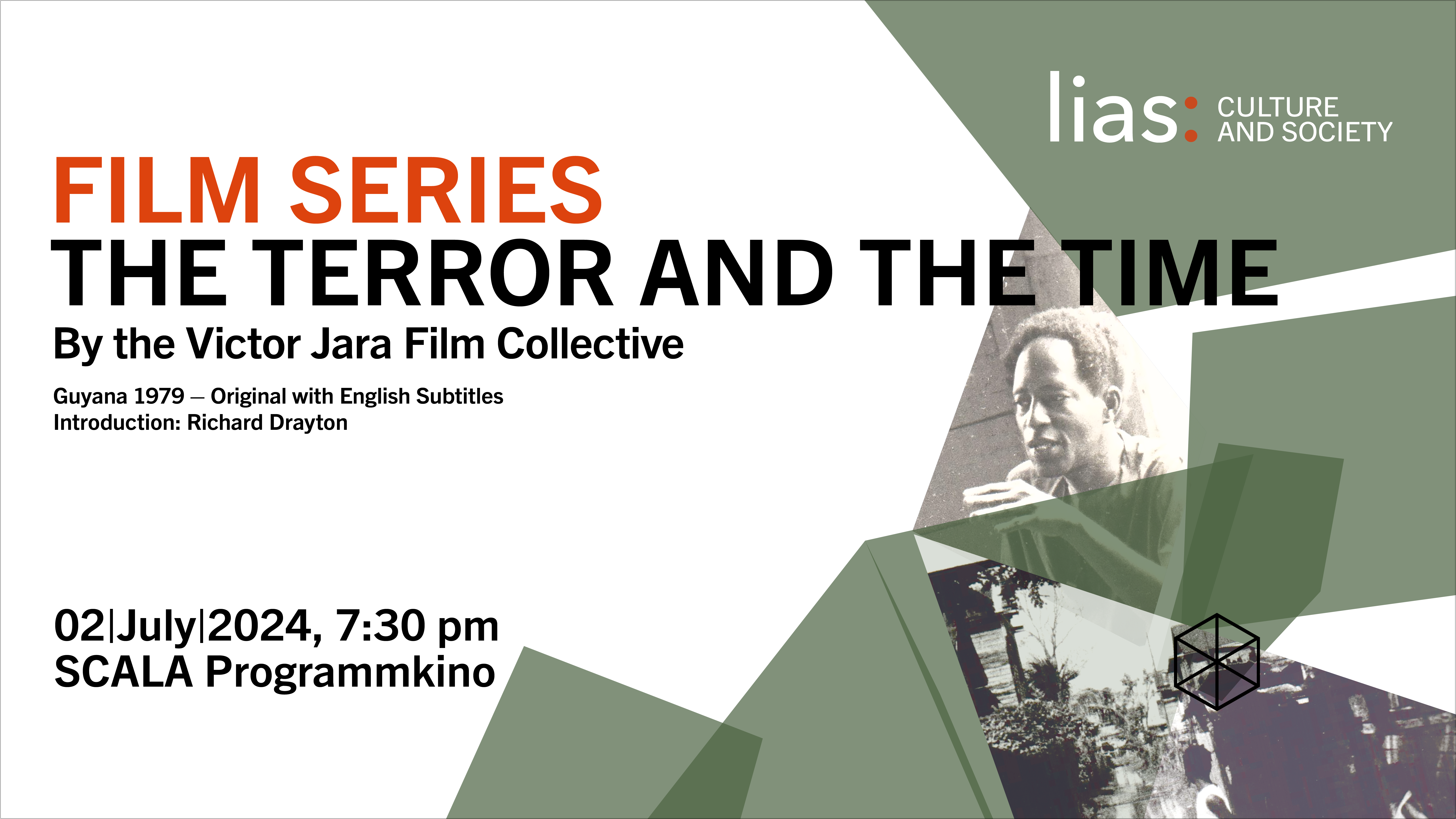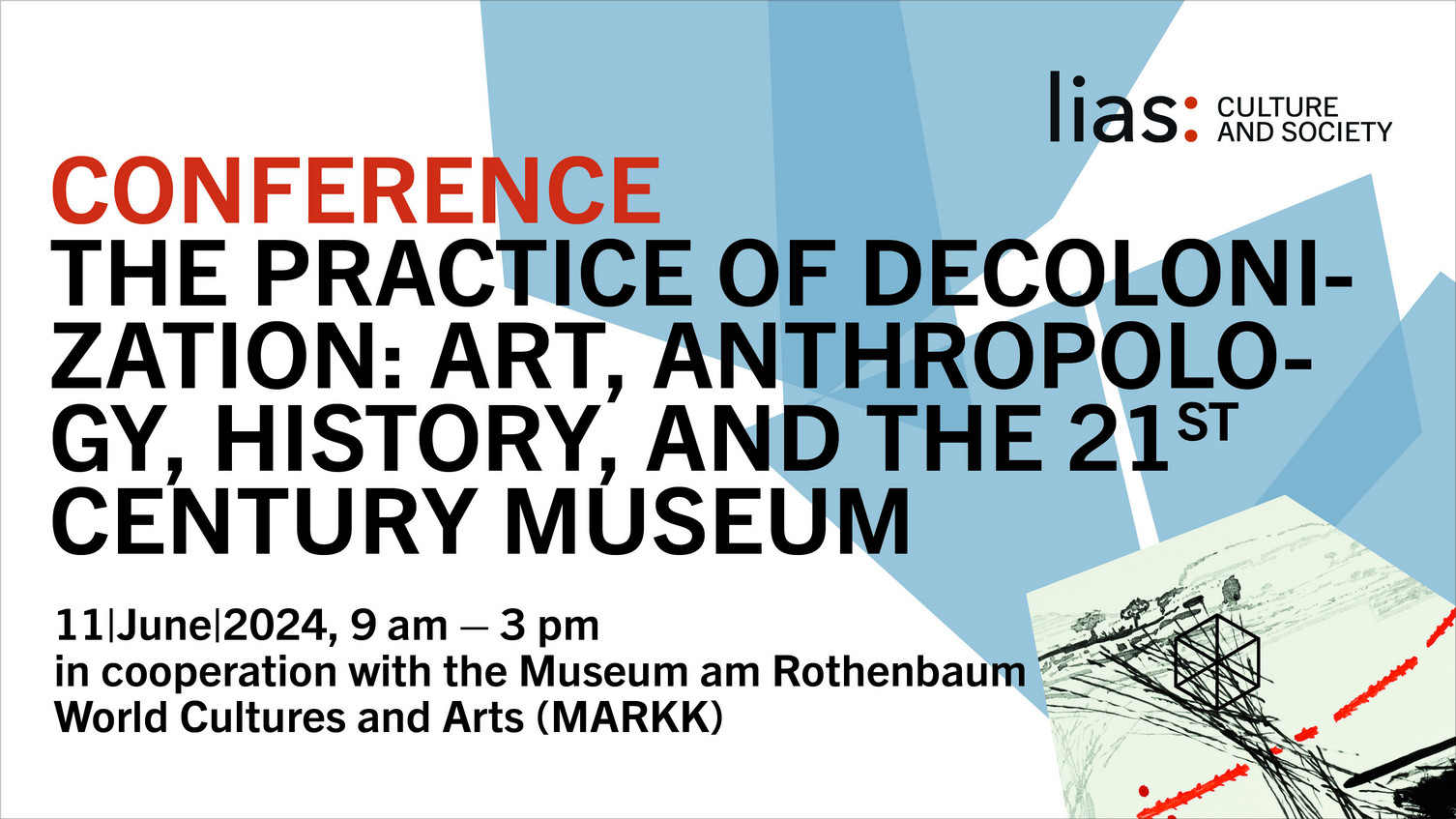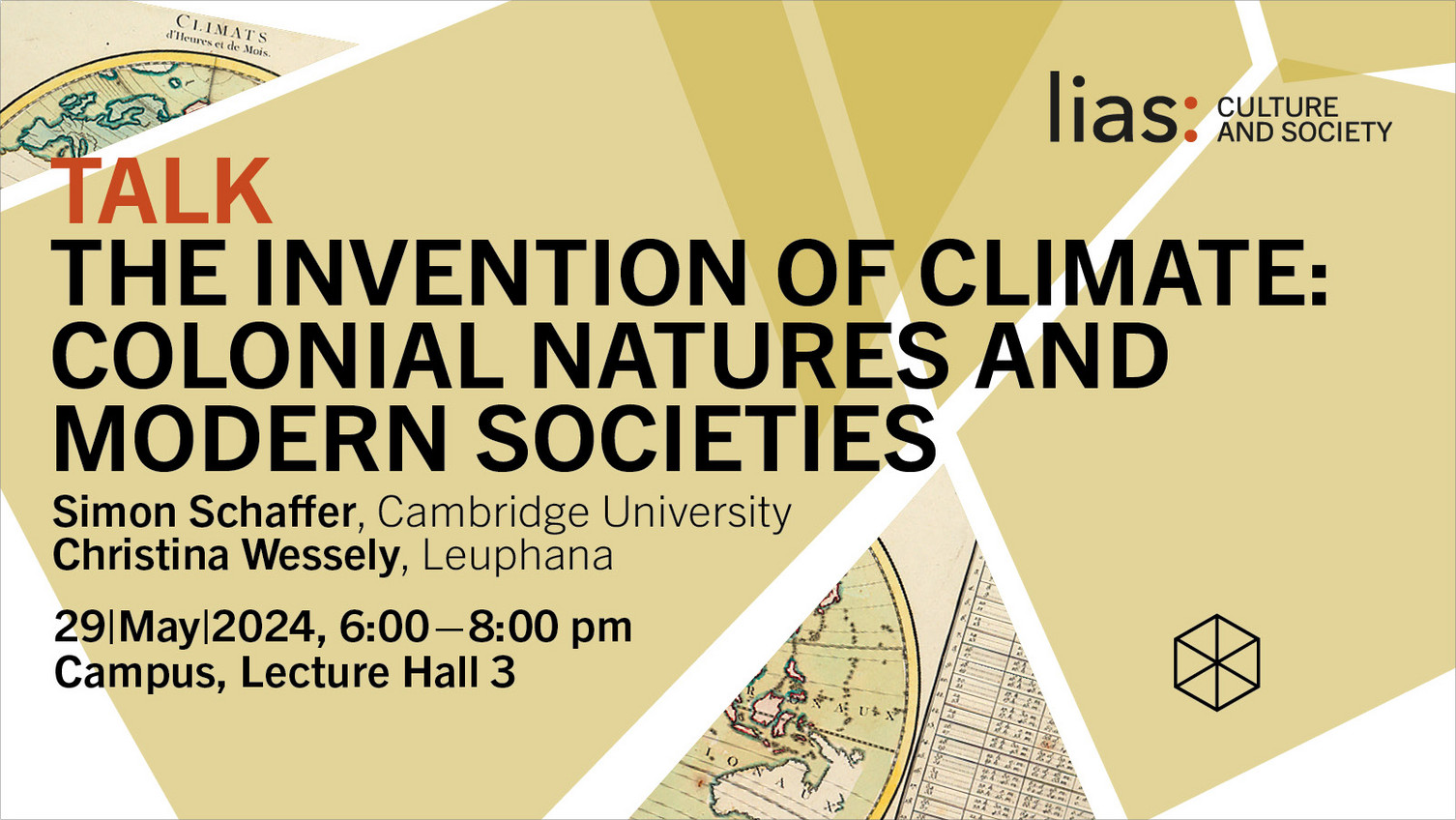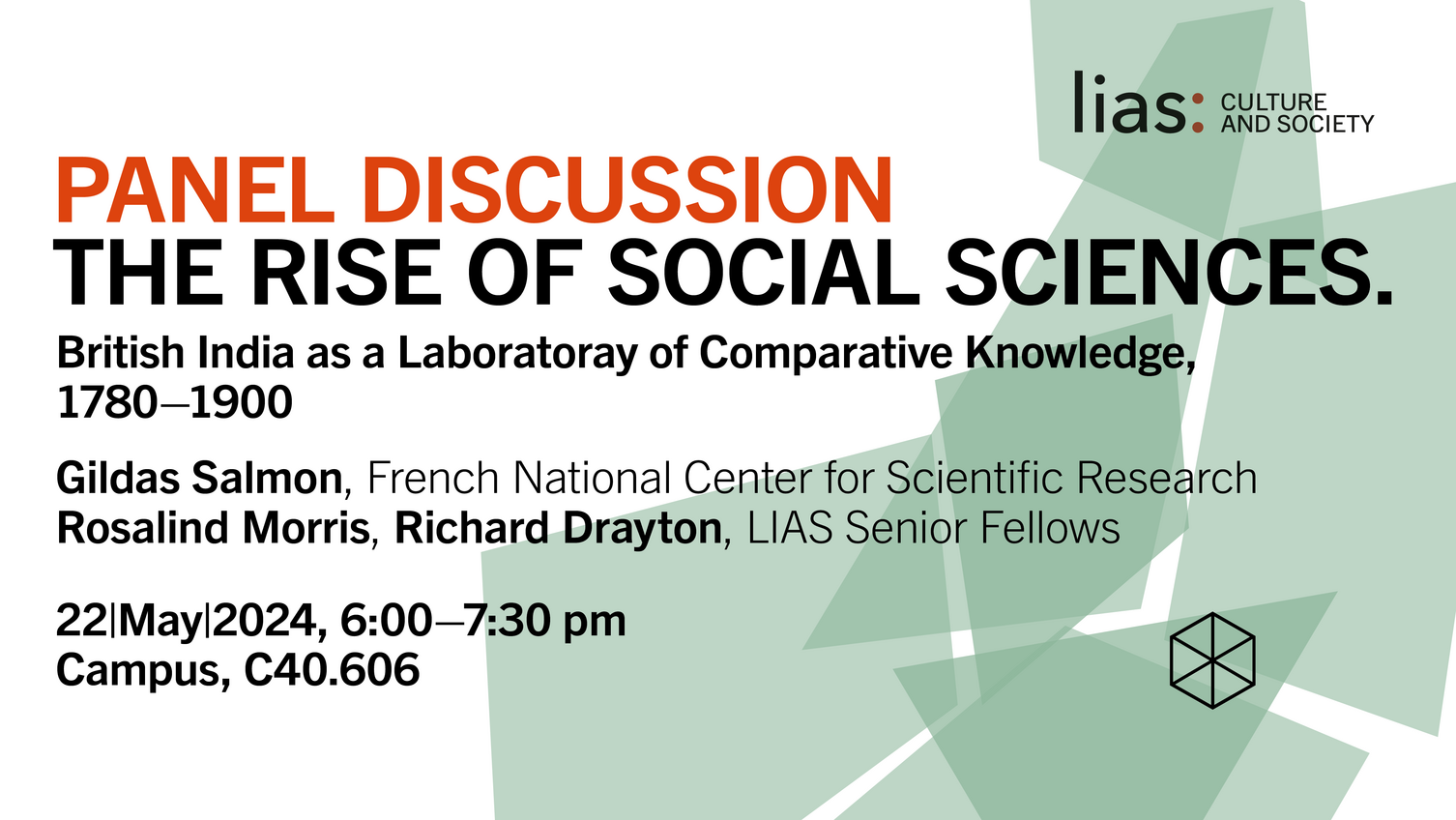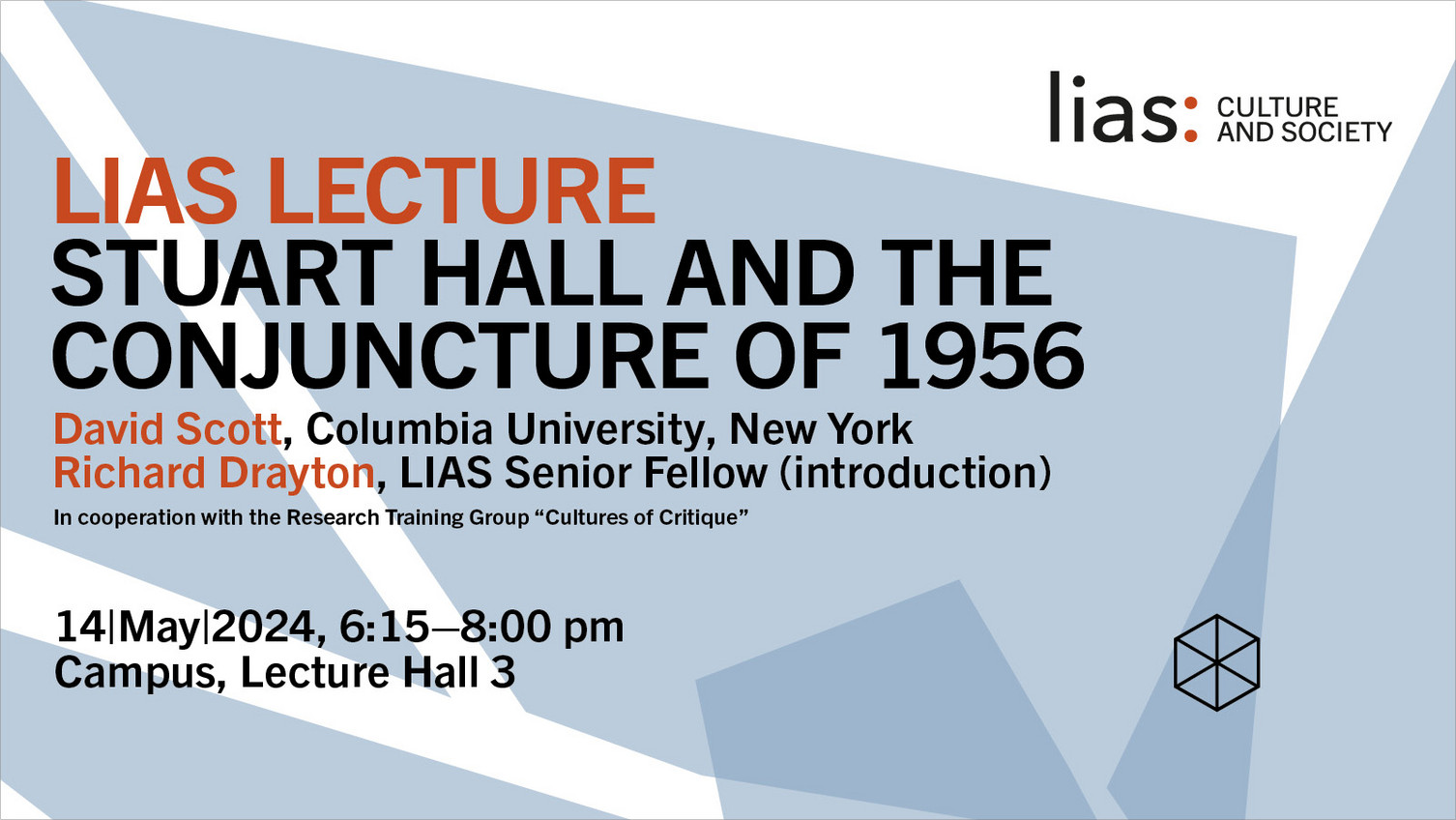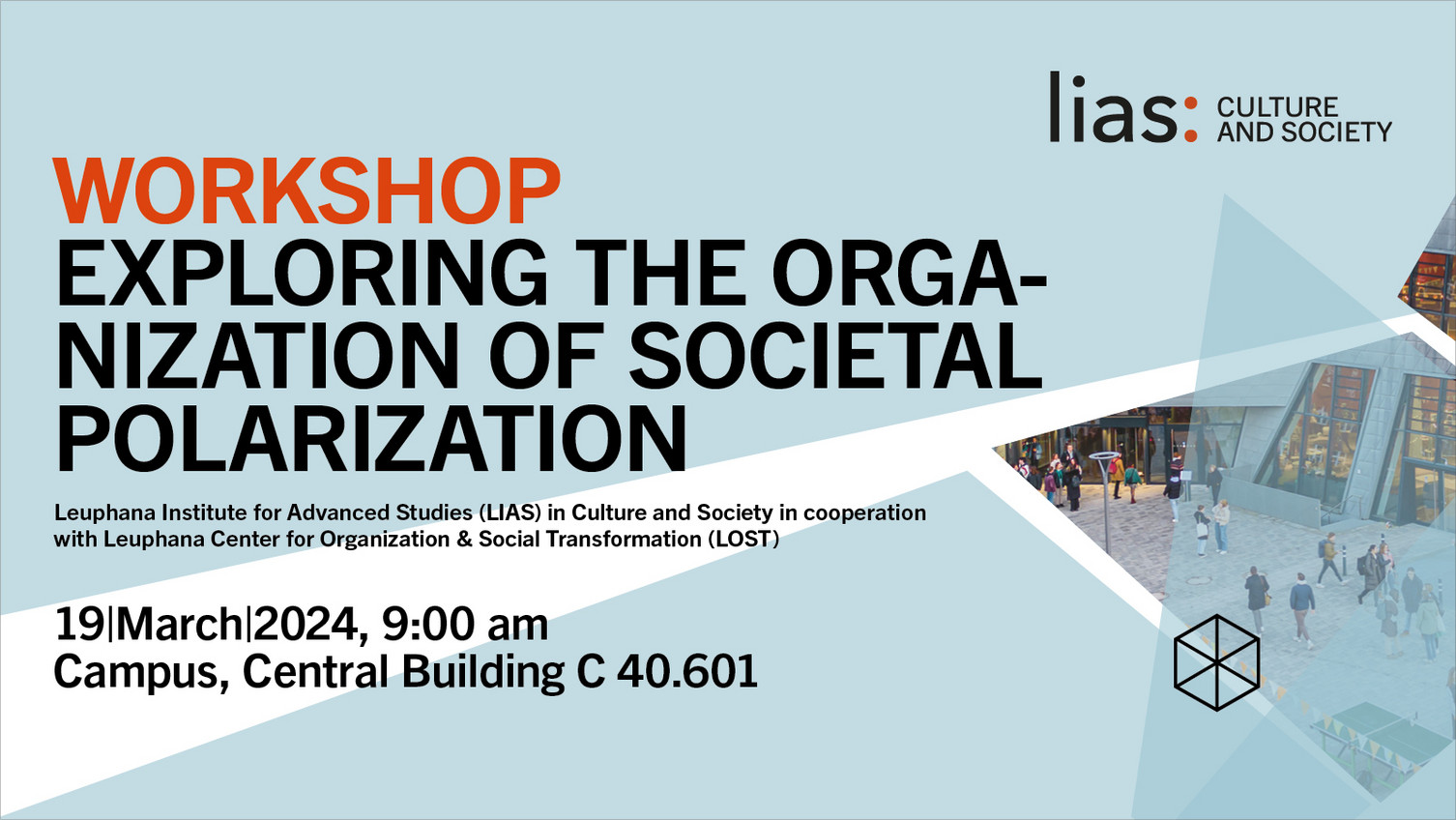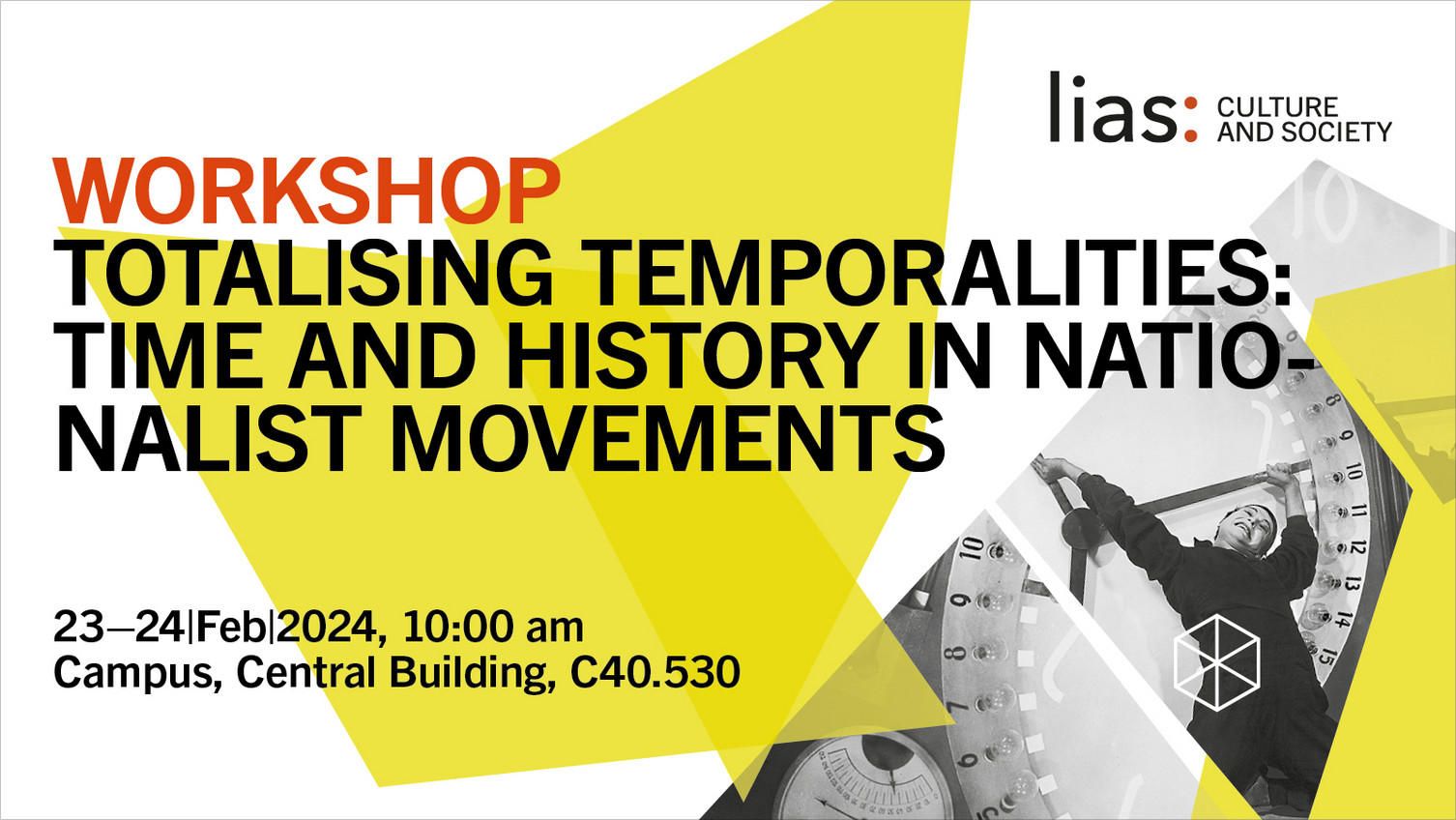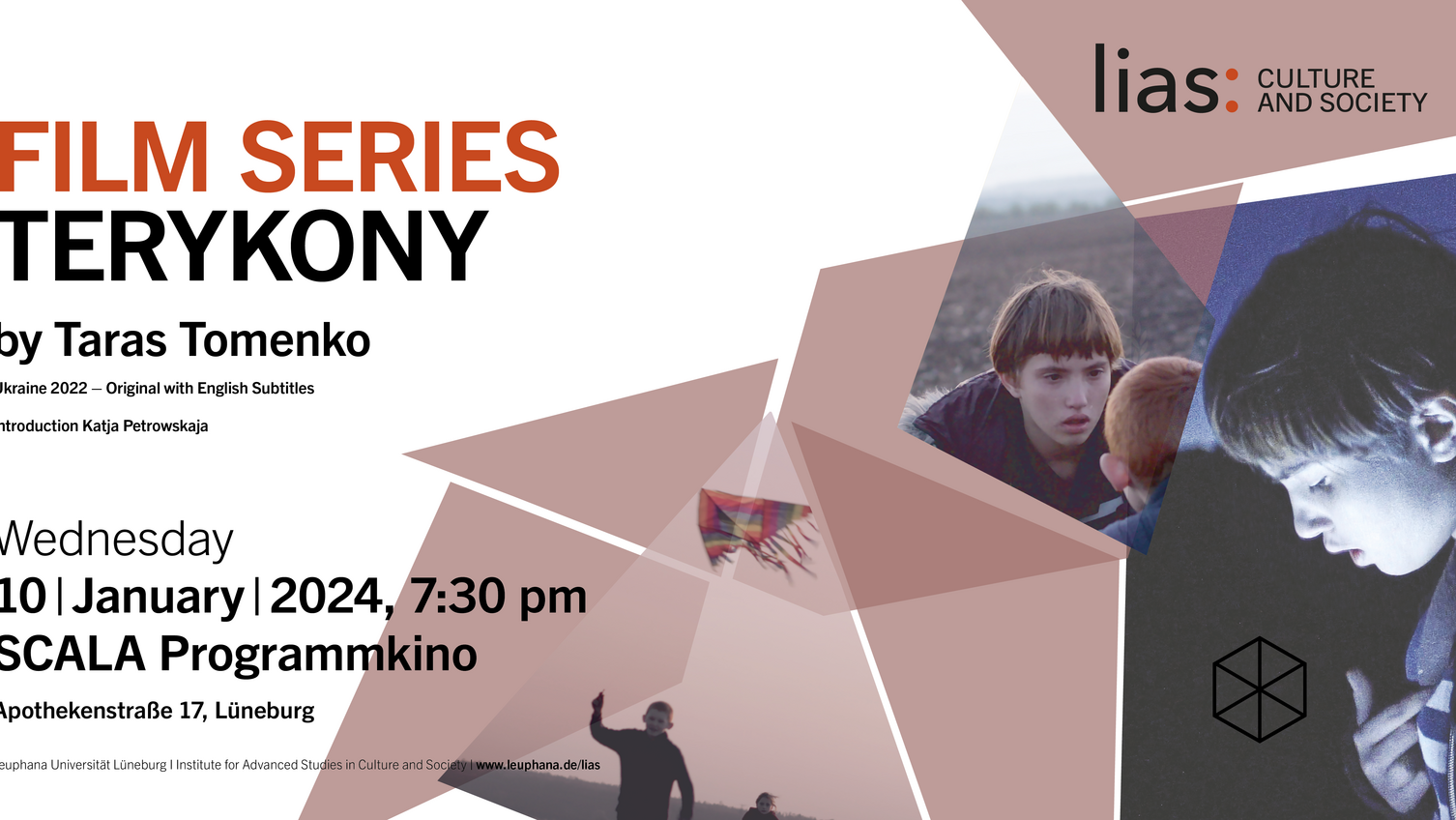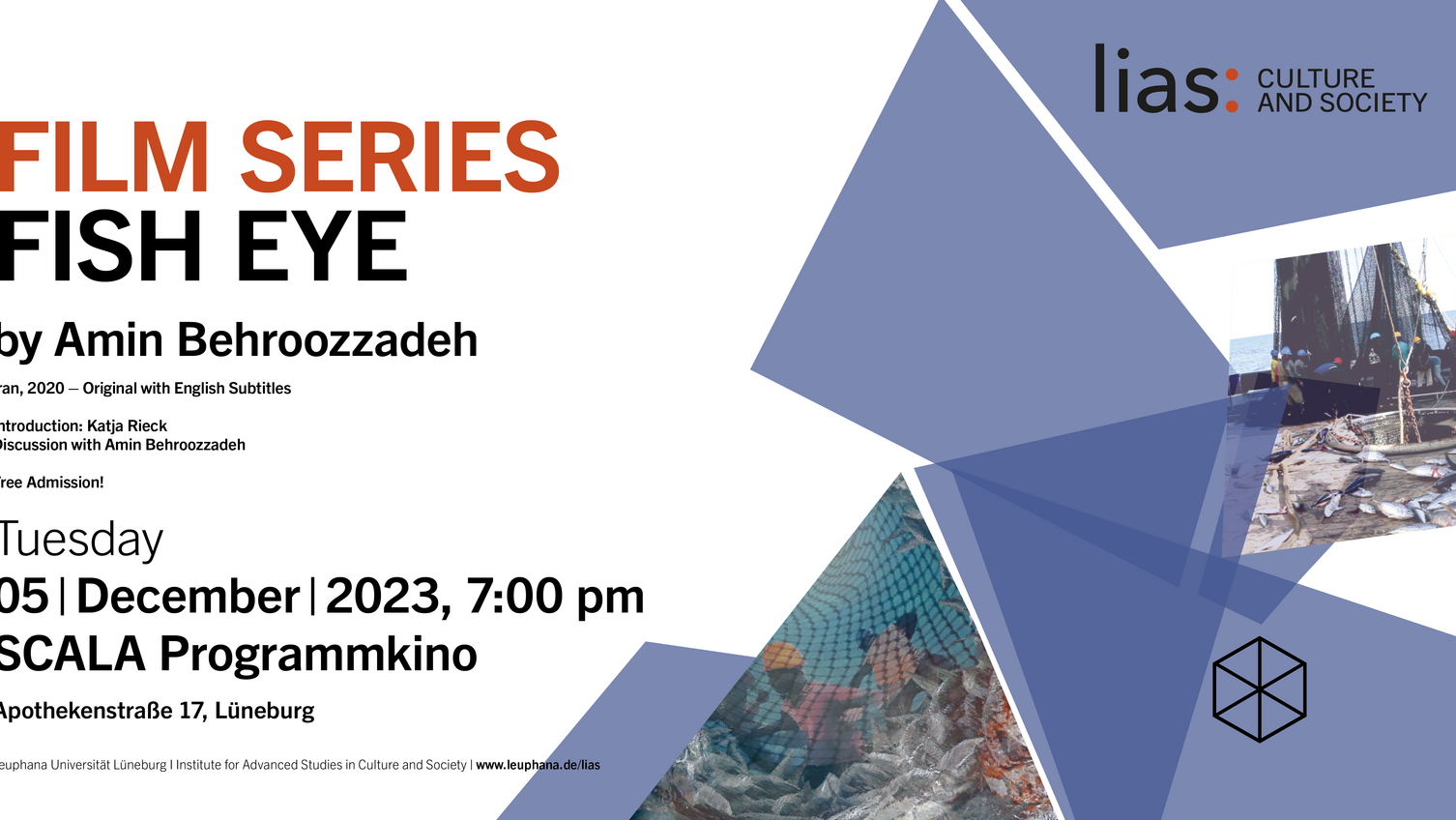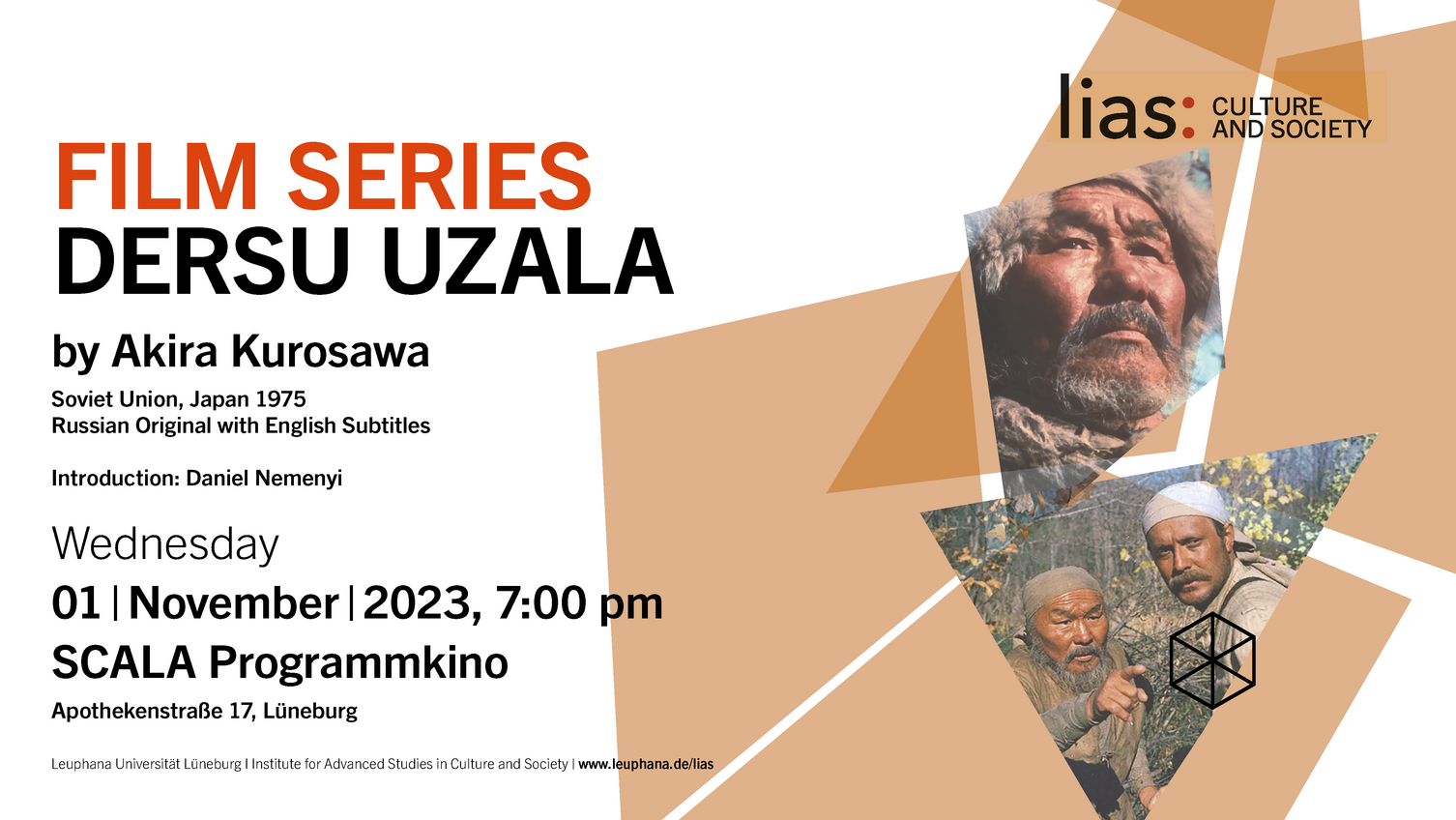Archive
Date: Wednesday, 4 February 2026, 7 pm
Location: SCALA Programmkino | Apothekenstr. 17 | 21335 Lüneburg
With LIAS Fellow Jason Goldfarb
In Do Not Expect Too Much from the End of the World, acclaimed Romanian filmmaker Radu Jude delivers a sharp, restless, and darkly comic portrait of contemporary labor, image-making, and moral compromise.
Structured in two contrasting yet deeply intertwined parts, the film follows Angela, a production assistant navigating the chaotic streets of Bucharest while casting workers for a corporate “safety at work” video. Commissioned by a multinational company, the project claims to promote responsibility and care, yet quickly exposes the hollow rhetoric behind corporate ethics.
When Marian, a half-paralyzed worker, is chosen for the video and openly states that his accident resulted from the company’s negligence, the carefully managed façade collapses. What follows is a cynical and often absurd process of damage control, in which truth must be reshaped to fit an acceptable narrative. Jude uses this conflict to dissect not only economic exploitation and the gig economy, but also the mechanics of audiovisual representation itself—how images are produced, manipulated, and emptied of meaning.
Blending road movie, satire, montage, and smartphone footage, the film embraces fragmentation as both form and critique. With biting humor and deliberate roughness, Jude confronts a digital, post-totalitarian society where capitalism, technology, and spectacle collide. The result is a provocative, unsettling work that refuses comfort, coherence, or easy conclusions, and instead mirrors the contradictions of the world it depicts.
Free admission
2023 | Director: Radu Jude | Romania | 164 Min.
Date: Wednesday, 21 January–Thursday, 22 January 2026
Location: Leuphana Campus, Central Building, C40.704
The workshop brings together scholars working on Black diasporic histories across prehistoric, classical, and medieval Europe, with the aim of broadening the field by deepening research on early African–European entanglements before the Atlantic slavery. By drawing on rigorous empirical research and decolonial methodologies, it seeks to correct long-standing historiographical gaps that have marginalized these early interactions. In addition to paper presentations, the workshop features an interdisciplinary panel bringing together scholars, artists, activists, and practitioners engaged with the historiography of Black presence in Europe. This panel will reflect on the methodological, archival, and epistemic challenges of researching early Black histories and explore how these can be addressed through collaborative, artistic, and community-centred approaches. A key outcome of the workshop is the formation of an emerging network of researchers committed to advancing scholarship on early African–European entanglements and expanding Black diasporic studies beyond the Atlantic paradigm. The keynote lecture will be delivered by Paul Kaplan, a leading scholar in early African–European studies.
LIAS Workshop: „Critical Utopia: Capital, Nature, Desire”
Wednesday, 14th - Thursday 15th January 2026 | 9.30 am
With LIAS Fellow Egidijus Mardosas and LIAS Fellow Jason Goldfarb
Date: Wednesday, 14 January, 7–9 p.m. | Thursday, 15 January, 9:30 a.m.–6 p.m.
Location: Wednesday: Scala Arthouse Cinema, Apothekenstraße 17, 21335 Lüneburg
Thursday: Leuphana Campus, Central Building, C40.601
Against the backdrop of the failure and impasses of twentieth-century revolutions, “Critical Utopia” explores the intersections of utopian thought, political economy, ecological crisis, and the libidinal investments that sustain – or undermine – imagined futures. In an ever-expanding global capitalist system, a system marked by the heightening tensions of climate catastrophe, new apartheids, and growing surplus populations, we interrogate the role of speculative futures and utopian impulses today. Is it possible to think of a utopian form that avoids the hope industry of the present, while simultaneously not reverting to a despair that only serves to reaffirm the status quo? How might the spectre of emancipatory utopian desire be shaped by our libidinal economy and the catastrophic consequences of the capitalist organization of “nature”, both human and nonhuman?
The first part of the “Critical Utopia” workshop focusses on the effects of capitalogenic environmental destruction on utopian rationality. On the one hand, more and more scholars and writers are voicing the need to re-activate utopian rationality in the search for sustainable forms of existence. On the other, the advancing climate catastrophe challenges the very possibility of utopian form. “Critical Utopia” stands in this tension and asks: How can we cultivate utopian rationality on an already damaged planet? How might we retain emancipatory utopian desire without re-introducing various idealized notions of “nature”?
The second part of the workshop addresses the relationship between desire, critique, and utopia today. Beyond the well-worn May 1968 formulas of unhindered enjoyment (jouissez sans entraves), total liberation, and de-alienation, it asks: What forms of material struggle, mediation, or critical aesthetics are capable of interrupting the libidinal and economic circuits that sustain the present? What kinds of utopian enjoyment – or the rejection of it – can open up space for new modes of collective life and political imagination? And how might these material and libidinal economic elements force us to rethink the role of speculative and critical aesthetics today?
“Critical Utopia” thus aims neither to blindly reproduce idealist escapism, nor to sustain a foreclosure of the future, but rather to map the “perpetual present” and locate transformative possibility within the space of contemporary sociopolitical failures and catastrophe itself. It sets out the challenge of rethinking the role of speculation and enjoyment in an era of stagnation, foreclosure, and false optimism – an era in which norms and transgressions overlap.
With: Carl Cassegård, University of Gothenburg, Sweden | Joe P. L. Davidson, Loughborough University, UK | Lisa Garforth, Newcastle University, UK | Egidijus Mardosas LIAS Fellow | Gregor Moder, University of Ljubljana, Slovenia | Anna-Maria Murtola, University of Eastern Finland, Finland | Barbara Ulrich Straub, Switzerland | Benjamin Studebaker, independent scholar, USA
Date: Wednesday, 14 January, 7 p.m.
Location: SCALA Arthouse Cinema | Apothekenstr. 17 | 21335 Lüneburg
Introduction with Barbara Ulrich Straub and Egidijus Mardosas (LIAS Fellow).
In tranquil natural surroundings, Danièle Huillet and Jean-Marie Straub stage the unconventionally told fiction of a community attempting to rebuild itself at the dawn of the post-World War II era.
Elio Vittorini's novel/novella "The Women of Messina" was published in 1964. The directors turned it into a kind of choral work and gave their actors stage directions to recite it in the hills of Tuscany. The result is the story of a community of fascists and communists in the ruins of post-war Italy. They try to leave the pain of war behind them and find answers to the hardships of life. The narrative focuses on the relationships and everyday activities that bring this community together and which they record in a diary.
Operai, Contadini was created in cooperation with the Teatro Municipale Francesco di Bartolo in Buti and ties in with the theatre tradition of the region. Workers play their roles as amateur actors and, in their parts, question their connection to the characters in Vittorini's story. The result is a text and body fabric in Straub-Huillet's transmedial fiction of community life, which does not present concrete proposals but can inspire imaginations of alternative working and living conditions.
Free admission
2001 | Directors: Danièle Huillet and Jean-Marie Straub | Italien/Frankreich | 123 min. | Frrench Original with English Subtitles
Date: Wednesday, 3 December 2025, 7 pm
Location: SCALA Arthouse Cinema | Apothekenstr. 17 | 21335 Lüneburg
Introduction with LIAS Fellow Grace Musila
This Is Not a Burial, It’s a Resurrection tells a cinematically dense parable about displacement and self-assertion. In carefully composed images, the director links the story of a single woman with the experience of an entire community that must assert itself against state planning and capitalist land grabbing.
The film, which premiered at the Venice Film Festival, has won numerous awards, including the Special Jury Award at the 2020 Sundance Film Festival. It was the first film from Lesotho to be nominated for an Oscar in the Best International Feature Film category in 2021.
In the remote mountain village of Nazareth in Lesotho, an old woman is preparing for her death until she learns that her hometown is to make way for a dam project. The grave she had planned for herself, as well as the graves of her ancestors, are to be flooded.
Instead of quietly accepting her fate, she rises up to defend the values and stories of her ancestors against the impending resettlement. Her decision to oppose the project sparks collective resistance and becomes the starting point for a reflection on land and belonging.
In powerful images, Mosese tells a poetic, political story about memory and self-determination. Between mythical and documentary imagery, This Is Not a Burial, It's a Resurrection negotiates central questions of the postcolonial present: Who owns the land? Who decides on progress? And how much resistance is there in memory?
With political urgency, the film depicts the struggle for the right to remain and offers a rare glimpse into a cinema that has received little attention to date.
Free admission
2019 | Director: Lemohang Jeremiah Mosese | Lesotho | 120 Min | Original in Sesotho with English subtitles
LIAS Workshop: "The Role of Courts in Migration Making"
Thursday, 13th - Friday, 14th November 2025 | 9.30 am
Date: Thursday, 13 November - Friday, 14 November 2025
Location: Leuphana Campus, Central building, Room C40.530 / C40.256/255
On 13 and 14 November 2025, Leuphana Institute or Advanced Studies (LIAS) in Culture and Society will be hosting 20 European and overseas scholars in a workshop to deeper understand the role of law and courts in shaping migration. The invited professors, postdoctoral researchers, doctoral candidates and practitioners were carefully selected from over seventy applications. In their contributions, they will discuss topics such as the role of international courts and bodies, the relationship between international, regional and national levels in migration issues, as well as decision-making in practice and policy-making by courts.
Please note our date notice to the Lecture by Pablo Ceriani Cernadas, Vice-Chair of the Committee on the Protection of the Rights of All Migrant Workers and Members of Their Families (CMW): ‘New UN Guidelines on Policies for the Elimination of Xenophobia: an important tool for addressing the growing challenges of today’ on 13 November 2025, 6 p.m. in Lecture Hall 3.
Date: Wednesday, 5 November 2025, 7 p.m.
Location: SCALA Arthouse Cinema | Apothekenstr. 17 | 21335 Lüneburg
Director Heide Grunebaum will be present.
In their documentary film, Heidi Grunebaum and Mark Kaplan, both Jewish South Africans, explore the complex aftermath of the Holocaust, apartheid, and colonial racist violence.
At the heart of the haunting documentary The Return is Heidi Grunebaum's journey to the small town of Hungen in Hesse, from which her grandmother Emmi fled the Nazis in 1936, only to encounter a new system of racist exclusion in South Africa. Based on her family history, the film unfolds a multi-layered panorama of contemporary struggles over memory in South Africa, Germany, and beyond. The aftermath of the Holocaust and anti-Semitism, apartheid, colonial violence, and contemporary racism are linked to political analysis through the personal stories of South African and German interviewees. The narrative spans from the horrors of National Socialism to apartheid and the return of authoritarian ideologies today.
Through poetic imagery and multi-layered documentary conversations, the film reveals how colonial continuities, structural racism, and ethno-nationalist movements are intertwined. It asks what role solidarity, Jewish diaspora perspectives, and postcolonial thinking can play in shaping a more just future.
This film is part of the LIAS film series in cooperation with the SCALA arthouse cinema. Every month, international films on cultural and socially critical topics are accompanied by introductions and discussions.
Free admission.
2024 | Directors: Mark J Kaplan & Heidi Grunebaum | Southafrica | 96 Min.
Date: Sunday, 19 October 2025, 7 pm
Location: SCALA Programmkino | Apothekenstr. 17 | 21335 Lüneburg
With an introduction by producer Talal Derki (LIAS Public Fellow).
In his film Hollywoodgate, Egyptian director and journalist Ibrahim Nash'at spends a year accompanying two high-ranking Taliban members – Mawlawi Mansour, head of the newly formed air force, and Mukhtar, an ambitious fighter – in the immediate aftermath of the US withdrawal from Afghanistan in the summer of 2021. Hollywoodgate was shortlisted for the 2025 OSCARS not only for its cinematic quality, but above all for its political explosiveness and topicality.
The central location is the abandoned US military base ‘Hollywood Gate’ in Kabul, where the Taliban find billions worth of state-of-the-art weapons. The film documents how an Islamist militia transforms itself into a military-technical regime. It is equipped with Western military hardware and a growing awareness of media self-presentation. Hollywoodgate impressively shows what the Taliban allow in front of the camera and, precisely through what is left out, through staging and silence, reveals deeper structures. With impressive intimacy and without commentary, Nash'at lets his images speak for themselves. They tell of revenge fantasies and the targeted use of propaganda, raising pressing questions about the emergence of new centres of power and the role of media images in authoritarian systems.
The film is highly relevant for understanding a world in geopolitical upheaval and sheds light on our changed perception of war when its actors begin to stage it themselves in the style of Western aesthetics.
Free admission.
2023 | Director: Ibrahim Nash’at | Germany, USA | 91 min.
Lazzaro Felice – Happy as Lazzaro (Italian original with English subtitles)
France, Germany, Italy 2018 | Director: Alice Rohrwacher | 128 min
Happy as Lazzaro is a critically acclaimed feature film that tells the story of an unlikely friendship between the innocent farmworker Lazzaro and the young nobleman Tancredi. The narrative blends fairytale elements with a poignant critique of social exploitation, inequality, and alienation. Set in the fictional village of Inviolata, the story unfolds in a feudal-like community controlled by the Marquesa Alfonsina de Luna. Lazzaro lives unquestioningly within this hierarchy until a staged kidnapping—“the great deception”—marks a turning point. Years later, Lazzaro returns to a changed urban world, searching for his lost friend and struggling to find his place in a society that no longer understands his gentle nature.
Combining magical realism with neorealistic social commentary, the film explores themes such as justice, dislocation, and the impact of capitalist structures. Alice Rohrwacher was awarded the Best Screenplay Prize at the 2018 Cannes Film Festival.
Introduction by Susanne Leeb (LIAS Co-Director)
Date: Tuesday, 1st July 2025, 6:00–8:00 pm
Location: Lecture Hall 4
Katherine Gibson’s research over the last few decades has focused on inventorying and activating ethical economic wellbeing with communities around the world. It has been underpinned by a feminist critique of capitalocentrism—that is, the discourse that dominates thinking and action around ‘the Economy’ and ‘the Environment’. In today’s world it is hard to escape the increasingly devastating realities of human exploitation and extractivism. And for this very reason it is all the more important to bring to visibility other ways of living that enact ethical practices of care, mutual aid, reciprocity and sharing. But to have any transformative effect, this visibility must be supported by theoretical insight and collective action. In this lecture Gibson will outline the Diverse Economies Research Project and the work of the international Community Economies Research Network, highlighting the central role of anti-essentialism, uncertainty and joy in our practice.
Date: Wednesday, 25.06. 6-8 pm | Thursday, 26.06. 9 am-6 pm
Location: Leuphana Campus, Central Building, Lecture Hall 4 (25.6.) & C40.704 (26.6.)
Language: English
Presentations by: Alex Demirović, LIAS Alumnus, Frankfurt | Serhat Karakayali, Leuphana Universität | Isabell Lorey, KHM, Köln | Nancy Luxon, LIAS Senior Fellow | Minkah Makalani, Baltimore | Roberto Nigro, Leuphana Universität | Jonas Oßwald, Wien | Morten Paul, Duisburg-Essen
Inputs by Activists: Fabian Virchow, Researcher on right-wing extremism and neo-Nazism, Düsseldorf University of Applied Sciences | Julia Dück, Campaign spokesperson of ‘Defend human dignity - ban the AfD now!', Berlin | Anika Taschke, Senior advisor for neo-Nazism, Rosa-Luxemburg-Stiftung, Berlin
With the intensification of right-wing political movements in Germany, Austria, Hungary, the United States, and France (among other countries), the world finds itself faced with the question of whether fascism is emerging once again as a political force, or with a new form of nationalism, authoritarianism and fascism. What resources can we draw on to diagnose and think through this new political moment?
This workshop proposes a two-part event. The plenary session on Wednesday, June 25 will draw together political activists to hear their diagnoses of current right-wing political trends, and to debate how to problematize this present moment. The next day, eight scholars will convene to debate this same problematic drawing on the thought of Michel Foucault, the pre-eminent theorist of power in the 20th century. Our current political situation poses a twofold challenge for Foucault's analysis of power: Are his concepts — such as exclusion and incarceration, surveillance, population, biopower and biopolitics, governmentality, and the ethics of the self — useful for understanding this development toward a new authoritarianism or fascism? Do they help us to better understand current social dynamics? And conversely, do current social developments direct us back to Foucault, so as to find intellectual and political resources for thinking about, for example, migration and transnational politics?
This workshop will re-read Foucault’s texts as an attempt to contribute to a non-fascist life and to explore whether his concepts can help us to understand current power politics. Simultaneously, it draws on recent political experiences to develop a more nuanced understanding of Foucault's work and how far it can be “stretched.” We will think with, against, and beyond Foucault interpreting his analyses as attempts to decipher the comprehensive underlying authoritarian logic of modern capitalist societies — the intricate practices of exclusion, confinement, surveillance, normalization and pathologization, the implementation of biopolitical logics to manage migration and colonial entanglements — as well as the resources for moving toward non-fascistic life. Beyond rhetorical impact, what is the value of such terms as fascism, authoritarianism, totalitarianism, control society, and autocracy, and how they construe specific conjunctures of power?
Programme
25. June
Lecture Hall 4
6:00-8:00 pm Panel Discussion: Antifascist Praxis in the 21st Century / Podiumsdiskussion: Antifaschistische Praxis im 21. Jahrhundert (in German language)
Fabian Virchow (Researcher on right-wing extremism and neo-Nazism, Düsseldorf University of Applied Sciences)
Julia Dück (Campaign spokesperson of ‘Defend human dignity - ban the AfD now!', Berlin)
Anika Taschke (Senior advisor for neo-Nazism, Rosa-Luxemburg-Stiftung, Berlin)
26. June
Central Building, C40.704
9:00-9:30 am Introduction to the Workshop
9:30-11:00 am Session 1: Rethinking Fascism with Foucault
Roberto Nigro: »Foucault and Fascism: How to Fill an Empty Space?«
Alex Demirović: »Governmentality - a New Power After Fascism«
11:15 am-12:45 pm Session 2: Antifascist Mode of Life
Jonas Oßwald: »Introduction to the non-fascist life: Foucault and the Problem of Power«
Morten Paul: »The Fascist Inside You: Foucault as a reader of Deleuze and Guattari«
2:00-3:30 pm Session 3: Practices of Resistance
Isabell Lorey: »Deviantisation and Denunciation: Foucault's Micropolitics of Power«
Nancy Luxon: »Desire, Bodies, and the Need for Shelter«
4:00-5:30 pm Session 4: Migration and Transnational Politics
Minkah Makalani: »‘A Bit Cracked‘: Prophetic Utterance and Unspeakable Coloniality in Ousmane Sembène’s Camp de Thiaroye«
Serhat Karakayalı: »Policing Migration, Disciplining Society: Racial Governmentality and the Fascist Drift«
5:30-6:00 pm Closing Remarks
Date: Wednesday, June 11th, 6-8 pm
Location: Central Building, Room C40.704
With: Nancy Luxon, LISA Senior Fellow | Kerstin Stakemeier, LIAS Alumna, AdBK Nuremberg | Romain Tiquet, Centre Marc Bloch Berlin | Elena Vogman, Institute for Cultural Inquiry Berlin
Moderation: Susanne Leeb, LIAS Co-Director
In the wake of rising fascist and colonial violence in the 1930s, a group of radical psychiatrists experimented with social and institutional practices grouped together as ones of “disalienation.” At the core of disalienating praxis lay the conviction that social relationships suffered from a “pathology of liberty” rather than individual problems of health. Social and mental alienation were impossibly entangled. These practitioners — ranging from Francesc Tosquelles to Frantz Fanon to Henri Collomb — experimented with the creation of more supple institutions that would offer new acoustic spaces for meaning-making, freedom to wander in body and thought, and sites to express the playfulness of fantasy. Ideally, such spaces would offer a different shelter for experiences of neurosis, schizophrenia, and psychosis deeply connected to the violence of fascism and colonialism. By affecting all of those involved (and not just patients), these experiments sought to rethink and humanize the terms of collectivity and the knowledge through which it understands itself. Disalienation became an effort to undo our attachments to an alienating politics, social life, and knowledge formation. Each of the four papers on this panel speaks to a different aspect of this project to think through its reverberations with fantasies of other ways of being today.
Fantasies of Disalienation
Kerstin Stakemeier, AdBK Nürnberg
The term disalienation, emerging from psychiatric practices in France in the early 20th century, does not denote alienation's antonym. Rather, as much as alienation is a practice – one of romantic subjectivization – disalienation too characterizes a form of individuation: one that dissociates alienation and brings the fantasies grounding its imaginations into play. I want to demonstrate that disalienation should be undersetood as a fantastic practice of integration.
Disalienation by Design
Nancy Luxon, University of Minnesota and LIAS Senior Fellow
How do institutions mediate between social and mental alienation? Following thinkers like Foucault, Goffman, and Althusser, often institutions are construed as simply contributing to existing orders and their interpellations. Colonial hospitals in particular have long been understood as complicitous in shoring up more clearly political patterns of exclusion and marginalization. More recently, scholars have reached backward to radical institutional collectives in order to think forward to the resources needed to sustain long-term anti-colonial and anti-racist challenges. Fanon’s psychiatric hospitals in Algeria and Tunisia, along with Harlem’s Lafargue Clinic, played a central role in reframing racial inequality in terms of psychic injury (United States) or in terms of disalienation (North Africa). Rather than thinking on utopic and theoretical terms, this paper closely examines the infrastructures – the provision of food and medicine, institutional architecture, and nursing staff – that allowed for certain infrastructural spaces to serve as fulcrums for political change while others remain entrenched in existing practices of marginalization and exclusion. Drawing on archival resources from the Hôpital Psychiatrique de Blida, this paper considers the architectural design of a range of hospitals in Europe and North Africa from the 1930s-1960s; the redirection of the hospital as social institution away from the practices of Vichy and racial segregation, and towards political revolution; and the provisionments that made these hospitals “inbetween spaces” to sustain political and social change. This paper thus offers a re-visioning of how institutions might re-circulate people, materials, and the repetitions of social time so as to “unseat mastery” and its structuring recurrence within political and social order.
Geo-psychiatry and Disalienation
Elena Vogman, ICI-Berlin
This talk addresses the media practices developed in the fame of “institutional psychotherapy” through the prism of “geo-psychiatry.” Institutional psychotherapy was a psychiatric reform and resistance movement initiated in postwar France by François Tosquelles, Lucien Bonnafé, and Frantz Fanon among others against the racist and ableist extermination of patients with mental and physical disabilities. Geo-psychiatry proposed an environmental and decolonial approach to mental healthcare: it (re)politicized the notion of “human geography” to the extent of questioning society’s politics of space, which embraced the concentrationary modes of confinement. Media, such as film, photography, printing, and cartography, served to collectively re-invent and re-imagine the geography of the present: to produce environments, institutions, and milieus that would facilitate psychological therapy and healing. Emerging as practices of resistance, these interventions appear crucial in light of current debates on media and environmentality, as well as the social and participatory repurposing of technology within a project of disalienation.
Elena Vogman is a scholar of comparative literature and media. She is Principal Investigator of the research project “Madness, Media, Milieus: Reconfiguring the Humanities in Postwar Europe” at Bauhaus University Weimar and Visiting Fellow at ICI Berlin Institute for Cultural Inquiry. Her current work focuses on the media histories of institutional psychotherapy and its intersections with decolonial discourse, psychoanalysis, feminism, and ecological thinking. She has published two books, Sinnliches Denken. Eisensteins exzentrische Methode (Sensuous Thinking. Eisenstein’s Eccentric Method, 2018) and Dance of Values: Sergei Eisenstein’s Capital Project (2019).
Imported Psychiatry and “Patient voices”: Reconsidering the “Fann School” in Senegal through a Patient File
Romain Tiquet, Centre Marc Bloch
This paper focuses on a patient file compiled within the specific framework of psychiatric therapeutic care at Fann in Dakar (Senegal) in the mid-1960s. The Fann clinic, which opened in 1956, just a few years before Senegal’s independence, quickly became a center for transcultural psychiatry and a hub for intense reflection on African psychopathology. The institution was deeply shaped by Henri Collomb and his team, who sought to develop a "psychiatry without borders"—one that aimed to dismantle the walls of the colonial asylum, integrate local understandings and representations of mental disorders, and place patients’ voices at the heart of the therapeutic process.
Collomb brought together psychiatric psychoanalysts, ethnologists, sociologists, and anthropologists to explore the social, economic, and cultural dimensions of mental illness in Senegal and, more broadly, in Africa. By examining the file of Moustapha H., who was hospitalized at the psychiatric clinic in 1965 and 1967, this contribution seeks to analyze how the Fann approach, centered on the "liberation of speech," allowed for a genuine consideration of patients' testimonies and those of their families.
This contribution interweaves clinical insight with historical perspective, exploring three ways of conceptualizing the patient. First, I will examine the "patient as actor." The emphasis on speech liberation at the core of Fann’s therapeutic approach ensured that patients' and families' voices were not only taken seriously but also served as both a therapeutic tool and a valuable resource for historians. Second, I will explore the "patient as symptom," shifting the focus from the disorder itself to what the patient’s psychic manifestations reveal about the broader social, cultural, and historical context—such as family tensions or the "cultural in-between" of an increasingly urbanized postcolonial society. Lastly, I will discuss the "patient as object." Both the Fann medical team and historians face the risk of reducing the patient and their family to mere subjects of cultural analysis, thereby confining them within a rigid interpretative framework. In this final section, I highlight the limitations of the Fann experiment and the methodological challenges historians encounter when using psychiatric patient files as sources for social history.
Romain Tiquet holds a PhD in African Studies from the Humboldt University Berlin. He has since been named 2019 CNRS researcher at the Institut des Mondes Africains (MMSH Aix-en-Provence) and, since September 1st, 2022, at the Centre Marc Bloch in Berlin. After working on forced labor in Senegal, he has turned his focus to the history of madness in West Africa. He leads the ERC project "Governing Madness in West Africa" (MadAf 2021–2026). He has published several articles on patient files and methodological reflections on sources for studying the history of madness in West Africa.
Opening: Tuesday, June 10th, 6 pm
Exhibition: June 10th-July 9th
Location: Kunstraum Leuphana University
Seven works is an exhibition by Wisrah C.V da R Celestino curated by LIAS Artist Fellow Ana Druwe as part of her fellow research on the notions Transparency, Opacity and Porosity and how it can shape institutional practices. The exhibition shows a selection of works in direct dialogue with the campus. Celestino explores agency and complicity within institutional systems. The selection of seven score-based pieces taps into the surface of the space - architectural and organizational - with responsive, contingent negotiation. The pieces in the show examine how familial ties, property regimes, and institutional procedures shape the terms of visibility, authorship, and access.
In parallel of the exhibition, the students of the seminar were invited to build interventions in response to Wisrah's works and discussions on institutional practices to imagine and shape possible futures for the campus.
Kunstraum Archive Open Doors
Every Tuesday, 2:00–4:00 pm until 9 July
Heating the Space
Jam session with LIAS Fellow Temitope Fagunwa
8 July, Tuesday, 6:00 pm – Kunstraum
Slowing down the campus
Taijiquan open class with Sifu Niklas Schmidt – Dacascos Kampfkunstschule Lüneburg
Open class for beginners. Open to all Leuphana communities
17 June, Tuesday, 6-7pm in front of Kunstraum
Date: Wednesday, 4th of June 2025, 7:30 pm
Location: SCALA Arthouse Cinema | Apothekenstr. 17 | 21335 Lüneburg
With an Introduction by LIAS Senior Fellow Katherine Gibson.
The Bamboo Bridge across the Mekong River in Cambodia was an ephemeral infrastructure that lived with the flood and drew on a diverse array of economic and ecological practices of interdependence. Spanning 1.5 kms between Koh Paen Island and Kampung Chan, for decades this bridge was built every year as the river waters fell and then dismantled and stored as the flood waters rose. In 2017 the crew filmed the last year of its life while a concrete bridge was constructed down river as part of China’s Belt and Road initiative. The film draws attention to the more-than-human communities that were nourished and maintained by this social-ecological-technological infrastructure. It also presents the bridge as an important site of caring and commoning where habitats converge.
Free admission.
2019 | Juan Francisco Salazar | Australia
Khmer original with English subtitles
Date: Wednesday, May 28th, 5-8 pm
Location: Leuphana Campus, Lecture Hall 3
Screening & Public Conversation
Under the Sky of Damascus, which celebrated its world premiere at the 2023 Berlinale, is a stirring documentary film about the courage to speak out in a society that insists on silence. Directors Heba Khaled, Talal Derki and Ali Wajeeh accompany a group of young actresses in Damascus who want to develop a theatre play - based on the harrowing, anonymous reports of Syrian women about violence, abuse and systematic sexism.
What begins as an artistic project soon becomes a mirror of a society in which patriarchal control is deeply rooted - not only on the streets, but also in families, partnerships and even within the project itself. The stories the film shows are disturbing - from forced marriages and abuse to inconceivable court rulings that protect perpetrators and force victims to remain silent. Under the Sky of Damascus is proof that women in Syria - despite fear, control and repression - are raising their voices to make themselves heard.
For Talal Derki and his wife Hebab Khaled, who met as journalists, returning to Syria is tantamount to a death sentence. Khaled, who is directing a film for the first time, is a survivor herself. She grew up in a deeply conservative Muslim family in Damascus and left Syria in 2014.
2023 | Heba Khaled, Talal Derki, Ali Wajeeh | Denmark, Germany, USA, Syria | 88 min | Arabic Original with English subtitles
Date: Wednesday, May 14th 2025, 6:30–8:00 pm
Location: Leuphana Campus, Lecturehall 5
This keynote address deploys the trope of "the pilgrimage," and its elaboration in foundational anthropological studies (Victor Turner, Joseph Campbell and others) to imagine our scholarly gathering as a sacred journey. The path is composed of our series of presentations, but also of a proposed chronology with specific dates and epistemic shifts that demarcate the religious, secular and post-secular historical periods. My presentation posits that the post-secular involves a certain return to the religious--with a twist, because pilgrimages are never circular, always elliptical.
The LIAS Lecture is also part of the workshop “Postsecular Reckonings: Spirituality and Religion in Contemporary Art History and Cultural Studie” on May, 14 and 15 2025 at the Kunstraum.
Date: Wednesday, May 7th 2025, 7 pm
Location: SCALA Arthouse Cinema | Apothekenstr. 17 | 21335 Lüneburg
With an Introduction by von Nancy Luxon. Free admission.
In her semi-documentary film, Mireia Sallarès explores the suppressed history of an extraordinary psychiatrist: Francesc Tosquelles, Catalan exile, revolutionary and pioneer of radical humanist psychiatry, fled the Spanish Civil War during the Nazi occupation in the 1940s and transformed a provincial hospital in the seclusion of Saint-Alban-sur-Limagnole into a lively, creative experiment: an ‘asylum village’ based on equality, community and self-management.
Sallarès takes up Ariella Aïsha Azoulay's concept of potential history - there is a past that is not taken into account in official historiography. A critical reading of archives is therefore necessary in order to tell the undocumented stories. In this sense, she reconstructs Tosquelles' work as a contribution to the history of psychiatry and as a repressed chapter of Catalan revolutionary history, European artistic development and the anti-colonial tradition of thought. His methods not only influenced Frantz Fanon and Félix Guattari, but also the emergence of Art Brut, the art of the ‘outsider’, as it was later celebrated by Jean Dubuffet.
The film deliberately dispenses with illustrative images - words, narratives, performative moments and archive material take centre stage. The result is a dense, demanding and at the same time fascinating essay film that shows how radically empathetic care, political determination and creative freedom can work together. Tosquelles does not stand here as a historical relic, but as a source of inspiration for a different way of thinking - in psychiatry, in art, in dealing with history.
2021 | Mireia Sallarès | USA
Date: Wednesday, April 23rd, 6:30 pm
Location: Leuphana Campus, Room C40.704
"From Language" is a lecture by artist Wisrah C. V. da R. Celestino that delves into their artistic practice with particular attention to the linguistic and propositional structures that underpin their works. With their practice, Celestino approaches Language as a medium of operational force that structures contracts, performances, institutions, and forms of refusal. The lecture examines how Language operates across juridical, emotional, and infrastructural registers through close reading selection.
Informed by traditions of conceptualism, institutional post-colonial critique, and a commitment to familial and material contingency, From Language offers a study of how artworks act as linguistic compositions — and how Language itself can be a site of both containment and liberation.
Wisrah C. V. da R. Celestino addresses through score, sculpture, text, photography, sound, and video, the remaining structures of the transatlantic colonial project, focusing on institutional critique, language, and objecthood. Their work has been shown in Germany and internationally, including exhibitions at Galerie Molitor (Germany), Kunsthal Nord (Denmark), Museu Nacional da República (Brazil), Institut für Auslandsbeziehungen (Germany), Curitiba Biennial (Brazil), and Oscar Niemeyer Museum (Brazil). The lecture performance is part of the upcoming solo exhibition at Kunstraum in June 2025.
Date: Wednesday, April 9th 2025, 7 pm
Location: SCALA Arthouse Cinema | Apothekenstr. 17 | 21335 Lüneburg
Language: arabic original with english subtitles
With an Introduction by Director Talal Derki.
OF FATHERS AND SONS provides a unique and disturbing insight into the life of a radical Islamist family in Syria. After his Sundance Award-winning documentary ‘Return to Homs’, director Talal Derki returned to his home country, where he gained the trust of a radical Islamist family and shared their daily lives for over two years.
Director Talal Derki focusses primarily on the children and provides an extremely rare insight into what it means to grow up with a father whose only dream is to establish an Islamic caliphate. Osama (13) and his brother Ayman (12) are at the centre of the story. Both love and admire their father and obey him, but while Osama seems to emulate his father and take the path of jihad, Ayman wants to go back to school and avoid this predetermined path. The film captures the moment when the children have to let go of their youth and ultimately become jihad fighters. No matter how close the war comes, they have already learnt one thing: they must not cry.
Free admission.
2017 | Talal Derki | Germany/Syria
Date: Tuesday, February 18th - Thursday, February 20th 2025, 10 am–3.40 pm
Location: Leuphana Central Building | C40.501
Language: English
In this three-day conference organised under the auspices of LIAS, we interrogate the materialities of populist politics. We look forward to bringing a diverse interdisciplinary cohort of international scholars to Leuphana to explore these lesser studied dimensions of contemporary populist political projects. While much of the critical literature has tended to focus on populist discourses traditionally understood, such as media discourse, political speeches, and popular political lexicons, by (re)forgrouding the materialities of populism we seek to render more intelligible the practices through which populist political projects reconfigure the spaces in which we live our lives - from the intimately local to planetary scale. In is a critical stance which grapples with the entanglements and distributions of violence and exclusion which constitute and saturate our present horizon. Some of the themes our invited speakers will explore include the following:
Ecologies of populism
(de)coloniality and populism
Infrastructures of populism
Temporalities and spatialities of populism
Violent entanglements and populism
The materialities of antagonism
Populism and contemporary apartheid(s)
The failures of liberalism and the conditions of populism
Spaces of resistance
Populism and cultural spaces
Authoritarian populism
Post-humanism and populism
Egalitarian populism
Material imaginaries of populism
Histories of populism
Speakers:
Gary Hussey, LIAS Fellow | Alex Demirović, LIAS Senior Fellow | Paula Bertuá, LIAS Fellow | Emmanuel Adeniyi, LIAS Fellow | Adrià Alcoverro, LIAS Alumnus | Mark Devenney, University of Brighton | Andy Knott, University of Brighton | Liam M. Farrell, Manchester Metropolitan University | Friederike Landau-Donnelly, TU Dortmund | Emília Barna, Budapest University of Technology and Economics | Ágnes Patakfalvi-Czirják, Budapest University of Technology and Economics | Salman Hussain, York University | Natalia Krzyzanowska, Örebro Universitet | Spyros Sofos Simon, Frazer University | Kamuran Akin, Humboldt-Universität Berlin | Noémi Farkas, University of Galway
Programme
Tuesday, 18 February
10:00–10:30 pm
Registration + Coffee
10:30–10:45 pm
Welcome address
10:45–12:35 pm
Alex Demirović
Adrià Alcoverro Pedrola: „The extreme right normalization and consumerism in a context of totalizing competition“
12.55–1.45 pm
Mark Devenney: „Beyond the Anthropocentric Politics of Populism“
3.15–4.55 pm
Friederike Landau-Donnelly: „Slipping whilst you dance at the abyss: A hydro- feminist materialist encounter with post- foundationalism“
Natalia Krzyzanowska
Wednesday, 19 February
10.00–11.40 am
Gary Hussey: „Untimely peoples, ‘dangerous memories’, and spaces of the apocalypse“
Liam M. Farrell: „A genealogy of plantationocene populism: reconstruction and repair in the wake of An Gorta Mór“
12.00–1.40 pm
Andy Knott: „Materiality, history, populism and non-populism“
Salman Hussain: „Body, Sexuality, and Nationalism: Rethinking the Materialities of Populism in Contemporary South Asia“
3.00–4.40 pm
Emília Barna: “Cultural labour and autonomy in the Hungarian music industries and the mainstreaming of populism”
Ágnes Patakfalvi-Czirják: “From Hungary with Love. The Infrastructure of Political Gratitude in the Orban Regime”
5.00–5.50 pm
Spyros Sofos: “Material Histories of Disenfranchisement: Political Economy, Ecology, and Racialization in TurkishPopulism”
Thursday, 20 February
10.00–11.40 am
Noémi Farkas: “’A Mirror for Ministers’: Material/discursive dis(con)figurations of history in contemporary Hungary”
Paula Bertúa: “Cosmo-Aesthetics: technical materialities and politics in contemporary Latin American Art”
12.00–12.50 pm
Kamuran Akin: “Colonial Nexus: Deforestation, securitization of dams, control and surveillance through the military infrastructural projects”
2.00–3.40 pm
Emmanuel Adeniyi: “The Weeping Earth: Entangled Humanism, Precarity, and Imaginaries in African Eco-Poetry”
In this experimental feature film, Brazilian artistic researcher and filmmaker Bruno Moreschi and visual artist Pedro Gallego offer a fascinating and critical look behind the scenes of complex visual data sets that serve as training material for machines and artificial intelligences. Using an interdisciplinary and creative methodology, the film provides a deeper understanding of the visual data that our machines ‘see’. The film accompanies Moreschi's long-term research process, in which he analyses these images and at the same time interacts with experts, artists and click workers.
Acapulco addresses the complexity of machine learning, the proliferation of fakes, and historical practices that precede AI but help us understand its less obvious logics. It also looks at the click workers who tag images in precarious jobs and thus make machine learning possible in the first place. In a reflection on how our digital world is constructed through human participation and technical advances, it impressively demonstrates the central role that humans play in the supposedly automated world of artificial intelligence and the cultural practice of understanding images.
Switzerland, Brazil 2024, Directors: Bruno Moreschi and Pedro Gallego, Pedro Gallego, 78 min, original with English Subtitels
Introduction with the director Bruno Moreschi (LIAS-Fellow) and Inge Hinterwaldner (Karlsruhe Institute of Technology).
Free admission.
SCALA Arthouse Cinema | Apothekenstr. 17 | 21335 Lüneburg
Location: Leuphana University Campus, C40.530
Language: English
Workshop organized by LIAS Fellows Paula Bertúa and Bruno Moreschi.
We often assume that technical images and inorganic, external, portable memories have substantially transformed our logic of perception. The history of the mechanical production of images, since the 19th century, narrates the externalization of the production of images in a series of recording devices. These images are no longer created solely by human beings, thus distancing themselves from the imaginative possibilities of the human sensorium. At the same time, the logic of recording makes it possible to archive materially what had been the prerogative of (immaterial) human memory: the sensory experience of these images. This conference invites us to think about the radical consequences of the externalization of imagination to the point of questioning the idea that imagination itself is an exclusively human prerogative. It will examine from a historical, technical and conceptual approach and from devices of diverse nature (analog, digital, AI) inscribed in various fields (art, media, science) how the notion of memory has been technically externalized, what are the implications for a non-human imagination and how this can be conceived from a performative perspective, in particular in relation to the always amphibious faculties of memory and imagination.
Programme
1.30–3:30 pm
Performativity, Memory and Imagination of Technical Images
Panel discussion and Presentations
Co-moderation and discussion: Erich Hörl (LIAS Co-Director) and Paula Bertúa (LIAS Fellow)
Speakers: Snježana Šimić (Paris), Renzo Filinich (Johannesburg), Katharina Weinstock (Karlsruhe) and Sheung Yiu (Helsinki)
4:00–5:00 pm
Technical Images as Tower of Babel: Six Memos
Lecture Laura González Flores (Mexico City)
Introduction: Paula Bertúa, LIAS Fellow
My presentation will take Pieter Bruegel the Elder's oil painting of The Tower of Babel (1563) as an allegory of technical images today. By tracing analogies between the painting's depiction of its theme, I will reflect on six notions associated with the contemporary social, cultural, political, and economic uses of machine-made images: illusion, iteration, regularity, indistinction, acceleration, and programmability. Rather than the notion of “cosmetics” that Jean-Louis Déotte proposed to understand images as aesthetic apparatuses, I will conclude by suggesting "chaosmosis” as a better description of high-tech AI-informed images today.
5.00–5.30 pm
Final Discussion
7.30–9.30 pm
Acapulco
Screening and talk with Inge Hinterwaldner (Karlsruhe) and Bruno Moreschi (LIAS Fellow)
Scala Arthouse Cinema, Apothekenstraße 17, 21335, Lüneburg
Employing methodologies rooted in critical pedagogy, Moreschi crafted an immersive experience for the “seers” who participate in this film. Leading experts from around the world received printed postcards by mail featuring some images used to train AI/ Computer Vision, while crowd workers who tag these images participated in several experimental reading and conversation sessions. The culmination is a visual odyssey that invites speculation on novel approaches to image comprehension, advocating for a paradigm shift in computer training methods towards more nuanced, human-centric perspectives.
Location: Leuphana University Lüneburg | C40.704
Language: English, with simultaneous translation from and to Spanish and Portuguese
Please register at lias.event@leuphana.de by 29 January 2025.
This workshop connects Indigenous representatives, artists, and researchers with European collections. One of the most salient characteristics of European collecting and musealization was to separate so-called objects from Indigenous peoples and their practices. This workshop asks what is needed to undo this violent separation.
Regarding collections from South America, Germany has a special responsibility: Since the burning down of the Museu Nacional da Universidade Federal do Rio de Janeiro in 2018, for example, Germany has been one of the biggest holders of objects from the Upper Rio Negro (Amazonia) Indigenous communities.
The main questions of the event are:
What does it take
… to collect without owning?
… to restitute meaning?
… to return practices?
… to respect Indigenous approaches to care?
… to facilitate ritual practices?
Among the experts invited are: Glicéria Tupinambá, anthropologist and artist, Serra do Padeiro, Bahia, Brazil; Francy Baniwa, anthropologist, Içana River, Amazon, Brazil; Francisco Huichiaqueo, artist and filmmaker, Wallmapu, Chile accompanied by members of the Mapuche Community of Bollilco; Mama José Shibulata Zarabata and José Manuel Sauna Mamatacan (representing the Kággaba, Sierra Nevada de Santa Marta, Colombia); Christine Chávez, Curator of the Americas Collections, MARKK Hamburg; Romy Köhler, Department of Anthropology of the Americas, Bonn University; Stefanie Schien, Curator of the South America Collection, Ethnologisches Museum zu Berlin; Frank Usbeck, Curator for the Americas at the State Art Collections Dresden / Ethnographic Collections Saxony; Carla Jaimes Betancourt, Professor of Cultural Heritage, Department of Anthropology of the Americas, University of Bonn (moderator).
The event is organised by the Leuphana Institute for Advanced Studies (LIAS) in Culture and Society, in collaboration with Fernanda Pitta (Professor of the Research Division in Art, Theory and Criticism of the Museum of Contemporary Art of the University of São Paulo and Principal Investigator in the research project “Decay Without Mourning: Future Thinking Heritage Practices") and Bruno Moreschi (LIAS Fellow and Researcher in the research project “Decay Without Mourning: Future Thinking Heritage Practices"), Lynn Rother (Professor for Provenance Studies, Leuphana University Lüneburg), Sebastián Eduardo and Laura Felicitas Sabel (Research Assistants at Leuphana University Lüneburg), and Susanne Leeb (Professor for Contemporary Art at Leuphana University Lüneburg and Co-director of LIAS).
The workshop is made possible by collaboration with the research training group “Cultures of Critique”, the Leuphana University Kunstraum, and the São Paulo-based project “Decay Without Mourning: Future Thinking, Heritage Practices”, funded by Volkswagen Foundation, Fondazione Compagnia di San Paolo, Wallenberg Foundation, and the RiksbankensJubileumsfond.
Program:
12-12:30 pm Welcome and opening remarks
Fernanda Pitta, Professor of the Research Division in Art, Theory and Criticism of the Museum of Contemporary Art of the University of São Paulo
Bruno Moreschi, Fellow, Leuphana Institute for Advanced Studies in Culture and Society
12:30-1:30 pm Francy Baniwa
Moderated by: Fernanda Pitta, Professor of the Research Division in Art, Theory and Criticism of the Museum of Contemporary Art of the University of São Paulo
1:30-2:30 pm Glicéria Tupinambá
Moderated by: Bruno Moreschi, Fellow, Leuphana Institute for Advanced Studies in Culture and Society
2:30-3:15 pm Coffee break
3:15-4:15 pm Francisco Huichaqueo, with Catalina Alvarado Cañuta, Carlos Alberto Carilao Sanzana, Leticia Alejandra Rucal Railao, Brayhan Alexander Carilao, Belen Carolina Carilao Quiduleo, Hector Alejandro Carilao Rucal, Rayen Monserrat Carilao Rucal
Moderated by: Sebastián Eduardo, Research Associate, Professorship for Contemporary Art, Leuphana University
4:15-5:15 pm Mama José Shibulata Zarabata Sauna and José Manuel Sauna Mamatacan
Moderated by: Laura Felicitas Sabel, Research Associate, DFG-Research Training Group “Cultures of Critique”, Leuphana University
5:15-5:30 pm Coffee break
5:30-6:30 pm Sharing perspectives
Location: Leuphana University, C40.704
Language: English
This public workshop brings together fifteen international writers, artists and poets whose work developed with that of Marina Vishmidt: producing with her, organizing with her, being in conversation with her, sharing their lives with her. On the first evening of “Marina’s Cues: Infrastructures of Disalienation” we will introduce three unpublished essays authored by Marina Vishmidt that will form the core of a book of the same title to be published in 2025, while on the second day we will present short test cases of what it means to work with Marina’s work, taking it for a spin. Marina’s three essays discuss what she termed “infrastructural critique”, its development within art and (necessarily) beyond it. They examine the breaks and continuities that lead art out of itself into the struggles running through it. All of the participants will treat her propositions as foundations and springboards. On day three we start by screening a film to set the tone, before closing the workshop with an extensive conversation between participants and audience about where the spins we took took us.
Workshop organised by Kerstin Stakemeier, LIAS Associate Fellow and Danny Hayward, LIAS Artist Fellow.
Maria Chehonadskih, Queen Mary University, London | Louisa Lorenza Corna, London | Sam Dolbear, London | Melanie Gilligan, Toronto | Larne Abse Gogarty, Slade School of Arts, London | Rose-Anne Gush, University of Graz, Graz | Danny Hayward, Vienna/London | Lizzie Homersham, London | Anthony Iles, London | Blaise Kirschner, Athens/Stockholm | Demetra Kotouza, London |Karolin Meunier, Berlin | Avigail Moss, Paris | Alexei Penzin, London | Kerstin Stakemeier, Nuremberg/Berlin | Zoe Sutherland
Program
Wednesday, January 29th:
5.00 pm Welcome Coffee
5.30 pm Introduction of the Program
6.00 pm Reading from Marina’s essays for the publication
Danny Hayward and Kerstin Stakemeier read parts from the three essays and comment on their choices and
the material, leading into a conversation.
Thursday, January 30th:
10.10-10.30 am Sam Dolbear
10.30-10.50 am Rose-Anne Gush
10.50-11.10 am Anthony Iles
11.10-11.30 am Zoe Sutherland
11.30-11.50 am Larne Abse Gogarty
Break
1.10-1.30 pm Maria Chehonadskih
1.30-1.50 pm Louisa Lorenza Corna
1.50-2.10 pm Blaise Kirschner
2.10-2.30 pm Melanie Gilligan
2.30-2.50 pm Lizzie Homersham
Break
3.40-4.00 pm Avigail Moss
4.00-4.20 pm Aleksei Penzin
4.20-4.40 pm Dimitra Kotouza
4.40-5.00 pm Karolin Meunier
5.00-7.30 pm Cinenova Film Screening
Casual Shopper (28mins, 1981, USA); Framing Lesbian Fashion (59mins, 1992, USA)
Friday, January 31st:
10.10-10.30 am Danny Hayward
10.30-10.50 am Kerstin Stakemeier
Break
11.30-2.00 pm Conversation about the contributions of the previous day
LIAS Public Fellow Charlotte Wiedemann, born in 1954, talks about historical responsibility in the face of the hardened Middle East conflict and the Jewish-Palestinian peace models currently under discussion. Which ones are worthy of support? What does the term Palestine mean today? The long-standing foreign correspondent will talk about her experiences on the ground in Israel and the occupied West Bank and read passages from her book “Den Schmerz der Anderen begreifen. Holocaust und Weltgedächtnis” (‘Understanding the Pain of Others. Holocaust and World Memory’). There will be plenty of room for a discussion with the audience.
Moderator: Benet Lehmann
Benet Lehmann, born in 1997, studied history, English and art history in Hamburg, Berlin and Jerusalem. Lehmann is currently doing a doctorate on photographs from the Second World War and their significance for the culture of remembrance today. Benet Lehmanns scientific research on Esther Bejarano was awarded a special prize by Humboldt University in Berlin and the Silten Prize for Holocaust research.
Lüneburg, Heinrich-Heine-Haus
LIAS Focus Week: Film screening and discussion: The Barber and the Bomb
Friday, January 17th 2025, 5 pm
Location: Leuphana University Lüneburg | Lecture Hall 3
Language: German with English subtitles
Film screening and discussion organised by Monika Schoop (Leuphana, LIAS Faculty Fellow)
Panelists: Abdulla Özkan (survivor, witness), Karmen Frankl (Initiative „Keupstraße ist überall“)
Moderator: Monika Schoop
The documentary tells the story of the nail bomb attack in front of a Turkish hairdressing salon in Cologne's Keupstraße on 9 June 2004, focusing on the consequences for the victims and their relatives, who were placed under general suspicion for years. Based on interrogation protocols the film reconstructs police investigations, revealing that the victims were the primary suspects for the police. A xenophobic motive was largely ignored. Only years later, the attack was attributed to a Neo-Nazi terror network, the so-called National Socialist Underground (NSU).
The film The Barber and the Bomb impressively depicts how deeply the bomb attack, and the subsequent suspicions affected life in the Cologne district of Mülheim. The film opens a new discussion on the issue of structural racism in Germany by looking at the perspective of those affected.
LIAS Lecture: Zum Strukturwandel der Öffentlichkeit: Digitale Kommunikation, Hegemonie und Plattformen
Thursday, January 16th 2025, 6 pm
Location: Leuphana University, C40.704
Language: German
The Leuphana Institute for Advanced Studies (LIAS) in Culture and Society welcomes Sebastian Sevignani of the Jena University for a Lecture about the structural change of the public sphere in the context of digital communication.
One of the advantages of Jürgen Habermas' habilitation thesis on the The Structural Transformation of the Public Sphere was the insight that political communication can only be understood together with political economy (including the media). Subsequently, the lecture will outline the current structural change of the public sphere in the context of digital communication and the rise of powerful platform intermediaries from the perspective of critical (ideology, hegemony, media and public sphere) theory and then explain what it means when not only individual nodes within the public sphere, but the public sphere as such tends to come under private control and is ‘exploited’.
LIAS Focus Week: Book review and discussion: Alberto Toscano’s “Fascism as Life Form” and Its Contemporary Culturalisms
Thursday, January 16th 2025, 4 pm
Location: Leuphana Campus | C40.704
Language: English
Book review & discussion in English with Danny Hayward (LIAS Artist Fellow) & Kerstin Stakemeier (AdBK Nürnberg, LIAS Associate Fellow)
Alberto Toscano’s book Late Fascism (2023) is a significant contribution to debates on the relationship between fascism, capitalism, race and gender. Reconstructing fascist ideas around time, death and myth, it also approaches the question of the plural anti-fascisms, questions of desire, and the relationship between defensive and utopian politics. “On a more optimistic note”, Toscano writes “that progressive or liberal reforms may appear to racists and reactionaries as signs of a communist dystopia that is almost already here could also be interpreted as the distorted recognition of utopian traces that demand to be blasted out of the continuum of reformism.”
This discussion of the book, led by Kerstin Stakemeier and Danny Hayward, will address the question of cultural expressions of fascism in the present. We will talk about what it means to think about fascism as a “life form”, as mimesis, and about anti-fascism as method and look at the Art Right, as an example of how fascism’s white supremacy translates into the designated sphere of aesthetic imagination.
The event can be attended without registration. If you want to prepare for the book discussion, please write an email to event.lias@leuphana.de to receive a text for reading.
Location: Leuphana University Lüneburg | C40.601
Language: German, Englisch
Workshop organised by Alex Demirović (LIAS senior fellow)
Participation by prior registration at lias.event@leuphana.de. Texts to be read will be sent after registration.
In critical analyses the historical fascism was defined as a praxis of propaganda and violence. In the light of the German experience and under the impression of the US-American right and the spread of antisemitism, remarkable research on the agitator was done by Siegfried Kracauer, Theodor W. Adorno, Leo Löwenthal. Today very often it is emphasised how active the right is on social media: YouTube, Facebook, Instagram, Twitter (X), Telegram-channels. The workshop intends to discuss the older studies in a comparative sense and to make use of its insights for an assessment of current authoritarian practices.
The following (german) interview Alex Demirović gave “Neues Deutschland” is useful as preparation for the topic of the workshop:
[Link]
LIAS Focus Week: Lecture: The Israeli Far-Right: A Comparative View
Wednesday, 15 January 2025, 6 pm
Location: Leuphana University Lüneburg, Lecture Hall 3
Language: Englisch
Lecture by Charlotte Wiedemann (LIAS Public Fellow)
In Israel, political parties and societal groups from the extreme right have gained substantial influence over the last two decades. This is visible today within the political executive power as well as in the wider society: About 30 percent support far right opinion patterns, according to recent Israeli surveys. On the one hand, right-wing extremism in Israel shares some similarities with the same phenomenon in other countries, on the other hand and more importantly we see specific features born out of the particularities of a Jewish state, the Jewish history of annihilation and the Israeli Palestinian conflict. The topic of “land” and the right to land play a major role in an ideological landscape where radical settlers` influence has moved from the fringes of society to its central institutions.
In Germany, with its close ties to Israel due to the history of the Shoah, serious research on this topic is underdeveloped. When the issue is addressed in media or public discourse, usually critical Israeli scholars or activists are invited to speak – which points once again to a particularity: Despite the growing far right influence the freedom of opinion and the academic freedom still exist for Jewish Israelis to a large extend.
LIAS Focus Week: Talk: The Extreme Right and Present-Day Capitalism: The Examples of Argentina and Spain
Wednesday, January 15th 2024, 2 pm
Location: Leuphana Campus, Lecture Hall 3
Language: English
Talk by Adrià Alcoverro (Leuphana, LIAS Alumnus)
The growth of the extreme right occurs in a context defined on the one hand, by a growing competition between individuals for survival with a generalised indifference to the fellow citizen all dressed with the technocentric attires of the digital economy. On the other hand, this context is defined by the emergence of an anger rooted in atomisation and inequalities that activate a fear of loss which is easily translated into essentialism and hate once exploited by the extreme right. Javier Milei’s government in Argentina discursively and materially enhances these apparently contradictory characteristics fusing them to constitute what could be a new model of capitalist society in which human substance and even the idea of progress vanishes within this fog of utter competition and hate trapping the present within an endless totalising struggle for survival.
LIAS Focus Week: Panel Discussion: Right-Wing Memes, Right-Wing Affects, Right-Wing Entrepreneurs
Tuesday, January 14th 2024, 6pm
Location: Leuphana Campus | Lecture Hall 4
Language: German
Panel discussion organised by Vera Tollmann (CDC, Leuphana)
Panelists: Andrea Kretschmann (Leuphana), Laura Hille (Leuphana), Benjamin Hundertmark (Leuphana), Simon Strick (ZeM Potsdam), Moderator/ Respondent: Michael Koß (Leuphana)
Right-wing companies sell fashion, music or yoga videos for a right-wing everyday culture, right-wing activists organise fight camps and festivals (e.g. ‘White Boy Summer’ in Finland). They offer entertainment, group affiliation and security and aim to recruit new members and supporters, radicalise them and collect donations. The panel deals with the attention paid to right-wing ideologies and examines right-wing political successes using memes – the smallest, usually authorless text-image units that instrumentalise emotions. Right-wing networks adopt digital subcultural communication strategies, attempt to gain pop-cultural influence with the help of AI image and video generators, misuse digital research tools and operate at the boundaries of community guidelines with their content. This panel deals with the content, emotionalisation strategies and disinformation techniques of right-wing actors and their potential media effects. It also asks how the emergence, circulation and impact of right-wing memes can be scientifically analysed.
Simon Strick is a media scientist and author of Rechte Gefühle (2021). Since the publication of the book, he has been researching right-wing strategies online, in particular the mixing of lifestyle content and right-wing propaganda in everyday digital life.
Laura Hille is a sociologist and associate at the CDC and most recently, as part of the CDC's completed research focus ‘Silicon Valley Ideology’, she examined the far right ideas about the future of some tech entrepreneurs (and opinion leaders?) in California based on their social media posts.
The sociologist and criminologist Andrea Kretschmann is investigating the role of law as a medium for political interventions in her research project ‘Everyday life in dissent: A study on the use of (imaginary) law by Reichsbürger*innen. In a sub-project of the project, she and criminologist Ben Hundertmark are researching the meme cultures and affect politics of the conspiracy ideology scene of so-called ‘Reichsbürger*innen’.
Political scientist Michael Koß will respond to the contributions by Strick, Hille, Kretschmann and Hundertmark and moderate the subsequent discussion.
LIAS Schwerpunktwoche: Talk: Rightwing Agitation from 4chan to MyPillow: 10 Years in the American Fashosphere
Tuesday, January 14th, 4 pm
Place: Leuphana University Lüneburg, Lecture Hall 3
Language: English
Talk by Simon Strick (ZeM Potsdam) in English, Introduction: Alex Demirović (LIAS Senior Fellow)
This lecture presents a meme-centric timeline of rightwing online agitation in the past 10 years, from obscure messageboards to Trump’s likely 2nd presidency. Paraphrasing Adorno that „fascism is obsolete but up to date“, it will trace various rearticulations of old fascist ideology in the new guises of digital culture. Rightwing agitation, and a reactionary reworking of political and popular culture, will be shown as the current mainstream of the digital public sphere, a set of cultural conventions and discourses that dominate lifeworlds, attentions, and sensibilities far beyond the limits of what has been called the „alt-right fringe“. The talk will draw on traditions of media and critical theory to come up with assessments of what this means for our reactionary present, and explore possible alternative imaginings beyond fascist exploitability.
Simon Strick is a media scientist and author of Rechte Gefühle (2021). Since the book was published, he has been researching right-wing strategies on the internet, in particular the mixing of lifestyle content and right-wing propaganda in everyday digital life.
How can we respond appropriately to the challenge from the right-wing political spectrum? This is a burning question for Leuphana students as well. Because times have become rougher in Europe and Germany.
Location: Transformation Spaces, Leuphana University Lüneburg, C25.019
Language: German
Political extremes are entering the arenas of dialogue – above all right-wing extremism. The accepted and established behaviours that make socio-political discourse in democracies possible in the first place are coming under increasing pressure. The impulse, lecture and debate offerings will address the trend ‘The Rise of the Right’. The discourse space Leuphana will be directly involved in the start of the focus week and will connect students with the Leuphana Institute of Advanced Studies.
Sarah Engler, Professor for Comparative Politics, Leuphana Universität Lüneburg, Dominique Haas, Commissioner for Combating Right-Wing Extremism LandkreisesLüneburg, Bildungs- und Integrationsbüro, Markus Reihlen, Professor of Business Management, in particular Strategic Management and Entrepreneurship and Vice President for Professional School, Internationalization, Entrepreneurship and Transfer, Leuphana Universität Lüneburg and Lio Pollmanns, Working group on right-wing populism and higher education, discuss the rise of right-wing ideologies and their social impact with Leuphanastudents Talja Blumenthal and Martin Auer (moderators).
You can download the poster for the event here.
Location: SCALA Arthouse Cinema | Apothekenstr. 17 | 21335 Lüneburg
Language: English
Free admission
Introduction by LIAS Senior Fellow Alex Demirović.
In his impressive political film „Man of Iron”, Andrej Wajda tells the story of a journalist, who gets pulled into the polish workers’ uprisings of the 1980s. Wajda’s film was censored in Poland.
Radio reporter Winkel is commissioned by the Polish government to collect defamatory material about a committed member of the new Solidarność movement at the striking Lenin Shipyard in Gdansk. When Winkel immerses himself in the life story of the striking worker and interviews his companions, he changes his political stance.
In the course of his research, Winkel meets Agnieszka, Tomczyk's determined wife, and learns about the tragic events at the Gdansk shipyard in 1970 that shaped Tomczyk's path to becoming an activist and strike leader. Little by little, Winkel develops sympathies for the striking workers and increasingly comes into conflict with his mission and his loyalty to the regime.
The film was made during a brief lull in communist Poland between the founding of Solidarność in August 1980 and its suppression in December 1981. Archive footage of the suppressed workers' uprising in Gdansk in 1970, in which over 40 people lost their lives, makes the film a role model in the fight against censorship and political oppression to this day.
Location: Leuphana Campus | Lecture Hall 3
Language: English
On 10 December, LIAS alumnus Richard Drayton, Professor of Imperial and Global History, King's College London, has been invited to give the second LIAS Lecture this semester. The London-based historian, born in Guyana, will talk about the early history of capitalism, especially in relation to Europe's (later) colonies.
How Capitalism emerged as the dominant economic system in the modern world is one of the most important problems in the social sciences. In this lecture, Drayton offers a global history solution which connects the consequences of Europe's geography and its 'Pre-Columbian' economy, with the impact of the rise of Oceanic empires. Overseas trade and colonisation after c. 1500 both catalysed 'modern' forms of state formation, and generated new kinds of interactions between West European port cities like Amsterdam or Bordeaux and the continent's central and eastern hinterlands. In these changes, there were losers as well as winners: Lüneburg, for example, an enormously significant industrial and trading city of late medieval Europe, ended up in the modern era as a satellite of Hamburg, while Italy, once the hotspot of early Capitalism, declined into a periphery. But both centres and peripheries participated in the extraordinary economic dynamism generated by European expansion in the Americas, Africa and Asia, and the wealth extracted in colonial spaces. The legacies of this entanglement of capitalism and empire persist in the unequal distribution of benefit from resources and labour in the Twenty-First century global economy.
This lecture is open to all interested persons.
Performing Gender and Resistance: Diasporic Artists and Scholars on the Intersection of Politics, Media, and Art
Tuesday, December 3rd 2024, 6 pm
Location: C40.704, University Central Building, Leuphana University Lüneburg
Language: English
This panel brings together three leading figures who navigate the intersections of gender, politics, and diaspora through performance art, film, and academic research. The conversation will explore how these artists/scholars utilize their crafts to challenge norms, amplify marginalized voices, and navigate complex political landscapes. Central topics will include the portrayal of gender in media, digital activism, in particular the #WomanLifeFreedom movement, and the role of diaspora artists as cultural and political agents of change.
Panelists:
Pamela Karimi, Associate Professor of Architecture and Art History, Cornell University
Farhad Payar, journalist
Proshot Kalami, LIAS Fellow
LIAS Workshop: Decolonizing Aesthetic Materials in Times of Catastrophe
Thursday, November 21st 2024, 10 am
Location: Leuphana University Lüneburg
Language: English
This event is open to everyone interested!
This workshop with academics and critics proposes to explore, from a multidisciplinary perspective, different critical strategies and decolonizing imagination to jointly develop new methods, approaches, ways of production and circulation of knowledge. We propose to open the discussion and critical study to the broad field of humanities and research in social and environmental sciences.
Topics will include: the sensitive and affective power of materials; the production, extraction and circulation of materials – from the colonial routes of "earth pigments" to the neo-extractivism of contemporary “rare earth elements”; the different histories and practices of aesthetic use of materials and their implications both in the histories of art and their technical, political and socio-environmental significances; the meanings and affects of materiality in times of ecological crisis and catastrophe; aesthetic approaches to bodily experience and non-human beings and matter.
Some of the main questions are: How are specific materials entangled with colonial ecologies and politics? What genealogies can be traced to expose the constitutive historicity of visual, sound and narrative materials from diverse geopolitical horizons? What new possibilities of thought and action can be deployed at the crossroads of the Eurocentric paradigm with the mediations, suspensions or interruptions produced from the so-called Global South?
Programme
WORKSHOP 10:00 am–1:00 pm
Paula Bertúa, LIAS Fellow and Cynthia Francica, Fellow Käte Hamburger Centre for Apocalyptic and Post-Apocalyptic Studies (CAPAS), Heidelberg University (Introduction)
Campus, C5.326
Sebastián Eduardo Dávila (Leuphana University), Raphael Daibert (Leuphana University), Laura Sabel (Leuphana University), José Antonio Magalhães (ICI Berlin), Salomé Lopes Coehlo (NOVA Institute of Communication, University of Lisbon)
LUNCH 1:00 – 2:00 pm
MATERIALS IN TRANSIT
PANEL DISCUSSION 3:30–5:00 pm
Paula Bertúa, LIAS Fellow and Cynthia Francica, Fellow Käte Hamburger Centre for Apocalyptic and Post-Apocalyptic Studies (CAPAS), Heidelberg University (Moderation)
“Mundus Immundus. Unworlding, Survivance, and Unspecific Aesthetics”
Jens Andermann, New York University
“Inverting the Map: The Anti-Colonial Roots (and Routes) of Modern Material”
Jordana Blejmar, University of Liverpool
‘Colonizing Institutions’: The Case of Living Matter”
Kassandra Nakas, Leuphana University Lüneburg
Campus, C5.326
DISCUSSION 5:00 – 5.30 pm
COFFEE BREAK 5:30 – 6:00 pm
PUBLIC LECTURE 6:00– 7:30 pm
“Abstraction, Processual Materiality and Identity”
Gabriel Catren, The French National Centre for Scientific Research (CNRS), Paris | LIAS Fellow Paula Bertúa (introduction)
Campus | Lecture Hall 3
Contributors
Jens Andermann
Jens Andermann is a professor at New York University. He writes about modern Latin American arts, film, literature, architecture and material culture, and their intersections with legacies of coloniality and extractivism. He is an editor of the Journal of Latin American Cultural Studies and the author of Tierras en trance: arte y naturaleza después del paisaje (2018), New Argentine Cinema (2011, 2015), The Optic of the State. Visuality and Power in Argentina and Brazil (2007, 2014), and Mapas de poder. Una arqueología literaria del espacio argentino (2000). He taught at the University of Zurich and at Birkbeck College, London. He has been visiting professor at universities in Buenos Aires, Rio de Janeiro, Berlin, and at Duke, Princeton, and Columbia.
Jordana Blejmar
Jordana Blejmar is a senior Lecturer in Visual Media and Cultural Studies at the University of Liverpool. In 2019 she co-curated with N. Fortuny the installation Tearing Up the Past at Tate Liverpool. She is an Assistant Editor of the Bulletin of Hispanic Studies. She is the author of Playful Memories: The Autofictional Turn in Post-Dictatorship Argentina (2017) and the co-editor of Instantáneas de la memoria: Fotografía y dictadura en Argentina y América Latina (with N. Fortuny and L. García, 2013), El pasado inasequible: desaparecidos, hijos y combatientes en el arte y la literatura del nuevo milenio (with M.E. Perez and S. Mandolessi, 2018) and Entre/telones y pantallas: afectos y saberes en la performance argentina contemporánea (with C. Sosa and P. Page, 2021).
Kassandra Nakas
Kassandra Nakas is an art historian who currently teaches at the Leuphana University Lüneburg. She was Assistant Professor and Guest Professor at the Berlin University of the Arts (UdK Berlin). Her fields of interest include art and art theory since 1800, especially the representation of the human body and the relationship between art and science. She is currently preparing a publication on artistic and medical imagery of the human body in 19th century France. She is the editor of the book Verflüssigungen. Ästhetische und semantische Dimensionen eines Topos (2015).
Gabriel Catren
Gabriel Catren is a researcher in philosophy and physics at the SPHERE Institute -Sciences, Philosophie, Histoire (Université de Paris VII-Diderot, CNRS). He was Director at the Collège International de Philosophie and also directed the European Research Council (ERC) project “Philosophy of Canonical Quantum Gravity”. His research could be framed in what, in recent years, has been called the ‘Speculative Turn’ in philosophy, which includes authors such as Graham Harman, Quentin Meillassoux, R. Brassier, I.H. Grant, Reza Negarastani and Nick Land - some of them also members of the Cybernetic Culture Re-search Unit (CCRU). He is the author of the book Pleromatica, or Elsinore's Trance (2023).
Paula Bertùa
Paula Bertùa is Associate Professor, Chair of Literary Theory and Analysis, Department of Letters, School of Philosophy and Letters, Universidad de Buenos Aires. Currently she is a Fellow at Leuphana Institute for Advanced Studies in Culture and Society.
Cynthia Francica
Cynthia Francica, is Associate Professor in the Literature Department at Adolfo Ibáñez University in Santiago, Chile, where she works as a researcher at the Center for American Studies (CEA), housed at the College of Liberal Arts. Currently she is a Fellow at the Fellow Käte Hamburger Centre for Apocalyptic and Post-Apocalyptic Studies (CAPAS), Heidelberg University.
Location: SCALA Arthouse Cinema | Apothekenstr. 17 | 21335 Lüneburg
Language: English Introduction and subtitles
Free admission.
With an Introduction by LIAS Fellow Gary Hussey.
The documentary film „Monument to the murderers“ recapitulates the debate around a monument erected in 2005 in the 12th district of Budapest to commemorate victims of WWII. It connects to Hungarian history, as it stands on the site of some of the most brutal crimes committed by the fascist and antisemitic Hungarian Arrow Cross Party in 1944 and 1945.
The monument is cause for heated political and social debates until today. It is the statue of a Turul bird holding a sword in its talons: this symbol of the mythical Hungarian bird had been adopted by national-socialist and antisemitic groups in the 20th century. Where it stands, countless civilians were brutally murdered by members of the Arrow Cross in winter 1944/1945, which was widely unknown at the time of erection. No one knew that among the names engraved on the foot of the statue many belonged to the murderers of Jews and leftists of Budapest‘s 12th district.
By varying historic documents, personal accounts and intense visual symbolism, the film makes those warcrimes palpable and brings on an examination by Hungary of it‘s painful history.
Hungary 2021, Director: Dániel Ács, 65 min, Hungarian original with english subtitels.
Location: Leuphana University of Lüneburg, Lecture Hall 5
Language: English
A reception will follow.
In this lecture, LIAS Senior Fellow Alex Demirović will shed light on Michel Foucault's ambivalent relationship to the work of Karl Marx. He was often very critical, if not explicitly dismissive, of Marx and Marxism, but there are also positive references.
Not only according to Etienne Balibar, one key to Foucault's work is his lifelong engagement and struggle with Marx. Jacques Bidet has also attemted to prove that Foucault's analyses can be read as complementary to Marx's analyses.
According to this thesis, Foucault's studies on technologies of power can be seen supplemented the aspect of organization. Demirović goes one step further and puts forward the thesis that Foucault – similar to the feminist discussion – takes up questions from Marx where the latter breaks off his argumentation. Demirović illustrates this at two central points, namely the concepts of discipline and security. Understanding Marx's ideas in the light of Foucault's development can help to resolve the aporias of critical social theory, such as base and superstructure, structure and action, anonymity of domination or intentionality.
Alex Demirović was teaching Critical Theory in the disciplinary context of sociology and political theory at universites in Frankfurt, Vienna, Basel, Lüneburg. His publications are concerned with issues of power, democracy and state, societal relations to nature, racism, economic democracy.
Alex Demirovic, LIAS Senior Fellow
The event is hosted by the Leuphana Institute for Advanced Studies (LIAS), the Center for Critical Studies (CCS) and the research training group ‘Cultures of Critique’, Leuphana University Lüneburg
In his film, which won the European Documentary Award “Best Documentary film” 2010, director Patricio Guzmán combines the the infinite expanse of the sky with the grievous depths of the Earth. In the Atacama Desert in Chile, one of the dryest places on earth, two fascinating searches for answers unfold. The touching stories present a journey to the past, characterized by contrast and deep connectivity.
Astronomers look to the stars searching for the origins of the universe: the light they are investigating took millions of years to reach the earth and poses the big questions of life – from the formation of the stars and planets to our place in the universe. At the same time, women of Calama – a nearby town – dig in the desert sand for remains of their loved ones, who were disappeared and killed during Pinochet’s dictatorship in Chile.
Director Patricio Guzmán contrasts these searches with each other and invites viewers to contemplate on transience, the search for truth and remembrance, which plays an essential role in our identities.
Director: Patricio Guzmán. France, Germany, Chile, Spain. 2010, 90 Min.
Free Admission
SCALA Arthouse Cinema | Apothekenstr. 17 | 21335 Lüneburg
Under the title ‘Colonialism, remembrance, solidarity: On the other German history of violence, the Maji Maji war in Tanzania and the difficult reconciliation with Namibia’, Charlotte Wiedemann will give a lecture followed by a reading at ‘mosaique - Haus der Kulturen’. This will mark the start of the Public Fellowship of the long-standing foreign correspondent and author.
The lecture will examine German colonial history and its long-term effects using the example of the Maji Maji War (1905-07) in Tanzania, one of the largest colonial wars in the history of the African continent. Wiedemann's thesis is that these historical events are of great importance for understanding the German past and its impact on the present in the context of post-colonial discussions. The event is aimed at anyone who is interested in and committed to the topics of colonialism and the culture of remembrance.
Charlotte Wiedemann is the author of numerous books dealing with various aspects of post-colonialism and relations between cultures. In her most recent works, she examines the role of the culture of remembrance and the challenges facing our society in times of migration and right-wing populism.
Venue:
mosaique - House of Cultures
Katzenstraße 1 - 21335 Lüneburg
Participation in the event is free of charge. Registration is not required.
The event will be held in German.
In their Documentary film Olivier Marboeuf and Louis Henderson follow the Haitian
Theatre Collective The Living and the Dead Ensemble as they rehearse “Monsieur
Toussaint”, a play from the year 1961 by the Antillean writer Édouard Glissant. The
Ensemble’s work explores the Haitian influence on the history and the present of
the Caribbean and invites to reflect on the consequences of colonialism and the
meaning of cultural memory.
Toussaint Louverture led the enslaved people of Haiti in their revolt for freedom
starting in 1791. Ouvertures, which premiered at the Berlinale Forum in 2020, offers a
deep insight into this first successful Rebellion of enslaved people in history. They
created the first black republic of the Caribbean.
The play “Monsieur Toussaint” is an experiment of collective authorship, covering
historic research on Louverture. Through a magical reality, it blurs the lines between
fiction and documentary. The Ensemble formulates an emancipatory recount of the
Haitian Revolution, challenging the Illusion of a society instigated by the west.
Directors: Louis Henderson & Olivier Marboeuf. France, Haiti, United Kingdom. 2019, 132 Min.
Free Admission
SCALA Arthouse Cinema | Apothekenstr. 17 | 21335 Lüneburg
"The Terror and the Time" explores British colonialism in Guyana by focusing on three historical moments of developed antagonism between the exploited and the exploiter. The film portrays the organisation, action, and eventual repression of the forces of liberation. Interviews of those who had been involved in the 1953 struggle are combined with news clippings, newsreel footage, and the poetry and music of Guyanese artists and the year of the first elections under a provisional democratic constitution.
Director: The Victor Jara Film Collective, Guyana, 1979, 70 min
Free Admission
Introduction and discussion: Richard Drayton, LIAS Senior Fellow.
SCALA Arthouse Cinema | Apothekenstr. 17 | 21335 Lüneburg
How should art and ethnographic museums structure processes of restitution or recontextualization of objects, seek new accessions and serve new publics?
While the imperative of “decolonizing” the museum is frequently invoked, we are still clarifying what precisely this should involve. The pressing question of today is no longer the "that" but the "how". We are in the middle of thinking how art and ethnographic museums should reorganize collections formed from, or in support of, colonial violence. How should they structure processes of restitution or recontextualization of objects, seek new accessions and serve new publics?This one-day conference at MARKK brings together museum practitioners, artists, theorists and historians. It explores what materials, techniques, languages and concepts have been used to contradict the colonial model of the museums. How are new spatial experiences created? How are different ways of exhibiting developed? How can museums establish new relations of inclusion and response to their stakeholders, both local and transnational? Ultimately, where should the Twenty-First century museum be going now?
Tuesday, June 11, 2024, 9 am – 3 pm
Museum am Rothenbaum Kulturen und Künste der Welt (MARKK), Rothenbaumchaussee 64, Hamburg
Programme:
"The Historian as an Agent in Museum 'Decolonisation"
Pierre Singaravélou, Professor of Modern History, Université Paris 1 Panthéon-Sorbonne
"Snapshot of an Exhibition at a certain place at a certain Time. The exhibition RESIST! The Art of Resistance at the RJM (2021)"
Nanette Snoep, Director Rautenstrauch-Joest Museum Cultures of the World
"Rethinking the Museum after Apartheid: Voice, Practice, Materiality"
Clive van den Berg, Artist, curator, designer
"Tour through the Saltpeter Exhibit 'Weißes Wüstengold, Chile – Saltpeter und Hamburg'"
Christine Chavéz, Curator of Collections from the Americas, Museum am Rothenbaum Kulturen und Künste der Welt (MARKK)
"'We have always been here': Indigenous Presence in Museums"
Fernanda Pitta, Professor in the Art Research, Theory and Criticism, Division of the Museum of Contemporary Art, University of São Paulo
"MARKK Then and Now"
Barbara Plankensteiner, Director Museum am Rothenbaum Kulturen und Künste der Welt (MARKK)
Workshop
7th & 8th of June 2024
Campus Halle 25
Universitätsallee 1
D - 21335 Lüneburg
“I like the dreams of the future better than the history of the past”. – Really?
This quote by Thomas Jefferson is written in the foyer of the library of Leuphana University. It is part of an artwork by Christian Philipp Müller, "Branding the Campus" (1996-98), for which the University of Virginia, designed by Jefferson, was the starting point to think about the “ideal” university. Thomas Jefferson was not only one of the "founding fathers" of the USA, he was also a slave owner - a fact that raises the question of how we deal with the quote from today's perspective. On day 1 of the workshop researchers – Verena Adamik, Sarah Kreiseler, Jenna Owens, Hannah Spahn, Ruth Stamm – and student groups give insights into multiple histories: Thomas Jefferson’s idea of Enlightenment, campus architectures, archives and silent narratives, North German linen production within the Atlantic slave trade and other topics. On the second day we will develop proposals on how to deal with the quote in the foyer. It will start with a presentation by the poet and researcher Yvette Christiansëreflecting on “Why poetry?” could be an entry into the discussion.
This workshop is part of the seminar “Institutional Critique” (BA Kulturwissenschaften), but other students are explicitly welcomed (you can come day 1 or day 1&2). If you are not part of the seminar, please register with frieder.janz@leuphana.de
PROGRAM
June 7
10:00-11:00
Introduction & “Branding the Campus”: Susanne Leeb (Professor for Contemporary Art, Leuphana Universität Lüneburg)
11:00-12:00
Transforming Jefferson's Enlightenment:Hannah Spahn (Visiting Professor for American Studies, Freie Universität Berlin)
12:00-12:30
History of Leuphana University: Kenny Lühmann, Julia Knapmeyer, Philine Held, Lilli Ritter, Annika Weiß (Students of the seminar Institutional Critique)
Liberal Education at Leuphana: Mika Steffan, Vanessa Spors (Students of the seminar Institutional Critique)
12:30-13:30
Break
13:30-14:30
Slavery at Monticello: Recovering Historically Silenced Narratives: Jenna Owens (Oral Historian, Monticello, Virginia)
14:30-15:00
Campus Architectures: Anna Blecker, Finia Dorenberg, Emil Weber (Students of the seminar Institutional Critique)
Architectures of Libraries: Charlotte Dansberg, Rasmus Gaida, Stina Fisahn (Students of the seminar Institutional Critique)
15:00-16:00
Black Futures in Jim Crow USA: Verena Adamik (Lecturer and Researcher of American Studies, Universität Potsdam)
16:00-16:30
Break
16:30-17:30
Linen Trade and Slavery. Tracing Transcultural Entanglements in the Lüneburg Region: Sarah Kreiseler (Director of Rundlingsmuseum Wendland, Lübeln) and Ruth Stamm (Research Assistant, Leuphana Universität Lüneburg)
June 8
10:00-11:00
Why Poetry?:Yvette Christiansë (Poet and Professor for Africana Studies, Barnard College, New York, Public Fellow at LIAS in Culture and Society, Lüneburg)
11:00-12:00
Summaries and constitution of working groups
12:00-18:00
Working groups and plenary discussions
Simon Schaffer, Professor of History of Science, Cambridge University
Discussant: Christina Wessely, Professor for Cultural History, Leuphana University Lüneburg
During the urgency of the climate crisis it has become ever more important to understand the genealogy of the very notion of climate and its political and scientific senses. There have been several consequential changes in the scope of the terminology of climate, many linked quite directly to the interests of colonial and of economic domination. Transitions, in particular, from climate understood in the high enlightenment as a geographical and a cartographic concept to more recent imperial models of global temperature, linked very closely to the material methods used by practitioners observing and changing climates, with the closely associated notion of climate proxies, have had very significant consequences, both for aggressive policy and for common understanding.
Leuphana Campus, Lecture Hall 3
Gildas Salmon examines the emergence of the modern comparative sciences in the context of colonialism. He argues that these sciences emerged from the imperative of colonial authorities to govern other societies. Salmon emphasises the importance of colonial knowledge for the development of the human sciences and refutes the concept of orientalist knowledge as a purely European construction. Rather, it was an appropriation of non-European knowledge for the benefit of the colonial power. Because it was alien to the cognitive frameworks imported by the colonial administrators, it was able to have such a profound effect on European knowledge by providing them with more powerful tools of analysis than they had previously had at their disposal. He examines India, specifically Bengal, as the first large Asian territory and population to come under European rule and shows how this knowledge influenced the colonial power structure. He argues that the hybridisation of Brahmanical and European knowledge led to a new form of knowledge contribution that was specific to the British Empire.
With Rosalind Morris, Richard Drayton, LIAS Senior Fellows
Leuphana Campus | Central Building C40.606
The lecture will aim to offer some orienting notes toward the biography of Stuart Hall David Scott is in the process of writing. Rather than a fully detailed account of the "conjuncture of 1956," he will urge that this conjuncture is crucial to the overall story of Stuart Hall's life and work because it forms a hinge that connects and separates his formative years as a colonial subject in Jamaica in the 1930s and 1940s and the first emergence of the political intellectual, Stuart Hall, in the middle 1950s.
David Scott, Ruth and William Lubic Professor, Columbia University, New York
Richard Drayton, LIAS Senior Fellow (introduction)
In cooperation with the Research Training Group “Cultures of Critique”
Leuphana Campus, Lecture Hall 3
In a gripping film drama, director Abderrahmane Sissako takes the audience into an African society that is trapped in an economic system with devastating consequences.
At a court hearing in a courtyard in Mali's capital Bamako, two interest groups clash: the citizens of a country that has to comply with the dictates of international financial institutions under an agreement, and the World Bank and the International Monetary Fund. The citizens accuse the institutions of being responsible for poverty in African countries through the disastrous consequences of a "development policy". Director Abderrahmane Sissako stages a dramaturgical combination of everyday life and negotiations, real and fictional characters, as well as hope and hopelessness. "The real drama here in Africa is not those who die, it's those who stay and who are disappointed, who have lost all hope," says Sissako about "Bamako".
Mali, 2006 - Director: Abderrahmane Sissako
118 min. - Original with English subtitles
Introduction and discussion: Susanne Leeb.
Free Admission.
SCALA Arthouse Cinema, Apothekenstr. 17, 21335 Lüneburg
Following a screening of her 2014 film Profession: Documentarist Mina Keshavarz will share reflections on her documentary film practice. Profession: Documentarist emerged at a time when Iranian filmmakers were particularly challenged to tell the stories that needed to be told. Now ten years later the situation for Iranian filmmakers is once again difficult. She will discuss the artistic practices she has developed and continues to develop in order to give voice to the experiences of Iranian women struggling to live their lives in the face of oppression.
Leuphana Campus, C40.324
"Profession: Documentarist" is a vivid example of the feminisation of Iranian civil society in recent decades. Seven independent Iranian female documentary filmmakers take us into their personal and professional worlds, in an Iran that continues to be plagued by political, social and economic crises. In seven autobiographical chapters, it becomes clear that the decision to become a documentary filmmaker in Iran is a courageous one that often jeopardises one's own freedom. These women are driven by the need to document their world and the forces that constantly restrict their freedom of movement. Whether they are making a film about department stores in Tehran that feature mannequins with severed heads and breasts, or about the singers they loved as children who have been banned from radio and television since the revolution, or about the great wave of hope that comes with every election, these women directors offer a rare and incisive insight into Iran today, a country they continue to love, even as they want it to change.
Iran, 2014 - Directors: Shirin Barghnavard, Firouzeh Khosrovani, Farahnaz Sharifi, Mina Keshavarz, Sepideh Abtahi, Sahar Salahshoor, Nahid Rezaei
80 min. - Original with English subtitles
Introduction and discussion: Mina Keshavarz and Katja Rieck.
Free admission.
SCALA Arthouse Cinema, Apothekenstr. 17, 21335 Lüneburg
On March 19, Prof. Dr. Boukje Cnossen (Professor of Entrepreneurship, Organization and Culture and LIAS Faculty Fellow) and Lena Kostuj (PhD Candidate and LOST community manager) will host a one-day workshop exploring the organizational dynamics underpinning empirical phenomena related to and resulting in societal polarization. The workshop is organized on behalf of the LIAS (Leuphana Institute of Advanced Studies in Culture and Society) and LOST (Leuphana Center for Organization and Social Transformation). LIAS fellow Dr. Adrià Alcoverro, Dr. Elanor Colleoni (IULM University Milan), and Dr. Jennifer Schnepf (University of Groningen), will offer lectures highlighting the organization of polarization from different disciplines. Furthermore, ongoing research projects will be presented and discussed. The workshop is accompanied by lunch and dinner.
Tuesday | 19 March | 09:00 am
Leuphana University, Campus, Central Building, C 40.601
Award-winning poets and writers, Yvette Christiansë (“Castaway”, “Imprendehora”, “Unconfessed”), and Rosalind Morris (“The Deep”, “Current”), read from new and published works. Both writers move deftly between their research in archives and far-flung worlds linked by colonialism, especially in southern Africa, and their personal experiences, while meditating on the unspoken and the unseen. Bridging the intimate and the world-historical in forms that range from the lyric to the verse epic, their work, which includes collaborations on two operas, gives form to the haunted present with urgency and careful beauty.
Venue: Museum foyer, Admission is free
LIAS Film Series: "Deux jours, une nuit"
Tuesday, March 5th 2024, 7pm
"Deux jours, une nuit"
In this seemingly unadorned drama by the Belgian independent filmmakers Jean-Pierre and Luc Dardenne, told in the pared-down style of social realism, Sandra (Marion Cotillard) has two days to prevent her dismissal from the small factory near Liege she works at.
Under pressure from management, almost all factory workers vote in favour of firing their colleague Sandra, who is recovering from depression, in exchange of a bonus payment of 1000 euros for each worker. Sandra has one weekend to persuade her coworkers to change their vote so that she can keep her job. "Deux jours, une nuit" describes the economisation of human relationships - a sobering stocktaking of overwhelming clarity - against the background of a struggling region.
Belgium, 2014 - Director: Jean-Pierre Dardenne, Luc Dardenne
95 min. - Original with English subtitles
Admission free
This workshop invites researchers to investigate the treatment of time and history in two very different socio-political contexts of nationalism. For one, we are asking after the histories, presents, futures and timelines that colonized, marginalized and/or brutalized peoples created in their (often emancipatory) formations of nationalist thought, contesting the enforced temporalities of their oppressors. On the other, and by way of contrast, we want to examine the present rise of the extreme right and the use of puzzling and contradictory totalizing temporalities to re-define the present in order to signal a reactionary future within the current market rule order.
The workshop "Totalizing Temporalities" provides space for academic exchange. We explicitly avoid a panel structure, in order to have engaged and long discussions and flexible formats. We kindly ask our speakers to provide a very short (max. three sentences) outlook on their research topic in advance. At the workshop, every guest will have ten to fifteen minutes to present their research in relation to the topic outlined and the texts we circulated. After these short introductions, we will facilitate debates, looking for possible overlaps or collaborations.
Due to limited space, we kindly ask anyone interested in joining us to contact us via (cora.kueppers@leuphana.de) and supply a short statement on their research and their tentative contribution by the 9th February.
For more information, please contact the organizers, Adriá Alcoverro and Verena Adamik
Confirmed participants so far: Prof. Dr. Richard Drayton (King's College London), Ben Hundertmark (Leuphana); Dr. Felix Hüttemann (Universität Paderborn); Dr. Michaela Keck (PD, CvO Universität Oldenburg); Prof. Dr. Michael Koß (Leuphana); Prof. Dr. Andrea Kretschmann (Leuphana); Cora Küppers (Lauphana); Lara Rowitz (Leuphana); Prof. Dr. Hannah Spahn (FU Berlin); Dr. Simon Strick (ZeM Brandenburg); Milan Stürmer (Leuphana); Dr. Katherine Williams (Cardiff University)
more tba
The multi-award-winning writer Katja Petrowskaja ("Vielleicht Esther") reads from her latest book “Das Foto schaute mich an”. The short pictorial reflections are based on her long-standing weekly column for the Frankfurter Allgemeine Sonntagszeitung. In it, Petrowskaja proves herself to be a master of the literary snapshot and presents us with her fleeting and at the same time haunting reading of images that are often discovered by chance.
Thursday, 08/02 | 6:00 pm
Museum Lüneburg, Willy-Brandt-Str. 1
Admission is free. Followed by a discussion.
R.S.V.P. at lias.event@leuphana.de
LIAS Film Series: "The Secret in Their Eyes"
Wednesday, 7 February 2024, 7:00 pm
In the LIAS film series in cooperation with the SCALA programme cinema, international films on cultural and socially critical topics are accompanied by introductions and discussions every month.
"The Secret in their Eyes"
In 1999, retired Argentinian federal justice agent Benjamín Espósito is writing a novel, using an old closed case as the source material. That case is the brutal rape and murder of Liliana Coloto. In addition to seeing the extreme grief of the victim's husband Ricardo Morales, Benjamín, his assistant Pablo Sandoval, and newly hired department chief Irene Menéndez-Hastings were personally affected by the case as Benjamín and Pablo tracked the killer, hence the reason why the unsatisfactory ending to the case has always bothered him. Despite the department already having two other suspects, Benjamín and Pablo ultimately were certain that a man named Isidoro Gómez is the real killer. Although he is aware that historical accuracy is not paramount for the novel, the process of revisiting the case is more an issue of closure for him. He tries to speak to the key players in the case, most specifically Irene, who still works in the justice department and who he has always been attracted to but never pursued due to the differences in their ages and social classes. The other issue is that Gómez is still at large, no one aware if he is alive or dead. But as Pablo at the time mentioned that passion is one thing that cannot be changed in behavior, Benjamín learns now that that premise still holds true
Argentinia, Spain 2009 • Director: Juan José Campanella
129 Min. • Original with English Subtitles
Free Admission
Lecture: B Camminga
“Queer and Trans African Mobilities: Migration, Asylum, and Diaspora”
Campus | Central Building | C40.704
24 January 2024, 4:00 - 6:00 pm
With an introduction by Paul Onanuga, LIAS Fellow.
An event in cooperation with the Centre for Critical Studies and the Leuphana Gender and Diversity Network.
B Camminga is a Fellow at Kulturlabor, Institute for Cultural Inquiry, Berlin.
LIAS Lecture Yvette Christiansë: Narratives of Liberated Africans and Post-Slavery between 1806 and 1886
'At Low Tide it is a Little Further'
Campus | Lecture Hall 3
23 January 2024, 6:00–8:00 pm
Introduction: Rosalind Morris, LIAS Senior Fellow
Although Portugal and Britain signed an anti-slave trade treaty in 1817, the persistent demand for unfree labor continued well into the latter part of the Nineteenth Century in the Mozambique Channel. Both nations operated maritime patrols. Those liberated from slaving vessels were called Liberated Africans by the British, or Libertos by the Portuguese. Depositions and testimonies by those liberated and supposedly free often contain dual, if not competing, perceptions of evidence and value. On one hand, a colonial official is tasked with the bureaucratic function of gathering information about abductions and liberation. On the other hand, the newly liberated account for themselves in a context that does not give weight to ‘information’ extraneous to basic evidence: the when of captivity, the where, the when and how of liberation and, if possible, the who of the trader. The deposition of a woman named Maria, liberated from a slaving dhow in August 1873, embodies a complex deictic understanding of where she finds herself and the world she came from. She articulates geographical and environmental knowledge, as well as her understanding of delicate political relations of compromise in which slavery is ‘un’-ended and freedom is deferred through a requirement of apprenticeship after rescue.
Yvette Christiansë is Claire Tow Professor of Africana Studies and English Literature at Barnard College, Columbia University, New York.
Lecture: AK Thompson: Illumination, Reflection, Premonition
“Illumination, Reflection, Premonition: Movement-Based Strategies to Bring the Present into a Critical State”
Campus | Central Building | C40.704
11 January 2024, 6:00 bis 7:30 pm
How can recollections and invocations of past struggles inform contemporary campaigns against injustice? Drawing on material from his book Premonitions and following the insights of Walter Benjamin, movement-based scholar AK Thompson highlights the promise of a political approach founded on images.
AK Thompson is a movement-based scholar and an award-winning educator. Currently a Visiting Professor in the Department of Sociology and Anthropology at College of the Holy Cross (Worcester, Massachusetts), his research draws on critical theory to examine how social movements become sites of racial and cultural contestation. Thompson is the author and editor of numerous books, including, most recently, Premonitions: Selected Essays on the Culture of Revolt. His work has appeared in journals including Social Movement Studies, Contention: The Multidisciplinary Journal of Social Protest, and Lateral: Journal of the Cultural Studies Association. Alongside these scholarly contributions, he has also been featured in popular venues like Boston Review and the Los Angeles Review of Books.
Introduction by the writer Katja Petrowskaja (LIAS Public Fellow).
According to official figures, 10,000 children are currently living in the Donbass war zone, many of whom have suffered from the shelling and lost their parents and relatives. In his film Terykony (Ukrainian for "pile of bones"), Taras Tomenk (*1976) documents the landscape of Donetsk and its typical mountains of coal waste and embeds the story of the children of this region, for whom the war has become a part of their lives.
Nastya was six years old when three rockets fired by the Russian army hit her house on New Year's Eve. She survived, but lost her father, her childhood and her faith in life. For people like her, the war has become something commonplace, like the Donetsk landscape outside the window. But Nastja has dreams. Like every girl, she dreams of a new house and a dog and keeps writing letters to Father Christmas asking him to bring her father back. By means of documentary observation and preserving her personal space, Tomenko succeeds in bringing us closer to the drama of children's lives at the front.
Ukraine, 2022 - Director: Taras Tomenko
80 min - Ukrainian original with English subtitles
SCALA Programmkino Apothekenstr. 17, 21335 Lüneburg
Fish Eye
In his first documentary film, musician, photographer and filmmaker Amin Behroozzadeh explores industrial fishing. Skilfully interweaving images, sound and music, the award-winning director tells the story of his four-month journey on the largest Iranian fishing boat in the Indian Ocean, on which the crew goes about its work: catching 2000 tonnes of tuna. His work on this film took a total of eight years and, ccording to Behroozzadeh himself, put the sushi lover off eating fish. Between poetry and social criticism, FISH EYE is a visual essay that reflects on the mechanisms of capitalism through industrial fishing.
Followed by a discussion with director Amin Behroozzadeh and an introduction by ethnologist Dr Katja Rieck (LIAS).
Iran, 2020, Director: Amin Behroozzadeh
70 min - Original with English Subtitles
Free admission
SCALA Arthouse Cinema | Apothekenstr. 17 | 21335 Lüneburg
LIAS Talk: “From the EU Parliament to the Americas: The global rise of the extreme right today”
Miguel Urbán, MEP
30. November 2023, 5:30 – 7:00 pm
Campus | Central Building C40.501
Many democracies around the world are facing the challenge of confronting right-wing populist movements. Miguel Urbán Crespo has engaged for years both in national and European politics. On the basis of his newest book "Trumpismos. Neoliberales y Autoritarios",he will reflect on right-wing populism as a global political phenomenon and what can be done to mobilize against it.
Miguel Urbán is a member of the Left Group of the European Parliament representing Spain. Before joining the EU Parliament, he was a co-founder of the Spanish left-wing party Podemos. His three books also testify to his engagement with the new right and the mobilization of resistance against it: "El viejo fascismo y la nueva derecha radical" (2014), "La emergencia de Vox. Apuntes para combatir a la extrema derecha Española" (2020) and "Trumpismos. Neoliberales y Autoritarios" (2023).
LIAS Lecture: Isabel Feichtner
From Critique to Commoning – The Role of Law in Social Ecological Transformation
The lecture deals with the role of law, jurisprudence and legal education in the socio-ecological transformation. Using two current debates - around deep sea mining and the valorisation of housing - the lecture explores ways to move beyond a critique of law that exposes its complicity in an extractive political economy, to a transformative law that interrupts and resists extraction to instead support the commons and commoning.
With an introduction by Erich Hörl, LIAS Co-Director.
Prof. Dr Isabel Feichtner, Professor of Public Law and International Economic Law University of Würzburg.
Wednesday, 29 November 2023, 6 pm
Central Campus Building // C40.704
Inaugural Lecture: LIAS Faculty Fellow Boukje Cnossen
Configurating the Creation of the New: Spaces of Organizing and Entrepreneuring
LIAS Faculty Fellow Boukje Cnossen has been Professor of Business Administration, especially Entrepreneurship, Organisation and Culture at Leuphana University Lüneburg, since July 2021.
Her research focuses on 'organising practices' in the cultural and creative industries, particularly examining the influence of space on creative practices. In current and previous research projects, she has investigated coworking spaces, creative hubs and artist collectives. With an increased interest in the organisational processes of artistic and creative practices, Prof. Cnossen's research draws on the communication-constitutes-organization (CCO) approach as well as insights from actor-network theory. As an active member of the CCO community as well as the Entrepreneurship-as-Practice (EaP) community, her collaboration and research extend across national and academic boundaries.
Tuesday, 21 November 2023, 6pm
C40.704 // Campus Universitätsallee
Paneldiscussion: “A Roof Over Our Heads?”: Conversations on the Right to Housing in Law and Life”
Radha d‘Souza, LIAS Senior Fellow; Isabel Feichtner, Fellow The New Institute, Susanne Leeb, LIAS Co-Director (Introduction)
21 November 2023, 2:00 - 4:00 p.m.
Campus | Central Building C.40.601
With an introduction by Susanne Leeb, LIAS Academic Co-Director.
Isabel Feichtner and Radha D’Souza will introduce the subject of housing rights in two different urban contexts: Berlin in Germany, and Mumbai in Maharashtra, India, as the points of departure for their conversation. Drawing on their experiences of working with housing rights movements in the two cities, Feichtner and D’Souza will expand their discussion to wider questions about land ownership, commoning and community ownership, property rights, constitutional rights, and social justice.
Prof. Dr. Isabel Feichtner is Professor of Public Law and International Economic Law University of Würzburg and Fellow of the New Institute, Hamburg.
Dersu Uzala: The Hunter
A Russian army explorer who is rescued in Siberia by a rugged Asian hunter renews his friendship with the woodsman years later when he returns as the head of a larger expedition. The hunter finds that all of his nature lore is of no help when he accompanies the explorer back to civilization.
USSR, Japan, 1975 • Director: Akira Kurosawa
142 Min. • Original with English Subtitles
Free Admission
LIAS Film Series: "Neighboring Sounds"
Wednesday, October 4th 2023, 7:00 pm
Neighboring Sounds
Life in a middle-class neighborhood in present-day Recife, Brazil takes an unexpected turn after the arrival of an independent private security firm. The presence of these men brings a sense of safety and a good deal of anxiety to a culture which runs on fear. Meanwhile, Bia, married and mother of two, must find a way to deal with the constant barking and howling of her neighbor's dog. A slice of 'Braziliana', a reflection on history, violence, and noise.
Brazil 2013 • Director: Kleber Mendonça Filho
131 Min. • Original with Englisch Subtitles
Free Admission
LIAS Film Series: "Within Our Gates"
Wednesday, September 6th 2023, 7:30 pm
As a response to the openly racist epic film 'Birth of a Nation,' which was accompanied by protests, Oscar Micheaux's 'Within Our Gates' is still considered a cinematic indictment of discrimination against African Americans in the USA.
The silent film drama by director Oscar Micheaux, which depicts the living conditions of African Americans at the beginning of the 20th century, is considered the oldest surviving film by an African American director.
America, 1919. Abandoned by her fiancé, Sylvia returns to her home in the southern USA and becomes involved with a school for poor African-American children that is threatened with closure. When her wallet is stolen, she meets Dr. Vivian, who falls in love with her. Coincidentally, she also meets the rich American Elena Warwick, who gives Sylvia the money she needs to go to school. Meanwhile, Dr. Vivian visits Sylvia's cousin Alma in the north and learns about the family's tragic fate, which includes a murder and a lynching...
Micheaux's sometimes violent drama reveals the complexities and everyday discrimination in the lives of African-Americans; it is an early, haunting document of systematic racism in America. Micheaux's work was long considered lost. Censored and abridged several times, the film has now become an important document of racism after the First World War. The Library of Congress put it on its list of US films in need of special protection. It had commissioned a restoration in 1993 after a copy entitled "La Negra" turned up in Madrid.
USA, 1920 - Director: Oscar Micheaux
79 min. - Silent film (with English intertitles).
Free admission - Introduction in English: Dr. Verena Adamik (LIAS Fellow).

